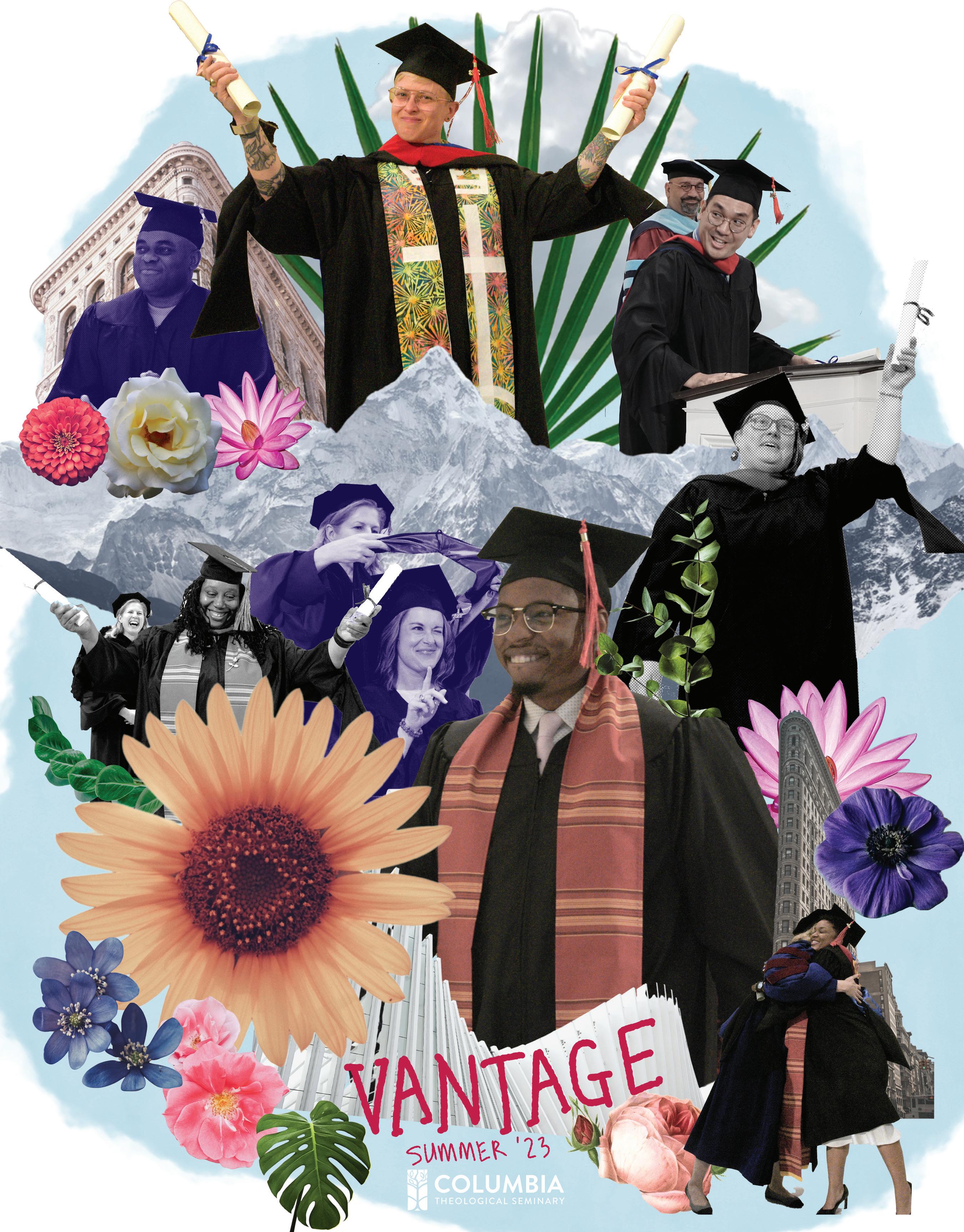
Issue Features What is Church? How is Worship Evolving and What is the Role of Seminaries 5 Sustainability at Columbia Theological Seminary . . . . . . . . . . . . . . . . . . .9 A Pedagogical Manifesto in the Face of Climate Disruption 12 DeNoire Henderson Awarded 2023 Creation Care Prize 13 New Directions in Spirituality . . . . . . . . . . . . . . . . . . . . . . . . . . . . . . . . . . . 14 Come See Columbia Day 2023 18 AHSA Celebrates Graduates . . . . . . . . . . . . . . . . . . . . . . . . . . . . . . . . . . 24 2023 Awards and Prizes 26 2023 Graduates . . . . . . . . . . . . . . . . . . . . . . . . . . . . . . . . . . . . . . . . . . . . . 28 New Alumni Picnic 29 Baccalaureate and Commencement . . . . . . . . . . . . . . . . . . . . . . . . . . . . 30 In Every Issue Letter from the President . . . . . . . . . . . . . . . . . . . . . . . . . . . . . . . . . . . . . . . 1 A Prayer for Columbia Seminary by Dr. Marcia Y. Riggs 2 @ the Center for Lifelong Learning 20 Seminary News . . . . . . . . . . . . . . . . . . . . . . . . . . . . . . . . . . . . . . . . . . . . . . 22 Beyond the Classroom: Faculty News and Updates . . . . . . . . . . . . . . . . 26 Alumni Updates 40 Final Word with Dr. Jake Myers 43
In This
EDITORS Jennifer Cuthbertson Add Seymour Corie Cox DESIGN AND ILLUSTRATION Corie Cox PHOTOGRAPHY Add Seymour Corie Cox Courtney Henry, ’24 CONTRIBUTORS Jennifer Cuthbertson Add Seymour Corie Cox Sara A. Hayden Chassidy Goggins ’24 Dr. Mark Douglas This issue of Vantage is available online. Visit www.CTSnet.edu September 7-8 Save-the-Date The Path to Our Third Century: Celebrating our Strategic Blueprint September 8 Convocation Columbia Presbyterian Church October 3 Faithfully Forward Day online and on campus
ABOUT THIS ISSUE
Greetings friends,

Abundance & Grace are still on my mind and in my heart at the end of my first year as President.
In this year, I have witnessed firsthand the abundance of talent, love, and dedication that exists within the hearts of students, faculty, staff, Board of Trustees, and alumni for this institution and its mission to serve God, God’s Church, and the world. My family and I have experienced the grace of this community as we were welcomed to Decatur and to Columbia.
Over the course of this year, we as a community have renewed our commitment to ensure that Columbia Theological Seminary is a place of welcome, hospitality, justice, and belonging where those who are answering God’s call can flourish in faith and hope. Through the collaboration of students, faculty, and staff at forums and on commissions and task forces, we have made a huge step forward as we move closer to the beginning of our third century.
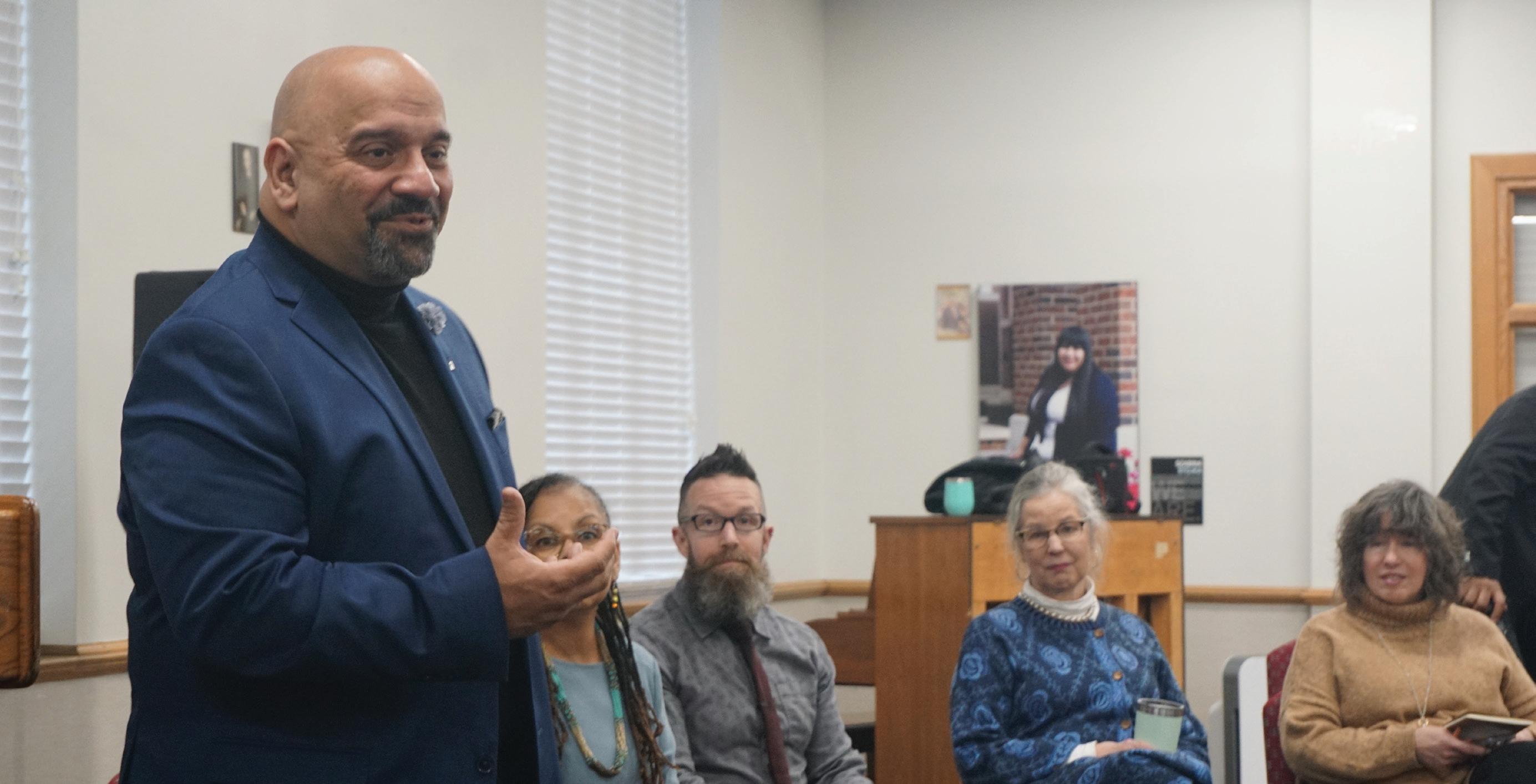
Together, we developed a Strategic Blueprint that lays out the path forward for Columbia. This Blueprint articulates our core values and how we will continue to bring to life the Seminary’s critical mission of inspiring and challenging every student to a life of leadership and purpose for the glory of God.
In May, the Board of Trustees unanimously approved this Blueprint as the document that will guide this institution over the next few years. Now, we roll up our sleeves and get to work implementing it. You can read more about the Blueprint itself on page 23 and keep up to date with its implementation at www.CTSnet.edu/presidents-page/.
This has been a year of firsts for myself and for Columbia, and as this year comes to a close, I wonder if we might be approaching this ending that is really a beginning – a beginning of a new chapter for our graduates, for our continuing students, for our incoming students, for our faculty and staff, for our institution – with a bit of both fear and joy.
Fear and joy are not such a strange combination. They are often present together when we are embarking on a new chapter of life, and friends, Columbia is indeed at the start of a new chapter marked by a new strategic plan and a renewed commitment to serving the Church and the world faithfully and ensuring that our community lives into flourishing in faith and hope and that we all embrace the joy that comes to us along this journey.
Summer 2023 1
A Prayer for Columbia Seminary Upon My Retirement
BY PROFESSOR EMERITUS DR. MARCIA Y. RIGGS






























Every day that I have answered my call to ministry as a call to teach, it has been, and is, a leap of faith. This has been especially true for me because I have been called into historically white educational institutions. I did not set out to teach in these places. Still, these places have helped me to let go and follow the Holy Spirit.
Thus, my call at Columbia Seminary has been to be a prophetic presence who de-stabilizes normative claims that are exclusionary because of all the “isms” that ground institutional life. This understanding of my call has meant that I have chosen to teach “against the grain.” My classroom has been a community of learning—a space where learning content must not be separated from nurturing relationships.
I have participated in strides forward at the seminary. I have witnessed backsliding.



















I have prayed intercessory prayers with members of the seminary community in times of sorrow as well as prayers of protest when members of the community have felt unjustly treated.
The seminary has yet to become what it shall be.
I offer this prayer as I retire:
Creator God,

We give thanks to You for all the people who have made and make possible the seminary: the unnamed and enslaved individuals whose labor and lives are the invisible endowment the founders, individuals, families, and churches who have endowed this institution with tangible and intangible resources the professors the students the staff the administrators
Redeemer God,

We pray for forgiveness for institutional cowardice and complicity with injustice historically and in the present:


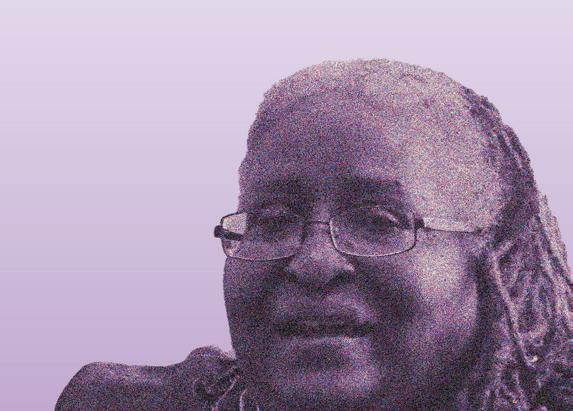

slavery racism sexism heterosexism ableism



ethnocentrism


cisgenderism/transphobia


colonialism
religious imperialism
Sustainer God,















We pray that your Holy Spirit guides this and future generations of the seminary: to create the community of belonging for which there is great longing to advocate for the poor and suffering at home and around the globe to follow the moral arc of the universe that bends toward justice
In the name of Jesus Christ, receive this prayer, AMEN.
Summer 2023

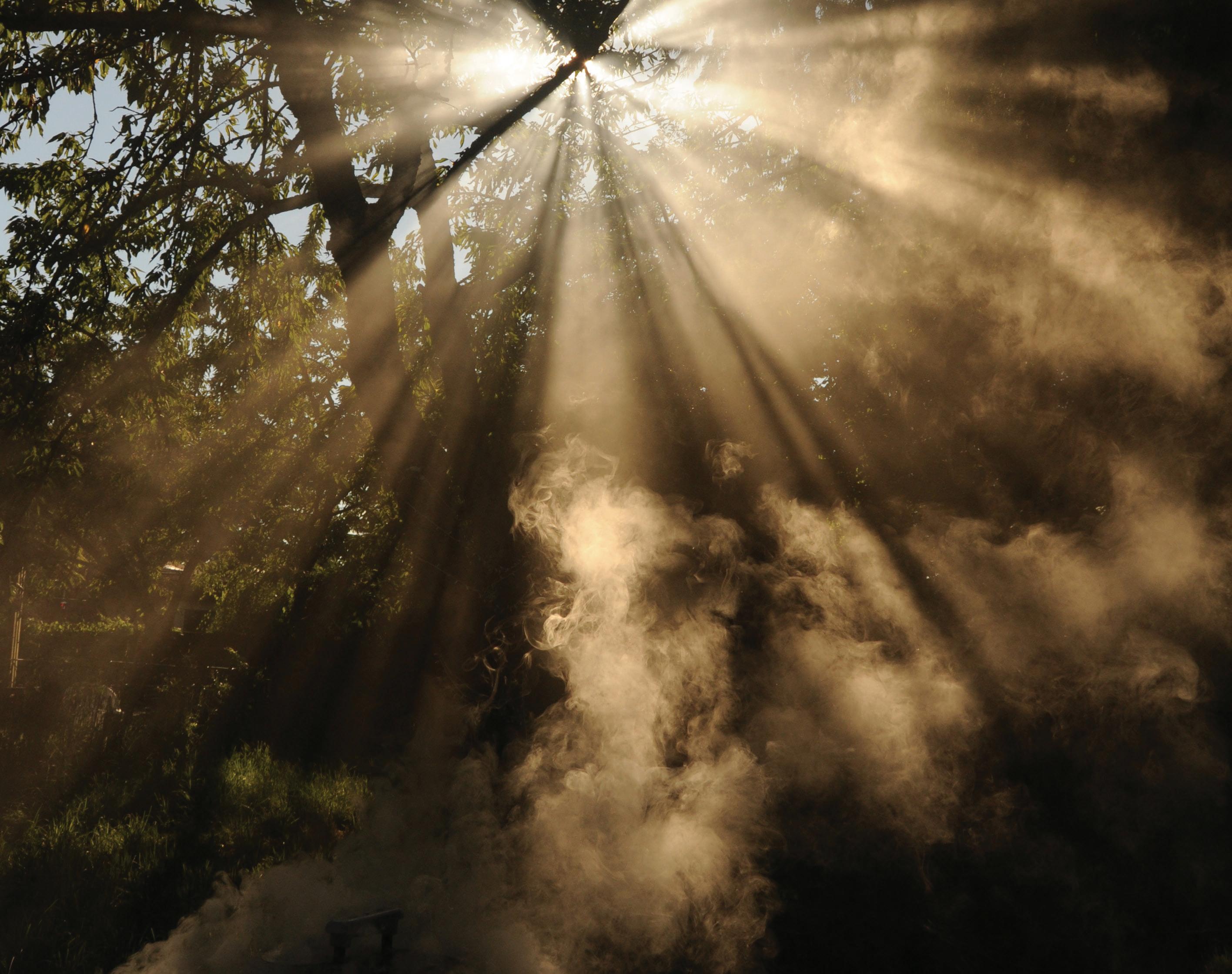


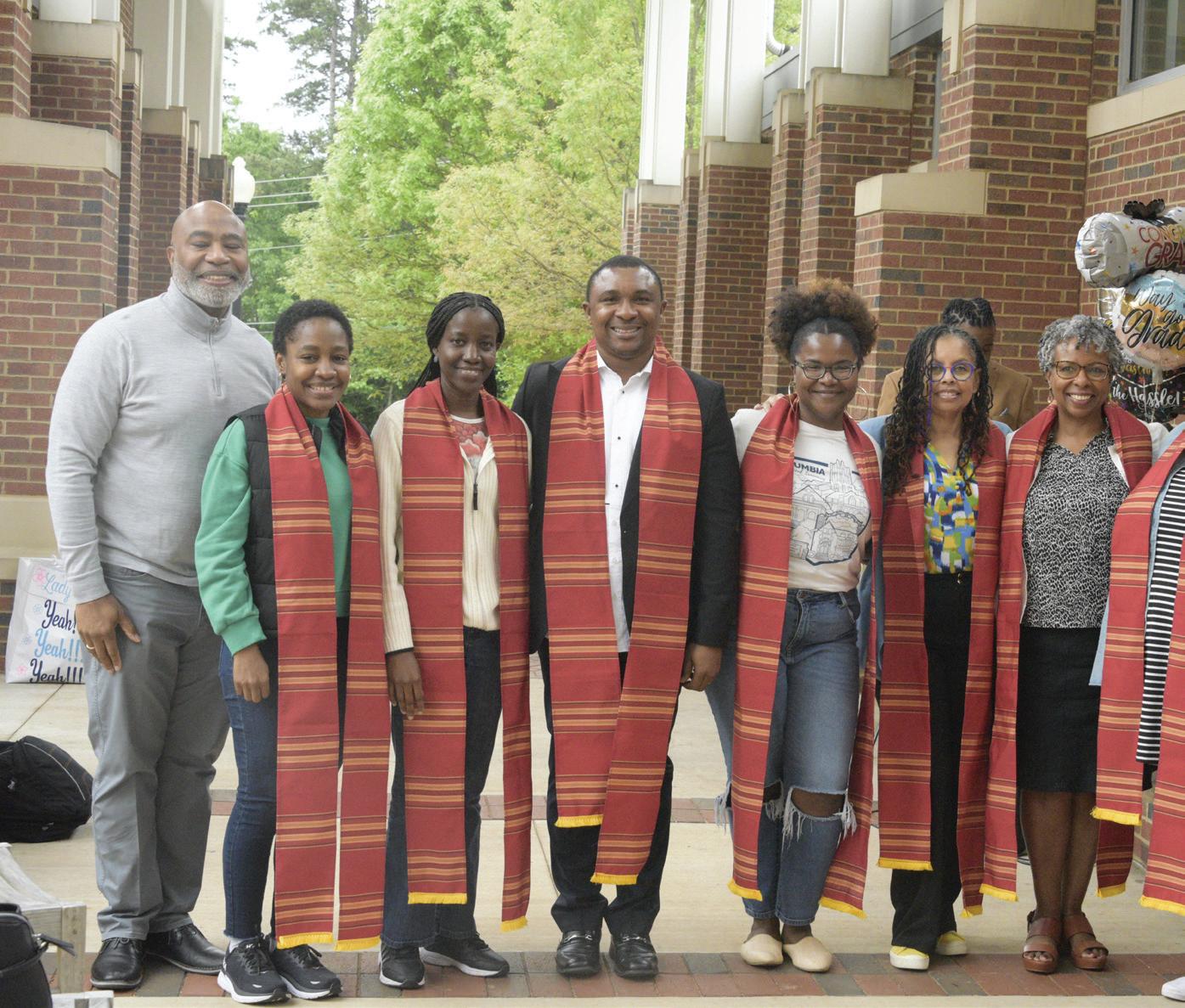




What is Church? How is Worship Evolving, and What is the Role of Seminaries?
This year, the Columbia Theological Seminary community has worked together to imagine the future of this institution. Through a series of Forums, students, faculty, and staff collaborated and worked thoughtfully to discern how Columbia moves forward into its third century. Part of that conversation revolved around the changing landscape of worship and church and what do we as a Seminary need to do to meet that changing landscape.
We thought it would be interesting to explore trends and innovations in worship so we reached out to Columbia Alum and staff member at the 1001 New Worshiping Communities at the Presbyterian Mission Agency, Sara Hayden, to gain some insight.
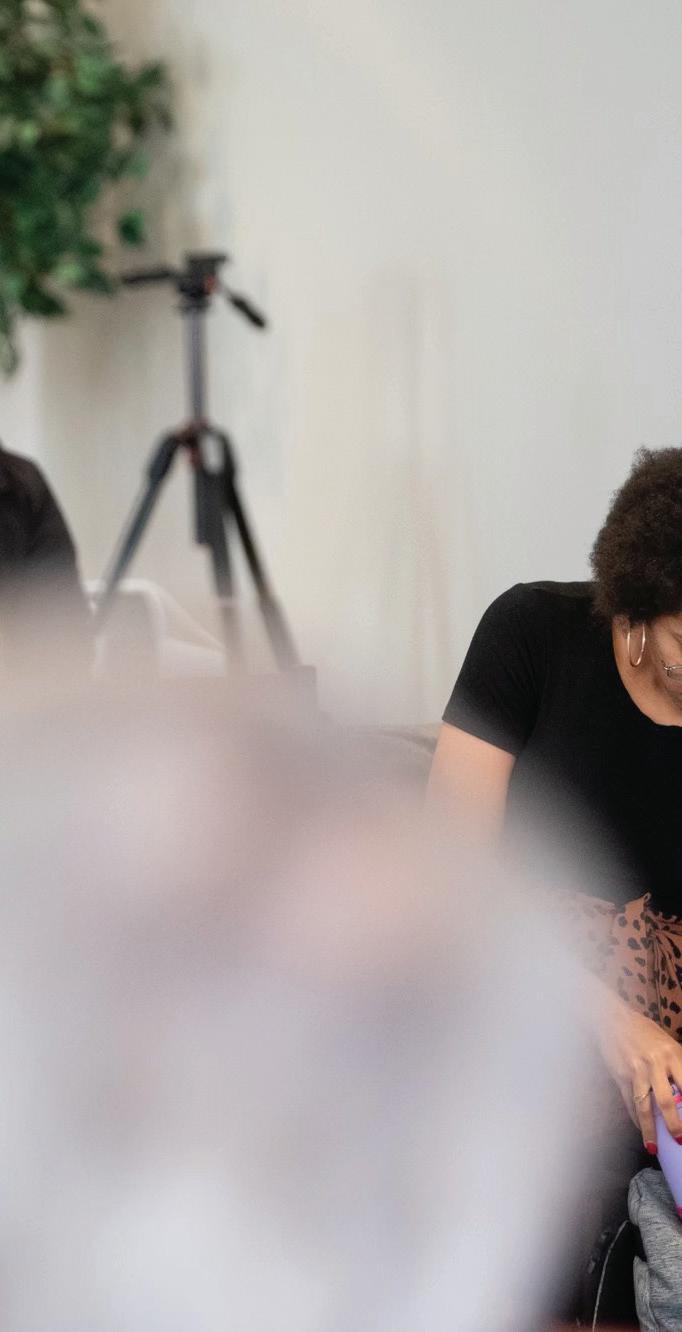
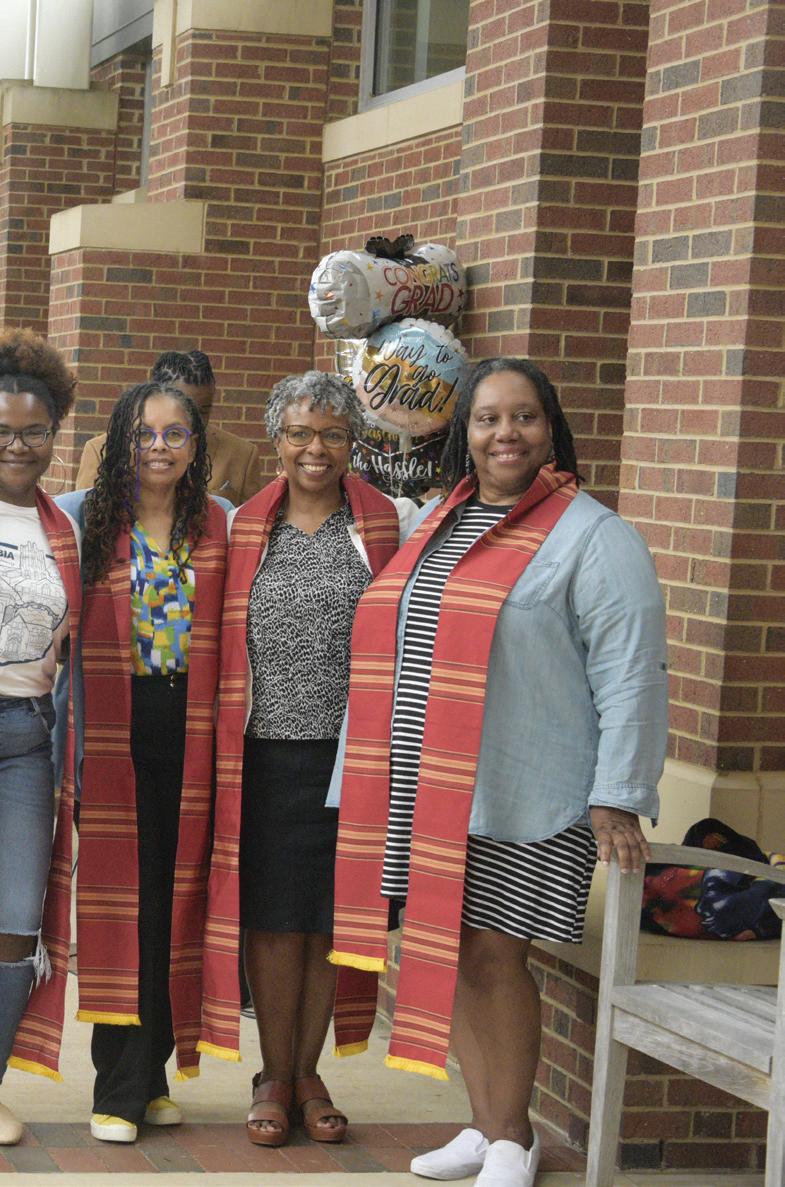 BY REV. SARA A. HAYDEN ’08; DIRECTOR OF APPRENTICESHIPS, RESIDENCIES AND LEADERSHIP COHORTS FOR THE 1001 NEW WORSHIPING COMMUNITIES MOVEMENT AND THE HOST OF 1001’S PODCAST, NEW WAY
BY REV. SARA A. HAYDEN ’08; DIRECTOR OF APPRENTICESHIPS, RESIDENCIES AND LEADERSHIP COHORTS FOR THE 1001 NEW WORSHIPING COMMUNITIES MOVEMENT AND THE HOST OF 1001’S PODCAST, NEW WAY
Looking backwards, many of the creative experiences I had as a child came from growing up in a new church that my parents and my sister and I helped to start in Kansas City. My pastor, Rev. Jay McKell, was outside of the box when worship was convened; it was always dialogical, creative, and dynamic. I know he was a fan of Annie Dillard, who said that if we really believed what we said about God, we’d come to worship wearing crash helmets.
What
is church?
I think that the idea of “What is church?” has been in constant shift since the beginning of church itself, which is something very hopeful, honest, and human to me. Part of the work of the family of God is the practice of figuring out how to be a faithful and courageous people credible witnesses to the gospel, for the time and context that we have been given.
What has changed, I believe, is the pace of those experiments. A global pandemic moved us at least ten years into the future technologically in a span of just a few years. It was and is a highly reflective time. Things like Zoom, for example, shift how humans interact and collaborate on any number of projects. This is true in almost every sector and invites us into a special opportunity to gather a diverse and equitable network of people for good.
One of the best things churches can do is to facilitate conversations, listening, and connections that make space for all people whether they are connected to the church, or religion, or not to form groups and networks that allow us to determine what is a faithful way of life moving forward. We don’t need to be the hero of anyone’s story. People of goodwill possess a general commitment to improve the state of the world, and don’t want to take for granted the time they do have. The gospel can be the center of someone’s life
Summer 2023 5
without the church being the center of their lives. We are, at our best, God’s people both gathered to go and to be witnesses.
1001 New Worshiping Communities
The movement of 1001 was first introduced as an initiative of General Assembly of the PCUSA, back in 2012. It was an idea that came from the larger church, funded by faithful, forward-thinking leaders of past generations. One of the most interesting sources of our funding now comes from financial support previously used for circuit-riding evangelists in the 19th-century. These types of innovative communities are the modern model of that innovation.
No one knew how “1001” as we call it might take root, or if it was an idea or project that would only last a few years. At first, just as we did in Atlanta with the New Church Development Commission, we were simply inviting people to reimagine and welcome new expressions of church while simultaneously raising up support and partnerships for the new churches in our midst. Immigrant-led churches in the United States and globally were the first and most adaptive to respond, and still are.
The number 1001 is a marketing gimmick, of course. But there is so much wisdom in an achievable, but somewhat audacious number. We have over 650 current new worshiping communities. If we had called the movement the 101 or even 150 New Worshiping Communities movement, I suspect that we would have ended up with maybe 100 or fewer communities that looked very similar to the ones we currently have. Instead, by affirming 1001 and putting good financial and leadership support around it, the church has flung wide open the doors on experimentation. We have taken risks to envision church in 1001 different ways, and the movement continues to grow.
Those of us first on staff with the movement began developing tools and experiences that we could offer nationally to leaders locally such as a comprehensive leadership assessment for entrepreneurs in ministry which has now been offered to over 150 leaders in the church and was the first of its kind to seriously welcome the gifts of church planters who are immigrant, queer, or women.
In our apprenticeships, I recruit cohorts of around 20 diverse leaders each year from around the nation who are in the process of starting a new ministry. We facilitate executive coaching, a stipend to “fund the dream,” and training in non-profit leadership development that I lead each week. The groups are highly diverse.
I spend the first few months every year in my program wondering how passionate leaders who represent such highly diverse experiences, identities, and theological perspectives can begin to value and learn from one another let alone trust each other enough to meaningfully collaborate. And every year, I have been blown away by the level of trust that develops among people who agree to show up, share, and value mutuality. No one is allowed to “fix” anyone! I am a skilled convener, teacher, and recruiter, but it is our mutual welcome and love for the Holy Spirit and her capacity to open our hearts to one another that has enabled us to come alive as a community.
Innovations in Worship
Some of the most important and fruitful innovations we are seeing have to do with taking the steps to prioritize how we gather and work, and what makes the most practical sense for our communities. Online church can be a great example of this. Churches can gather for their primary weekly encounter of worship/discipleship in a highly-adaptive and dialogical environment such as Zoom. Then, they can make the most of their in-person time together on a less-frequent basis, such as monthly or quarterly, for longer periods of time that encourage and enables shared moments of rest, restoration, and connection that are more difficult for some communities to achieve in the hustle-bustle of many Sunday mornings, or among highly-diverse yet geographically distant communities. This kind of rhythm allows space and bandwidth for other things, such as 1:1 meetings and that processing of spiritual trauma (which is a common experience within and outside of the church).
One of the communities represented in our network is called Harbor Online, which was founded in 2021 by a graduate of Pittsburgh Seminary, Jon Mathieu. You can join this church from anywhere! The church moved to an online platform meeting on Zoom, Thursday nights. They gather in little break-out rooms on Zoom for ten minutes to explore a fun or meaningful question. Someone offers a testimony about their spiritual journey. They offer prayer together. As they describe it to website visitors: we share stories, listen attentively, show compassion, discuss the Bible, and create space for prayer or meditation. And people can sign up for 1:1 meetings with one of the three fabulous pastors if they would like to process how their spiritual background informs their experience of religion and life, a process commonly called deconstruction. The programs and activities of this church are laser-focused on the results they want to achieve for God’s kingdom, and that just makes good common sense.
6 VANTAGE
Harbor is gathering for its first larger retreat next month in Stoney Point, N.Y., and members of the community from at least three different countries are coming together to be all in person for the very first time. I cannot wait to see how this shapes things for people going forward.
The Role of Seminaries in the Changing Landscape
Seminaries play a critical role in advocacy for more relational ways of welcoming one another into the church as leaders, and the networks we represent as alumni and partners can have a lot of influence over how the process of something such as the transfer of membership as clergy from one denomination or country to another, takes shape. Anyone who has gone through the ordination or transferring process knows that the way is long and complicated.
Although theological institutions are not directly tasked with determining the ways in which, say, a highly gifted and called leader from another tradition is received into the fold of a PCUSA presbytery, to lead a New Worshiping Community, they have the language, status, and relationships to influence how our examinations can enfold to be more of a process of mutuality and genuine relational discernment. I have been a member of the Presbyterian Church (U.S.A.) my whole life, and I also have no doubt that my faith has been shaped tremendously for the better by relationships with people who faithfully represent the wide arc of Christian tradition.
Consequently, I would love to see the conversations start between leaders, mutually curious and welcoming toward God-in-one another, saying, “what is it that you have learned about God, and what gifts does your experience in your home tradition you most highly love and value? Let us learn together.”
Like any challenging and important work, church-planting includes the experience of self-doubt and the constant need to adapt and prioritize. Entrepreneurial leaders will need to rely on the wider partnership of well-funded and endowed institutions to have the support for things like salary and access to the same kinds of benefits that installed leaders of churches.
Our leaders are stepping into a multifaceted kind of work one NWC pastor describes in this way: “I was almost swallowed by the load and diversity of work in the first three years. Learning to manage the work was essential... Constant fundraising over and above an entrepreneurial ministry role is pretty exhausting!”
Countless leaders and partners associated with Columbia Seminary have paved the way for the movement of 1001 and the church into new expressions in many ways. Many alums are new worshiping community leaders themselves; many friends of seminaries pastor churches or serve as lay leaders of congregations who are partners to new worshiping communities and who have been an absolutely lifeline of friendship and support to NWC leaders, and above all, a mutual colleague. Oh, the names!
My hope is that we can identify and enact ways in our networks to make the process more equitable and purposeful for this time and place, to welcome gifted and capable leaders willing to do the work to convene communities that the world needs in this moment.
1001 has conducted the most comprehensive longitudinal survey of church-planting to date, and has learned
Summer 2023 7
%
45% are under age 50 71% are ordained ministers 56% also have a job or run a business in addition to leading a New Worshiping Community 38% were born outside of the United States 45% are led by women 31% are in their first call
41
of New Worshiping Community leaders identify as people of color

Sustainability at Columbia Theological Seminary
Attending to God’s creation with wonder and thanksgiving is part of our DNA at Columbia Seminary. We care for, celebrate, share the gifts and resources of God’s earth and seek out ways to champion environmental justice. We make a point to:
• Shape our campus buildings and grounds thoughtfully, considering the best interests of the planet
• Offer courses and continuing education events focused on environmental concerns
• Give students, faculty, and staff opportunities to promote creation-care in their own lives and their communities.
As part of this we hosted the Just Creation Conference and brought theologians, scientists and activists to campus in March to share wisdom, insights, practical steps for working toward environmental justice, and make connections between people and groups that might not usually work together.
REFLECTION BY DR. MARK DOUGLAS, PROFESSOR OF CHRISTIAN ETHICS; DIRECTOR OF THM PROGRAM; AND EDITOR, @ THIS POINT
Just Creation: Shalom for Our Common Home brings theologians, scientists, and activists to Columbia Seminary
Building on the success of earlier Columbia Conferences, 2023’s “Just Creation” conference focused on the church and its engagement with environmental justice during a time of climate change
Silo: A place for storing grain. In Genesis 41, Pharoah calls Joseph to interpret his dreams of healthy and starving cows and Joseph says that Egypt will go through seven plenteous years followed by seven years of famine. In response to Joseph’s interpretation, Pharoah stores up grain during the plenteous years in order to prepare for the hard years that will follow. The Josephs are in our midst, signaling not only increasingly difficult environmental times ahead but noting that those difficulties are not equally distributed among peoples: those already living precarious lives are being made more vulnerable. The concerns of environmental justice involve naming those precarities and addressing those vulnerabilities in order to shape environmental, social, and political systems that are better equipped not only to handle these increasingly difficult times ahead but to shape better systems of reparative and distributive justice. Opening keynoter Heather McTeer Toney (pictured, next page), the Vice President for Community Engagement of
the Environmental Defense Fund, and closing keynoter and indigenous theologian George “Tink” Tinker (pictured left) reminded us all of the demands, possibilities, and surprising graces of pursuing justice and peace during an environmental age.
Silo: A hardened bunker for housing a guided missile. In Luke 12, Jesus tells the parable of a rich man who builds bigger barns in which to store all his grains and goods, not understanding the costs of storing up treasures on earth without regard to concern for others or love for God. In a world of environmental inequities—a world in which such inequities can both display and trigger violence—building bigger barns is tantamount to building missile silos. Thus, to speak of environmental justice is to speak about more than creation-care, stewardship, and sustainability. It is to speak of national security, the movements of displaced persons, global threats to democracy, and even the politics of school lunches. It is to speak, in short, anywhere the church engages its Matthew 25 missions. So, this spring’s Columbia Conference brought over 25 different partnering and sponsoring organizations together to reveal such breadth: those concerned with green investing and those concerned with animal welfare; those concerned with children’s education and those concerned with peacemaking programs; those concerned with political advocacy and those concerned with sustainable farming. They came together not only because they could see how their own work intersects with the concerns of environmental justice—as many of them showed in a wide variety of workshops they presented—but because building networks is vital work for life in an environmental age.
Silo: An isolated grouping of persons that hinders communication and cooperation. In 1 Corinthians 10, Paul
Summer 2023 9
writes, “The bread we break, is it not a sharing in the body of Christ? Because there is one body, we who are many are one body, for we all partake of the one bread.” Paul knew what we sometimes struggle to learn: that silos may be great places for keeping grain, but they are terrible places to live in. Environmental injustice thrives where people and ideas are isolated from each other and the possibilities for environmental justice grow where we recognize that we are part of a common body and share a common destiny. This spring’s Columbia Conference brought together theologians and scientists, clergy and laity, policymakers and activists to talk with each other and, in the process, model ways to connect ideas and practices











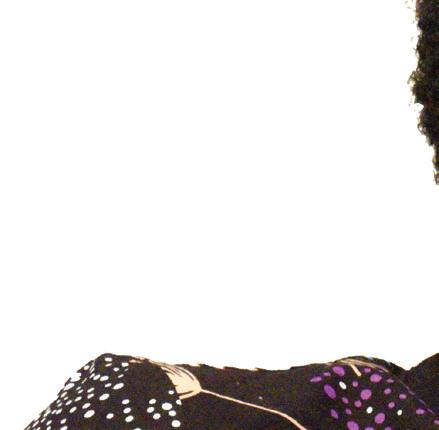
from a wide range of disciplines. Organized around three plenary sessions—one each on “earth,” “air,” and “water”— the conference gave participants the chance to hear from nationally- and internationally-known thought-leaders from a wide variety of disciplines about how their work contributed towards the pursuit of environmental justice.



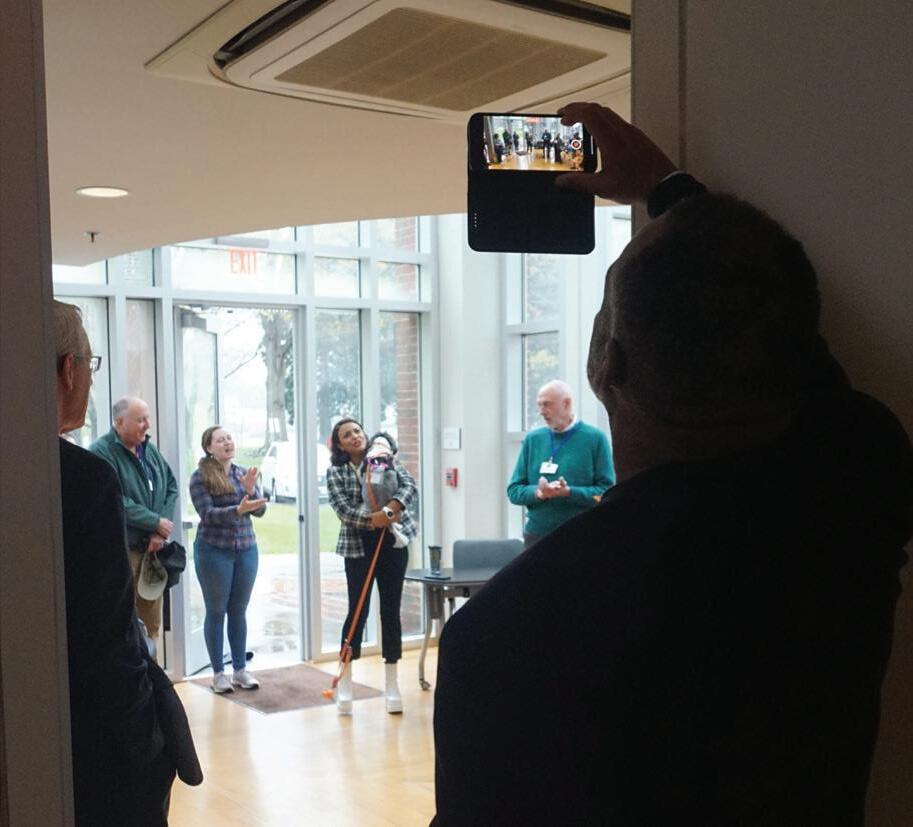
Such wisdom is worth not only storing but sharing; interested persons can watch the opening and closing keynote addresses, the three plenary sessions, and the opening worship service by going to https://pheedloop.com/shalom/ site/register/ and registering for the online version of the conference.
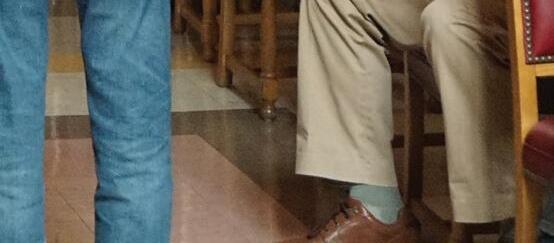






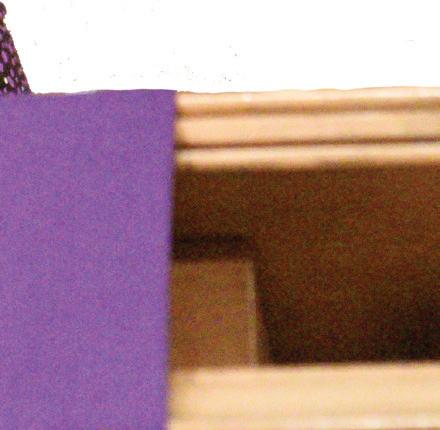






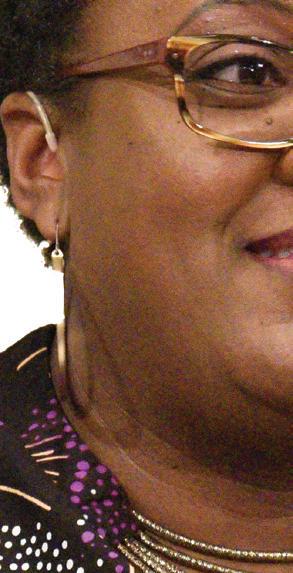


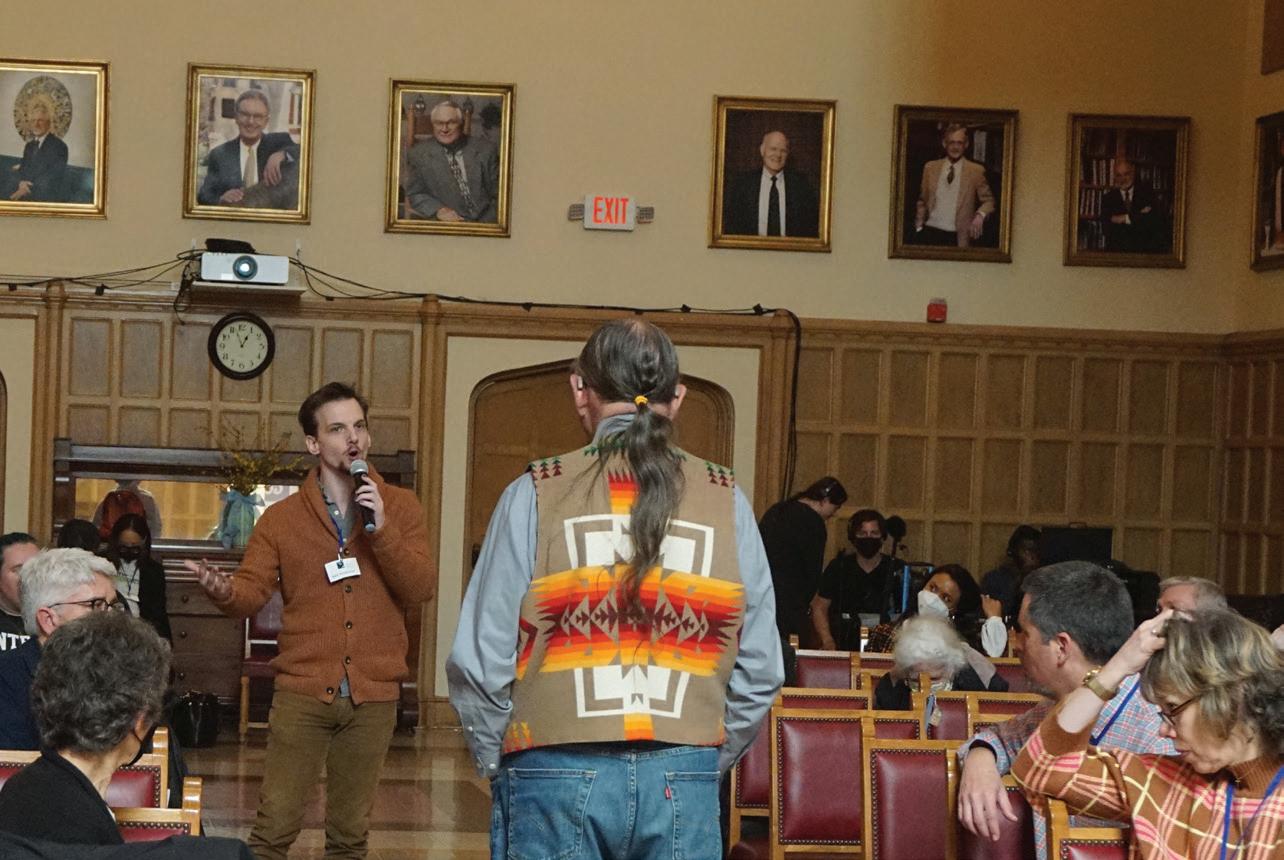
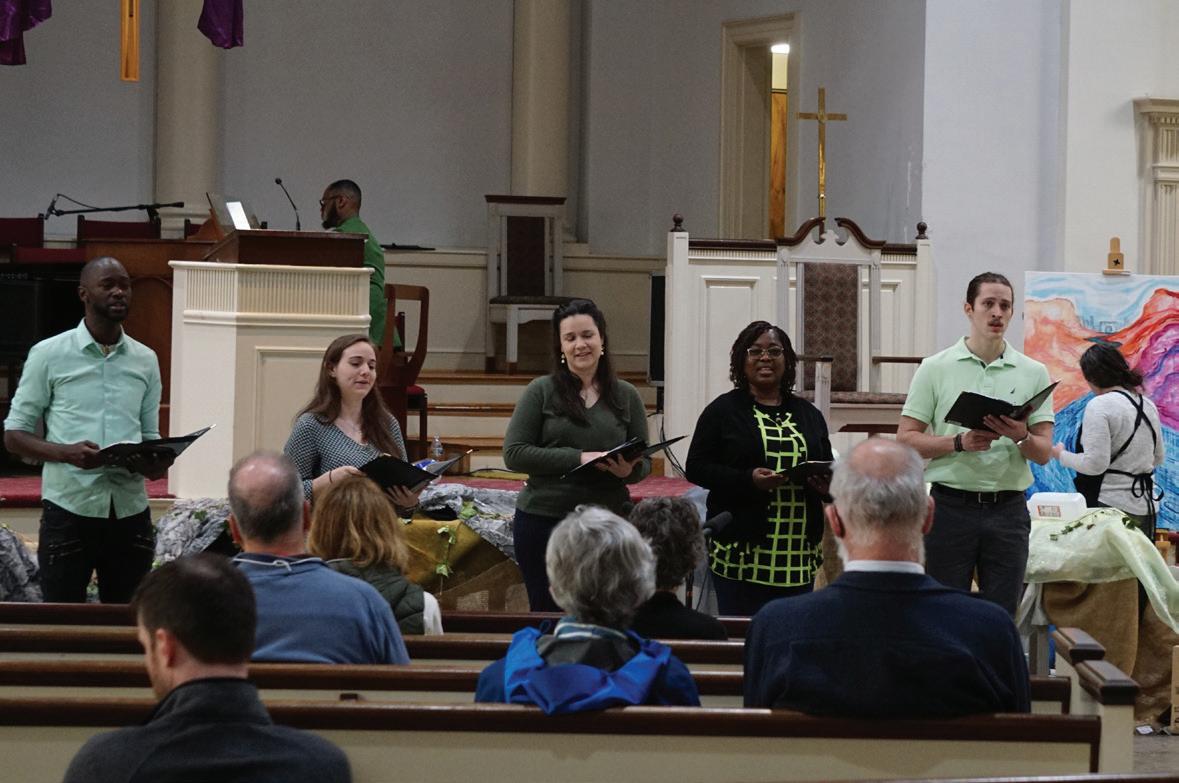

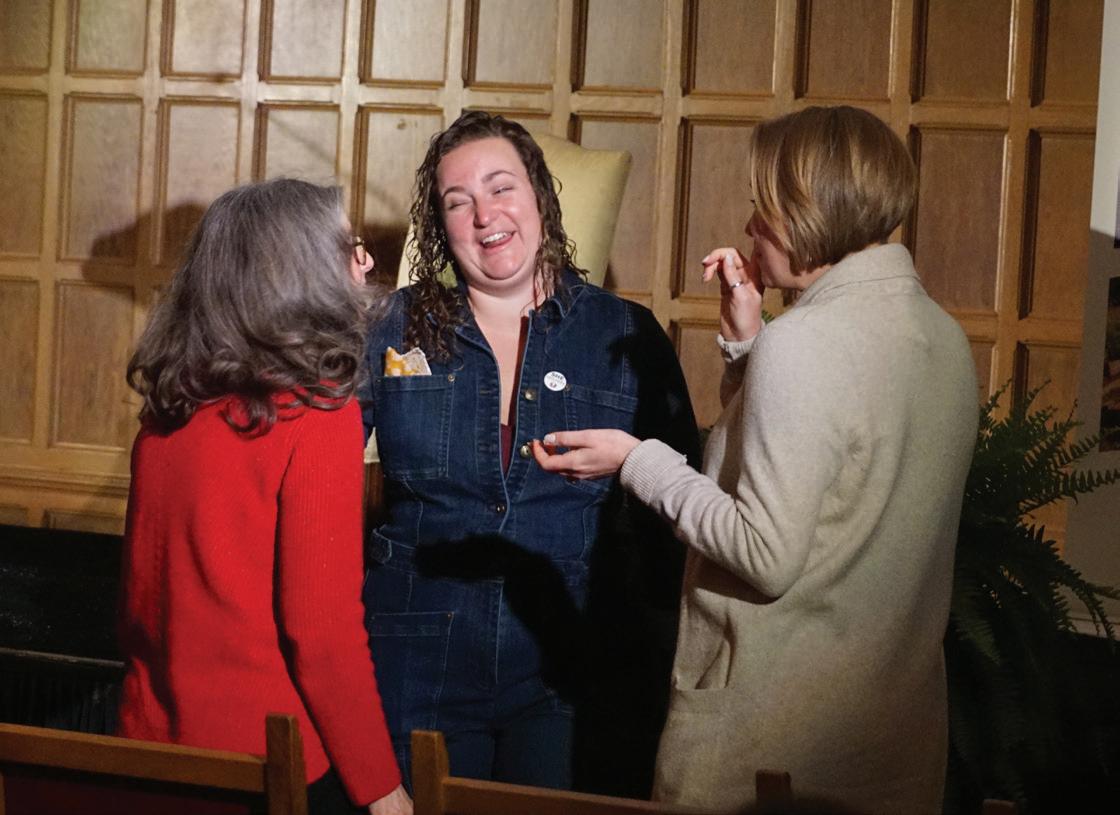

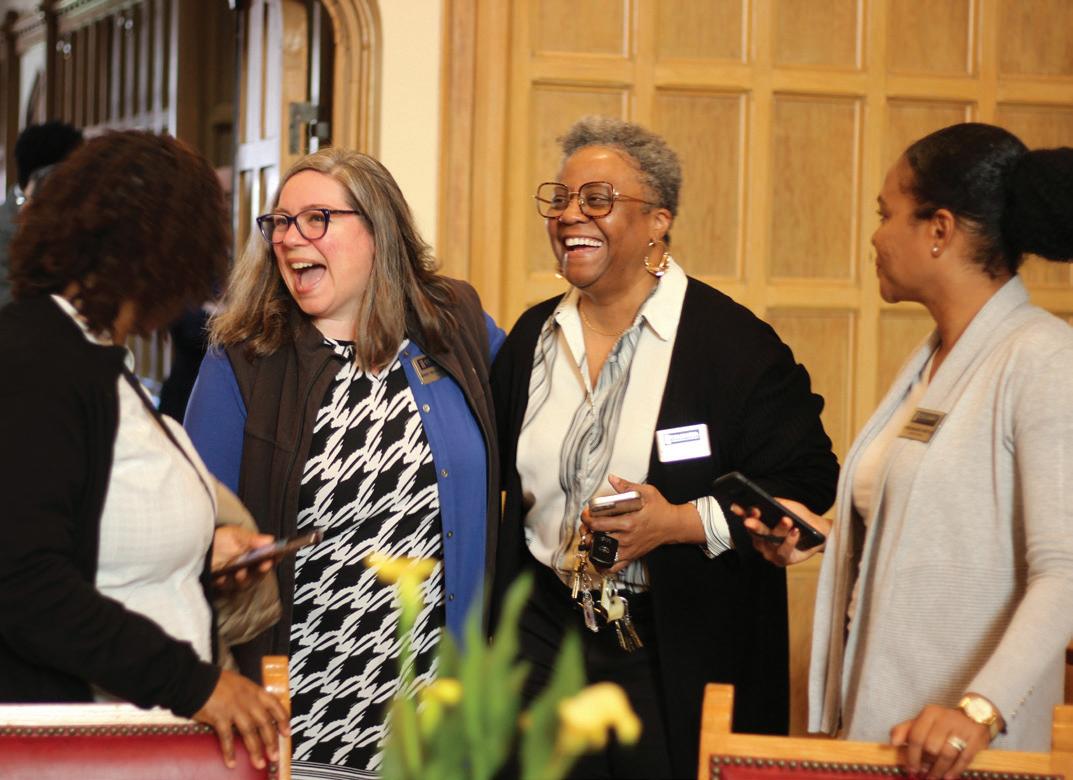
Summer 2023 11
A Pedagogical Manifesto in the Face of Climate Disruption
Columbia’s commitment to sustainability extends into our classrooms. We help ensure future generations of pastoral leaders will continue to care for God’s creation. Therefore, we teach many courses that have a focus on caring for and conserving the earth, and our faculty are committed to preaching, teaching, and leading in the fight for environmental justice. In 2019, they adopted a Faculty Commitment to Intersectional Teaching and Learning (FCITL), and in May they unanimously adopted a new manifesto. Dr. William P. Brown, William Marcellus McPheeters Professor of Old Testament was the lead author and worked with Dr. Mindy McGarrah Sharp and Dr. Mark Douglas to craft this manifesto.
A PEDAGOGICAL MANIFESTO IN THE FACE OF CLIMATE DISRUPTION
Context
The latest climate report from the Intergovernmental Panel on Climate Change (IPCC) is the most dire yet produced by expert scientists (3/19/2023).
1. Within the next seven years, humanity will largely determine its own prospects for flourishing, or lack thereof, and that of countless other species, in “our common home.” All human communities across the world are at a crossroads, some more vulnerable to climate change and others more responsible for it, but all detrimentally affected. Consequently, radical changes in current energy policies, capitalist economies, and collective and individual lifestyles,
as well as renewed commitments to dismantling environmental racism and practicing reparative justice, are all required to mitigate a dramatically worsening ecological catastrophe never experienced in human history.
Commitment

Given such urgency, theological educators must address the mounting crisis of climate disruption caused by global warming with full intersectional awareness (FCITL). We, the faculty at Columbia Theological Seminary, acknowledge that none of our disciplines will go untouched by the physical and conceptual changes wrought by anthropogenic climate disruption. We acknowledge that this “long emergency” has deep roots in white supremacy, (neo) colonialism, and patriarchy, among other intersecting, layered forms of oppression. In such a time as this, ignoring how climate disruption is undermining the flourishing of life is tantamount to theological and pedagogical malpractice. Because “the fight for justice cannot be segregated but must be integrated with the fight for life in all its forms,”
2. We join together in the just cause of sustaining the flourishing of life on a rapidly changing planet.
Pledge
In so doing, we (re)commit ourselves to do the following within and beyond our classrooms:
To educate ourselves regarding the best of science on climate change and on other “man-made” crises, from deforestation to ocean acidification;
To teach across and in collaboration across our respective disciplines with an acute and abiding awareness of the mounting anthropogenic damage done to God’s creation;
To embrace the disciplines of grief rather than despair, and of hope rather than optimism, over the incalculable loss of life and livelihood among all species in the face of climate disruption and habitat destruction;
To respond to the voices of human beings and communities most endangered by pollution and rising sea waters caused by fossil-fuel based industries and land exploitation;
To teach and lead in action and activism, advocating for environmentally-focused policies, challenging exploitative ones, and dismantling cultural norms that have for centuries been grounded in white supremacy, (neo)colonialism, and patriarchy.
In the face of impending ecological collapse, we renew our commitment and seek to hold each other accountable to learn how to teach integratively with urgency, creativity, and hope for the ultimate repair of creation (Revelation 21:5).
12 VANTAGE
DeNoire Henderson Awarded 2023 Creation Care Prize










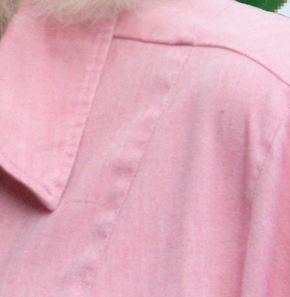
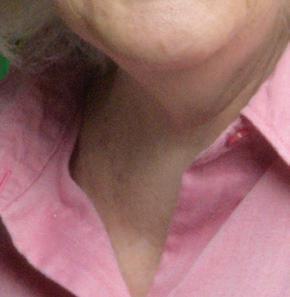



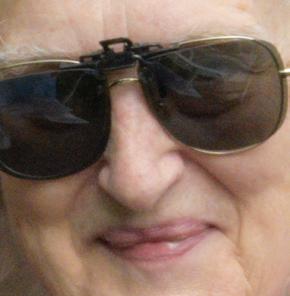
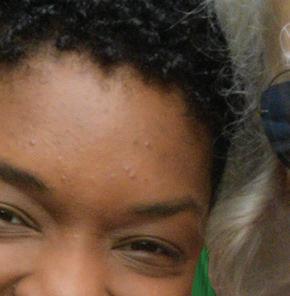
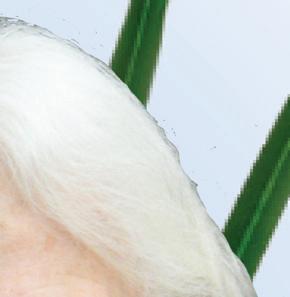
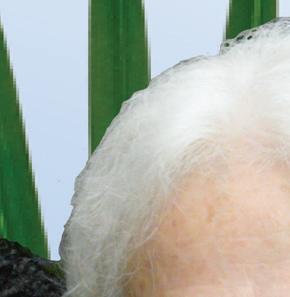
Each year Columbia awards the Dabney and Tom Dixon Creation Care Sermon Prize to the student with the best sermon addressing environmental concerns. This year’s prize went to DeNoire Henderson MDiv/MAPT ’23, pictured with Dr. Dabney Dixon. DeNoire gave her sermon at Earth Day Chapel on April 28th in Columbia’s community garden.
For more information on Columbia Seminary’s Sustainability commitments and
















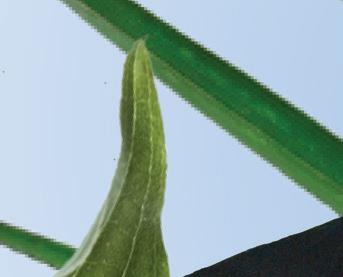










































New Directions in Spirituality
A Conversation with Sharon Junn, Center for Lifelong Learning’s Associate Director of Spirituality Programs about some of their new offerings
BY CHASSIDY GOGGINS MAPT ’24, MEDIA AND MARKETING COORDINATOR FOR THE CENTER FOR LIFELONG LEARNING
At Columbia Theological Seminary, our spirituality programs are grounded in Christian spirituality, scripture, theology, a history of the tradition, reading in the spiritual classics, prayer and meditation, and skills for assisting others on a spiritual journey.
For over 25 years, the Center for Lifelong Learning’s (CLL) Spirituality Programs have offered various courses for clergy and persons of faith. We offer two certificate programs: The Certificate in Spiritual Formation (CSF) and the Certificate in Spiritual Direction (CSD). Our spiritual formation courses are designed to help individuals deepen their relationship with God, and those who pursue a CSF gain skills to respond to the needs of the spiritually hungry in various contexts. The Certificate in Spiritual Direction (CSD) program prepares individuals for the ministry of spiritual companioning, an ancient practice of contemplative listening and discernment of the Holy Spirit, done among a trained spiritual director and individuals or groups (called directees).
The CLL’s new Associate Director of Spirituality Programs, Sharon Junn, is keenly discerning new directions and enhancements to the seminary’s beloved spirituality courses. I recently sat down with her to discuss the program’s latest offerings and ways forward.
The Spiritual Formation courses and Certificate are decades old. What enhancements have you made to the program since you started last year?
I’m excited to share that the Certificate in Spiritual Formation program has significantly enhanced its course of study. The program now offers two new concentrations, a Concentration in Spirituality in the Second Half of Life and a Concentration in Contemplative Living.
The Spirituality in the Second Half of Life concentration was introduced in response to the growing need for a compassionate, empathetic approach toward spiritual well-being in older adults. The program offers flexibility in selecting courses from the CSF curriculum, including the new Contemplative Living courses and the Older Adult Ministry courses, to create a learning experience tailored to individual interests and needs.
The Contemplative Living concentration is a year-long experiential program consisting of two courses. It aims to help participants deepen their spiritual experience by nurturing their contemplative abilities and fostering a strong community among like-minded individuals.
The online program integrates contemplative spiritual practices into daily life, helping seekers connect with God’s abiding presence.
Wonderful news about the spiritual formation enhancements. The CLL also offers training in spiritual direction. How do you define spiritual direction?
Spiritual direction facilitates a sacred space for others to connect with God through deep listening. I use the word “facilitating” because the Spirit is the real spiritual director. Spiritual direction is about God’s agenda. My role as a spiritual director is to listen and discern the movement of the Spirit as I listen to the directee’s heart. The art of spiritual direction is an act of prayer, like conversations between the director, the person seeking guidance and the Holy Spirit. It involves deep, attentive listening and response. The purpose of spiritual direction is to help others grow in their awareness of God in all aspects of life and be able to respond to God’s invitation. The search for God is not one-sided. It is a response to God’s longing for us. The mystery of God’s presence is always active and present in the human experience. The role of a spiritual director can be compared to an usher. When individuals come
14 VANTAGE
to church seeking God, an usher is there to welcome and help them feel comfortable by finding their place to experience God. A spiritual director walks alongside the directee, remaining open to God’s vast and intimate presence in the directee’s life.
What makes the CLL’s spiritual direction program different from other spiritual direction programs?
I am glad you asked this question. We’ve undergone rigorous discernment about consenting to the work of Spirit, which opens immense possibilities for transformation. With its deep roots in Christian theology, we have strengthened the program’s emphasis on contemplative orientation and practices which we believe will provide a solid foundation for deepening understanding and skills in spiritual direction.
The practicum aspect of our program is a “Spiritual Direction Lab” where associates practice through supervised group and individual sessions guided by seasoned leaders. Our spiritual direction leaders participate in ongoing training to maintain a fresh flow for giving and receiving spiritual direction. I believe this is a critical aspect of the program, which enhances its quality. We’ve carefully redesigned the practicum component to incorporate group and individual supervision guided by leaders, contemplative group listening and group spiritual direction sessions.
Our program is a cohort model ecumenically broad with communal emphasis. Our leaders and associates are from different faith traditions, including Presbyterian, Episcopalian, Baptist, United Methodist, Mennonite, Roman Catholic, and United Church of Christ. We look forward to expanding the program to
include an online track to feature more diverse groups and languages.
As the Spirituality Programs leader, you’ve expressed a goal to make the spiritual direction program more “nourishing”. What do you mean by nourishing?
In my view, spirituality can be defined as the process of awakening to the truth, the truth that we are one with God, and that God is present within us. Meister Eckhart speaks to this unity when he says, “The eye through which I see is the same eye through which God sees me; my eye and God’s eye are one eye, one seeing, one knowing, one love.”
Cultivating contemplative capacities (the divine faculties within us) help make us aware of God’s mysterious presence and action within. While intellectual understanding can be helpful, what frees us to consent to God’s action is experiencing God. Such experiences deeply nourish our soul, mind, and spirit. It is very liberating! Our program emphasizes a contemplative orientation, with highly experiential and praxis-driven modules designed to support the participant’s growth and trust in the work of the Spirit, more so than the concern of “getting it right.” The program itself is a formation process to access the flow of God’s giving. Being grounded in this flow allows us to rest and let God work through us.
We’ve talked before about deep listening and discernment. Can you elaborate on what practicing “deep listening” and discernment means? How do they apply to spiritual direction?
Deep listening in spiritual direction goes beyond simply hearing the words of the directee. It is a practice of contemplative engagement. Through this practice, as a spiritual director, I listen for God’s movements along and on behalf of the directees. This act of prayer requires attentive listening, which Walter Burghardt calls “a long, loving look at the real.” As a spiritual director, my goal is not to tell directees what to see but offer space for them to explore new or different ways to engage God. Discernment is an essential component of spiritual direction as I listen and discern when, how, and if I am invited to share with the directee what I sense from the Spirit. I ask myself, ‘how do I not get in the way of God’ so that directee’s attention is on the real spiritual director, the Holy Spirit.
How does prayer relate to spiritual direction?
Prayer is a two-way conversation with God, where we both talk to, and listen for God. Spiritual direction is an act of prayer because it’s about opening ourselves to the mystery of God’s presence through intentional listening for God’s response. Prayer attunes us to God, and God’s agenda becomes apparent as the directee and director sit together in prayer. Moreover, the deeper and more sensitive a spiritual director is in their relationship with the Divine, they can better support directees as they notice, savor, and broaden their experience of God.
Is spiritual direction pastoral care? Why or why not?
Pastoral care and spiritual direction are two distinct but related fields, as they both involve caring for people and their relationship with God. Pastoral care is a broader field that encompasses a wide range of care. It
Summer 2023 15
involves deep listening, like spiritual direction, but pastoral care tends to involve more active guidance and activities, including conducting rituals, by a religious leader.
On the other hand, spiritual direction is a more focused, intentional relationship between a spiritual director and a directee in a one-to-one or group setting. The spiritual director accompanies the directee on their journey as a holy companion. While spiritual direction is not identical to pastoral care, it can be considered a critical form of pastoral care as it is a proactive and intentional way to help individuals grow in their faith and their sensitivity to God.
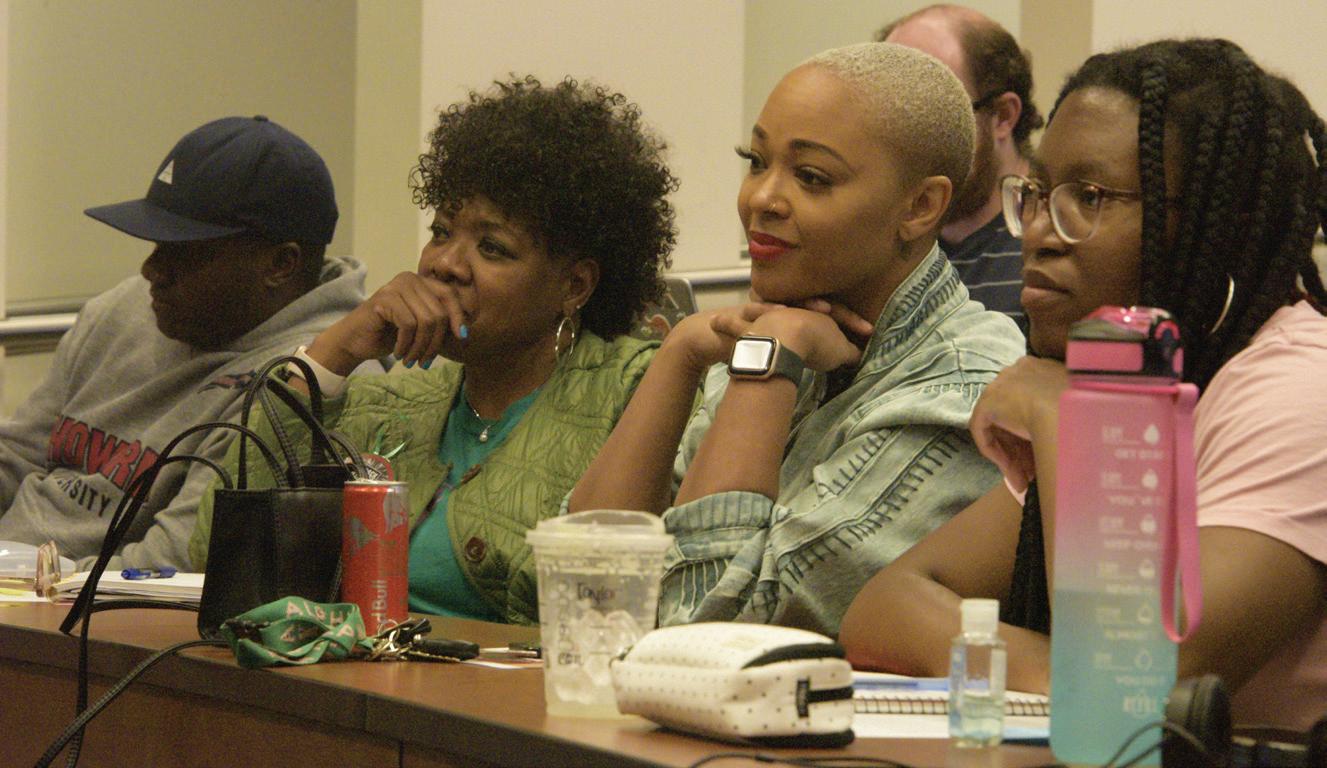
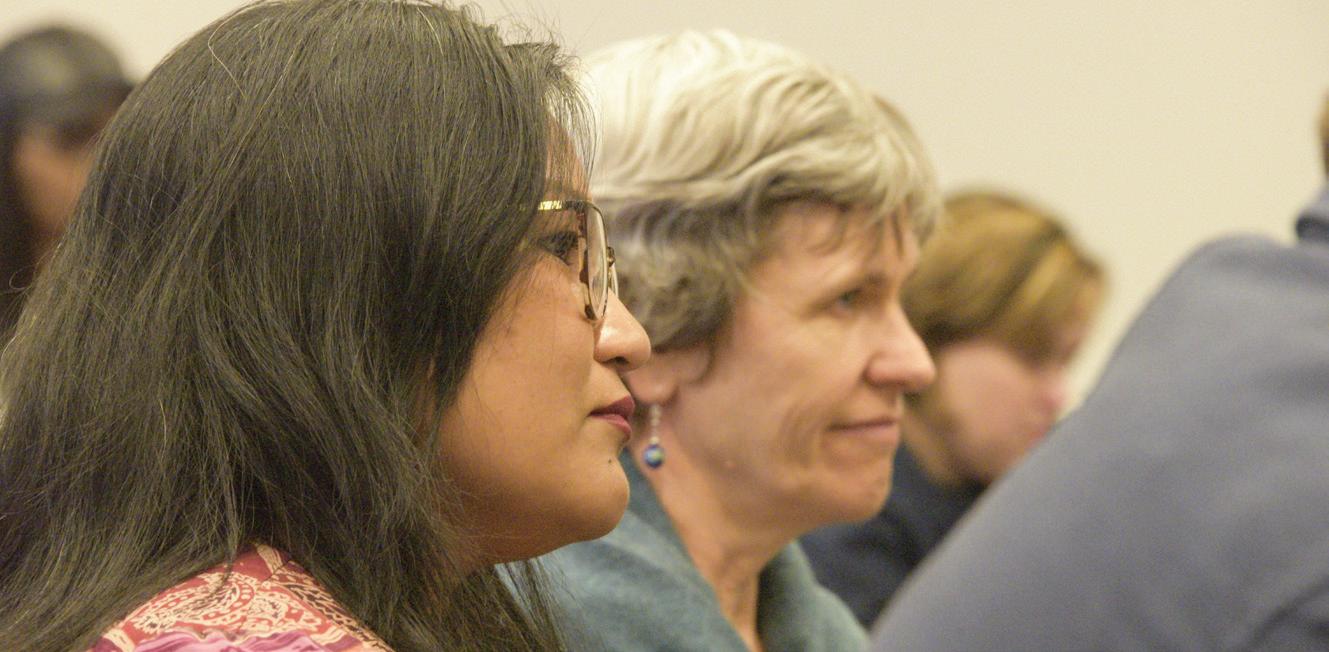
Thanks for this in-depth perspective on spiritual direction, Sharon. In closing our time together, what’s your 30-second pitch for explaining spiritual direction?
While each spiritual journey is mysteriously personal, you don’t need to go at it alone. A spiritual director can accompany you on your spiritual journey by providing support and a sacred space to encounter God in all aspects of life. Just like a mirror reflects back your own image, a spiritual director holds a mirror to help you see your true self as a beloved whom God has lovingly gazed upon. Through this process, you can realize that your deepest desire to be known and loved is an invitation from God, who is always open to you.
If you want to become a spiritual director through Columbia Theological Seminary, scan code below to learn more about the program.
Dr. Mitzi J. Smith, Columbia’s Davison Philips Professor of New Testament, gave the annual Anna Julia Cooper Lecture for the Candler School of Theology’s Black Church Studies Program on March 23. The series is named for Cooper, a former slave who became one of the most influential Black scholars of the 19th and 20th century. Cooper was a teacher and principal in Washington, D.C., for more than 30 years and remained a prominent educator, activist, and author until her death at 105. Smith’s lecture was titled, “We Will Neither Hide Nor Shrink: Anna Julia Cooper’s Legacy and the Audacity of Womanist Interpretation.
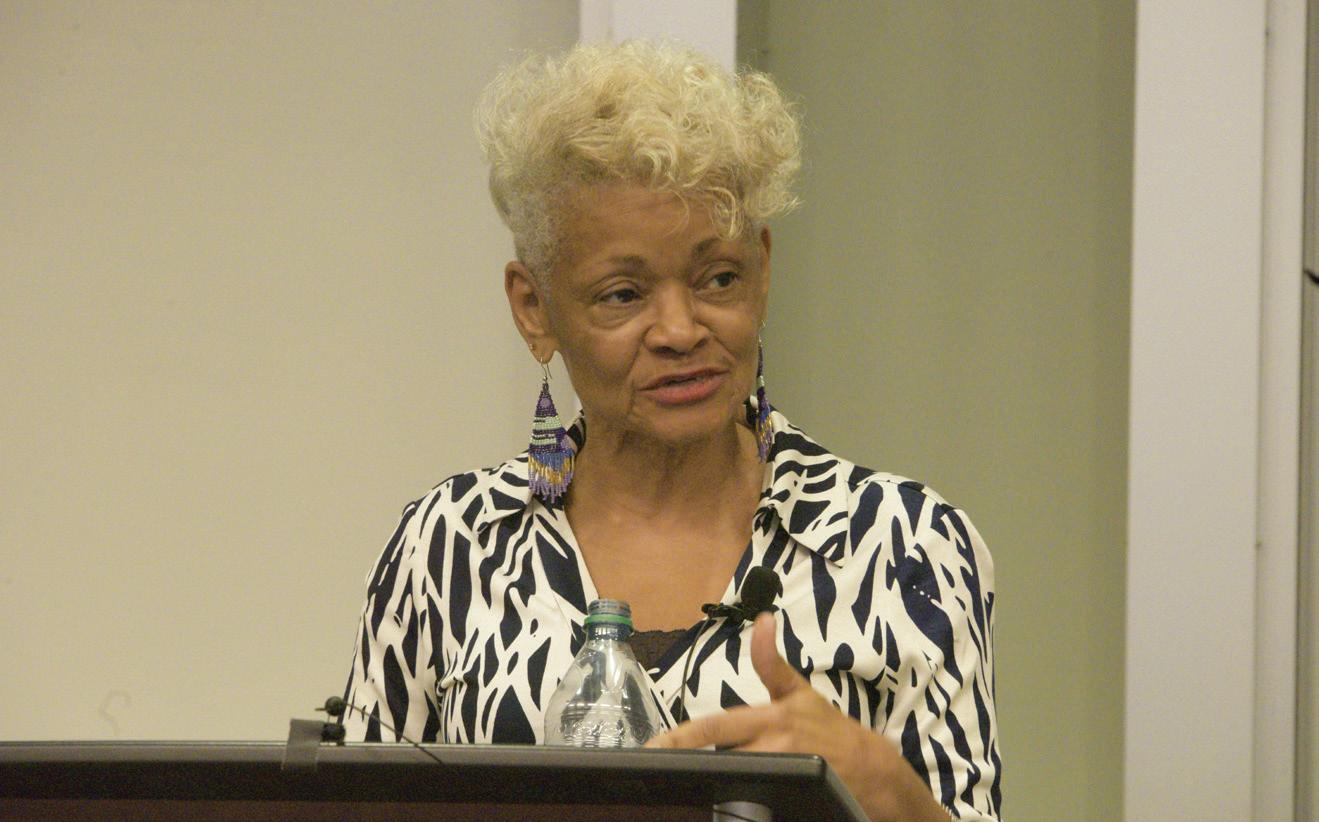
16 VANTAGE
Alum Dana Abu Ghazaleh, MDiv ’23, still remembers the first time she set foot on campus, “I immediately felt a sense of peace.” Originally from Jordan, Dana has always felt the call to ministry, but it took many years for that dream to become a reality. In part, Dana was able to say “yes” to Columbia because of all of the ways Columbia provides support for our students.
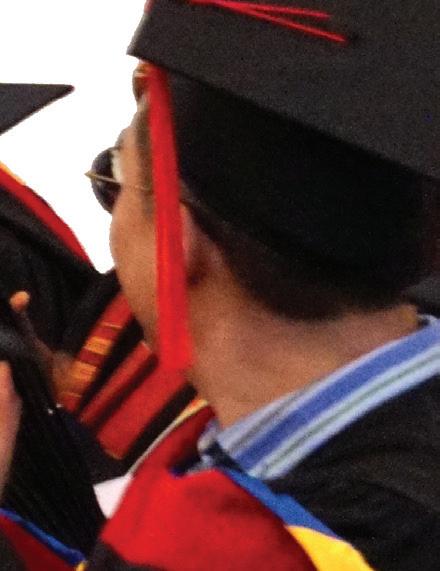
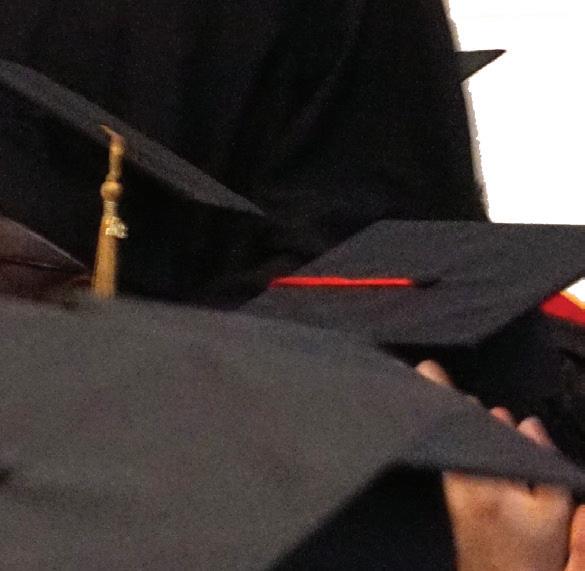

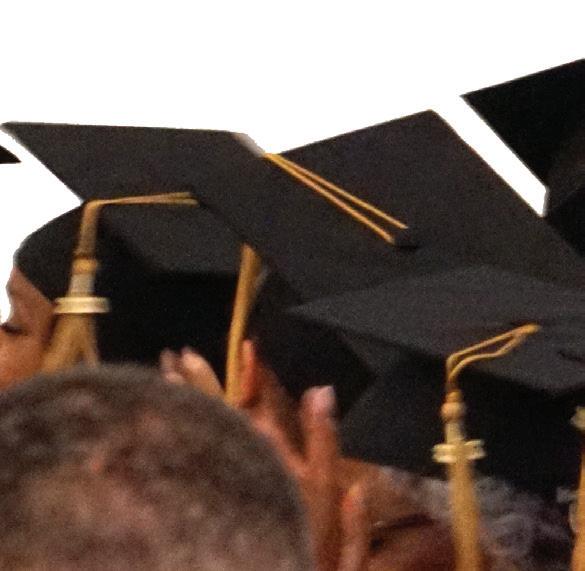
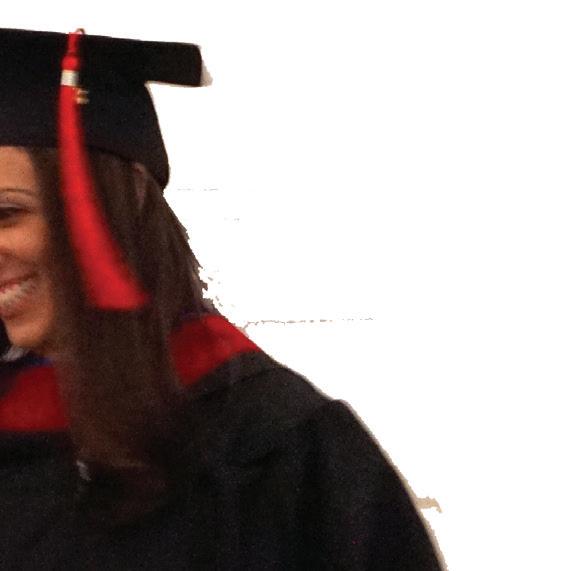
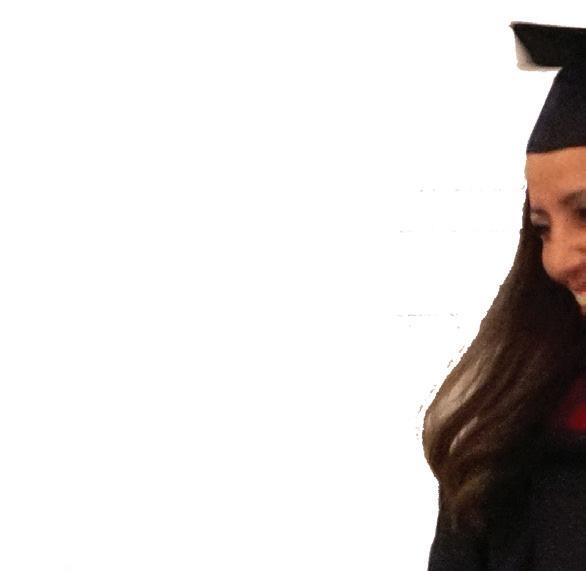
Dana quickly became a leader. Whether it was serving as a preceptor (Columbia’s version of a teaching assistant) in Biblical Hebrew courses or issuing the charge to our 11th President, Rev. Dr. Victor Aloyo, during his inauguration in November, the kind of leadership Dana displayed on campus is the kind of leader she will be in ministry.
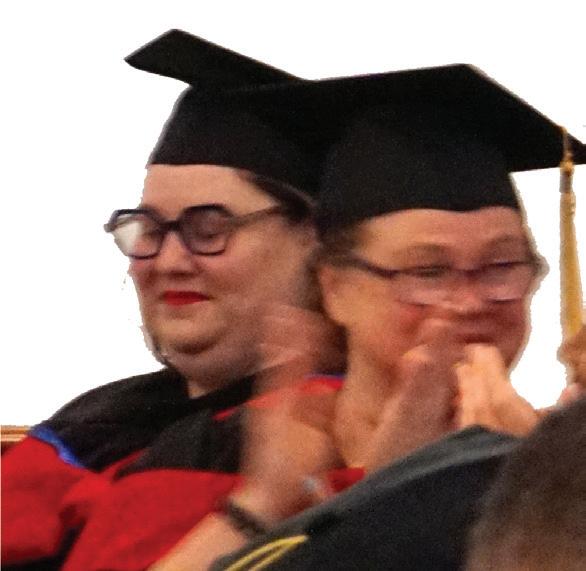
Each year, students like Dana come from all over the world to study at Columbia and become the leaders that God has called them to be. Your support of Meet the Call, The Annual Fund for Columbia ensures that our students go into their ministry settings with confidence and grace.
In this new era of church leadership, Columbia is on the cutting edge of developing leaders for the Church and the








When you make a gift to Meet the Call, the Annual Fund for Columbia, you enable our students to thrive in this transformative place of formation and learning. Your generosity ensures Columbia’s deep commitment to ensuring that all who are called can afford their calling through robust scholarship support.

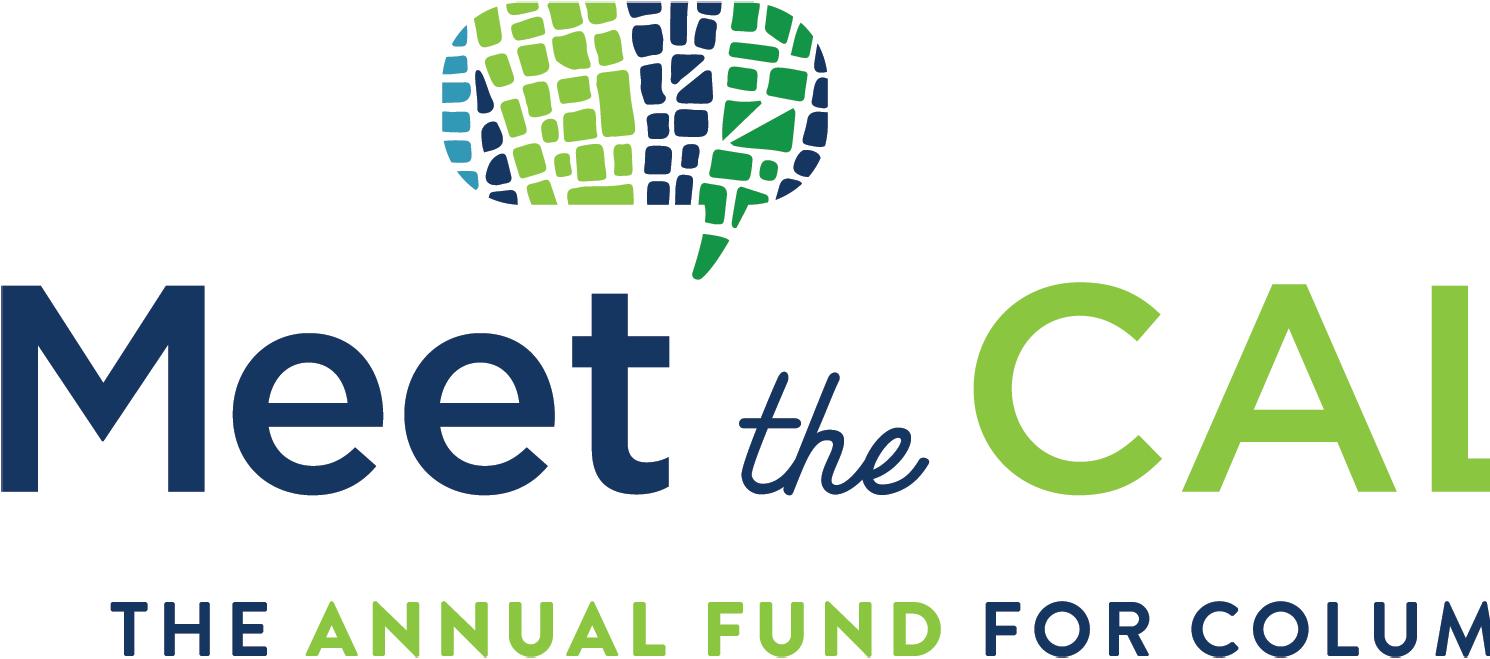

Can we count on you to make a gift to form a new leader for the church and the world?
Scan the QR Code above or visit ctsnet.edu/support to give. You can also make a gift over the phone by calling Rob Schoonover at 404-487-4622.



We are so grateful for your support of Columbia!

Summer 2023
17
Come See Columbia Day ’23



The atmosphere was festive as new Columbia Friendship Circle participants made their way to campus for a day of fellowship, learning, worshiping, and giving.
On Thursday, April 20, we welcomed over 140 guests from at least 17 congregations from around the Southeast, including Mt. Vernon Presbyterian Church, Providence Missionary Baptist Church, Shallowford Presbyterian Church, McDonough Presbyterian Church and many more, some traveling from other states! This is a record attendance for recent years.
The day began with a continental breakfast and worship in Harrington Center. Worship was led by students Dana Abu Ghazaleh and Nicole Jiskoot (pictured below). Next, attendees chose to attend either a lecture by Professors Brennan Breed or Bill Brown or joined the discussion in Christian Theology taught by Professors Martha Moore-Keish and Tim Hartman.

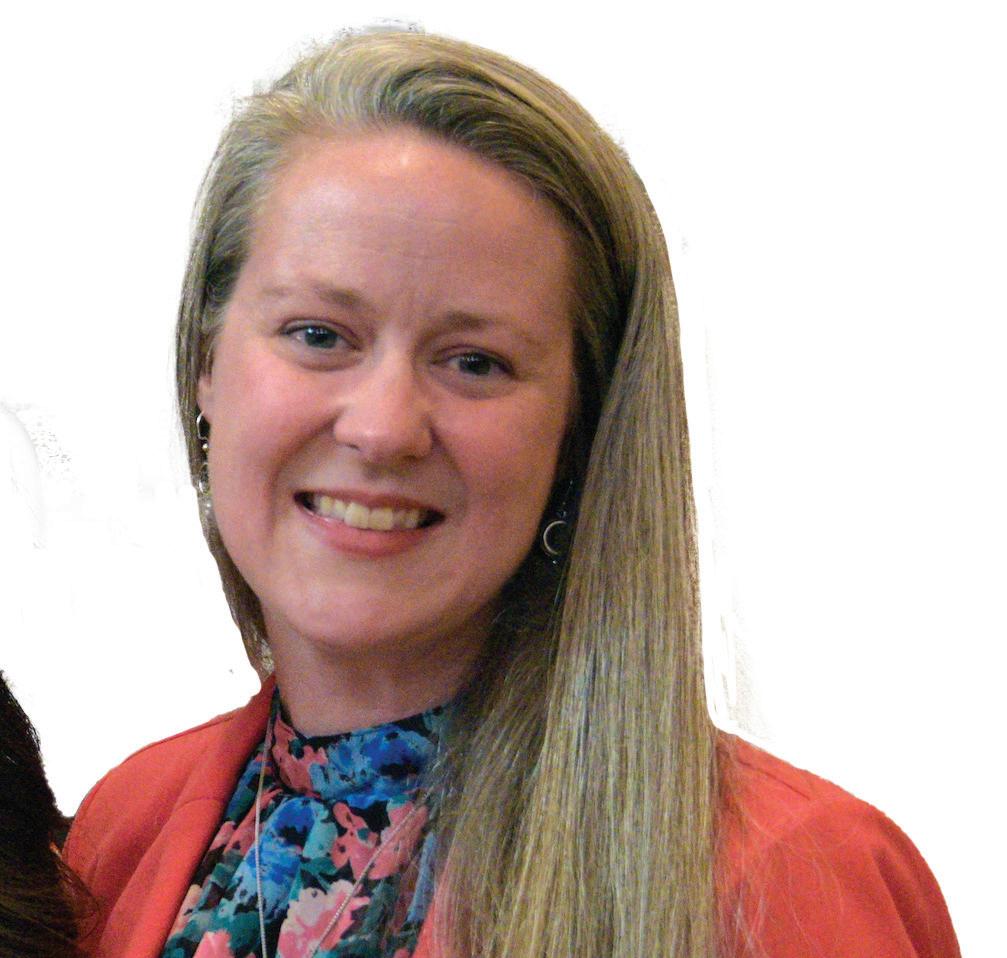
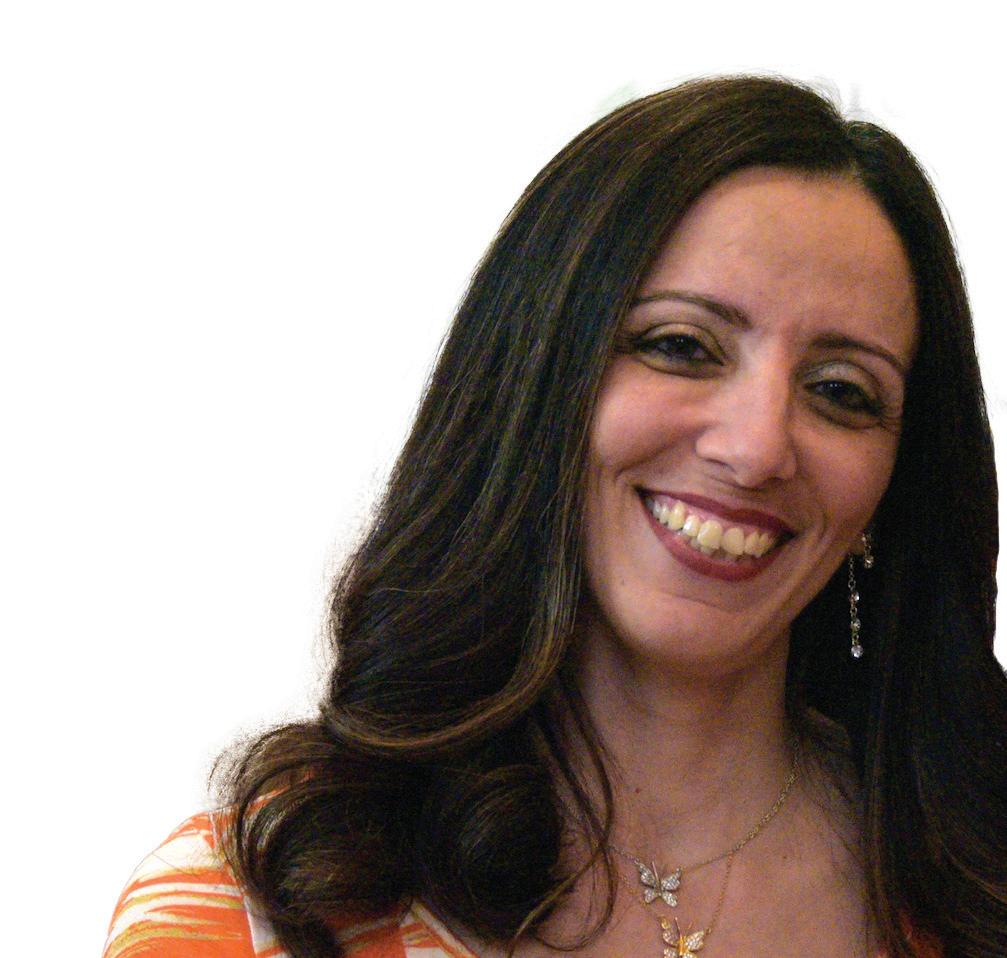
VANTAGE
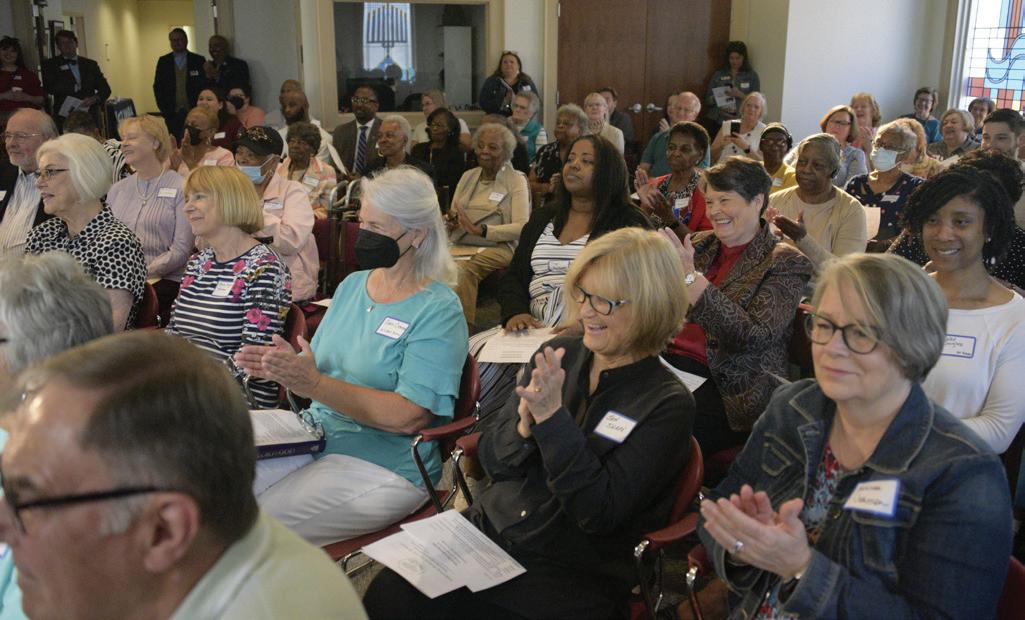


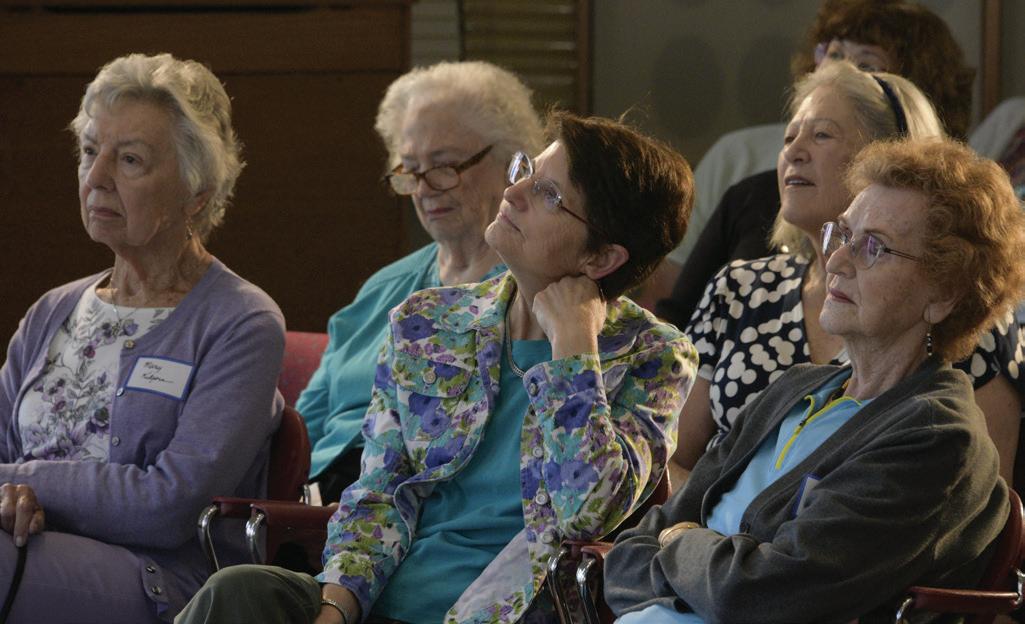
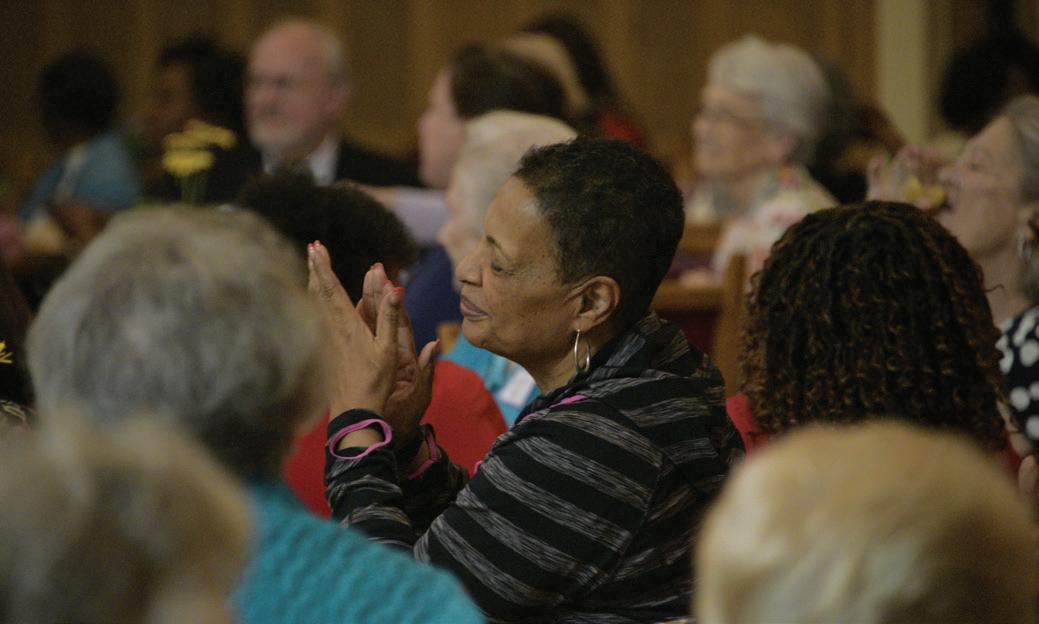
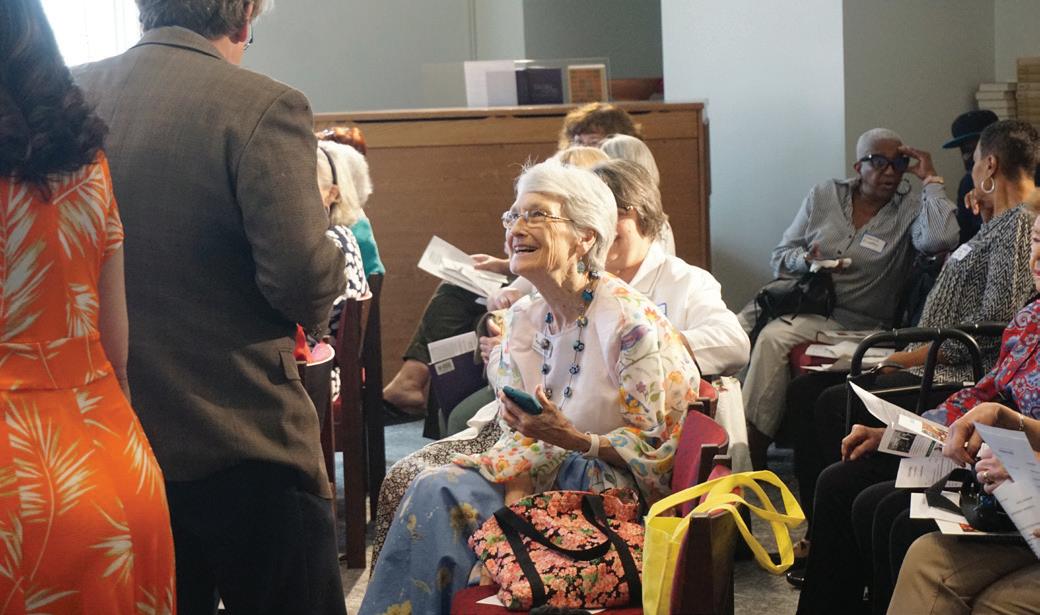
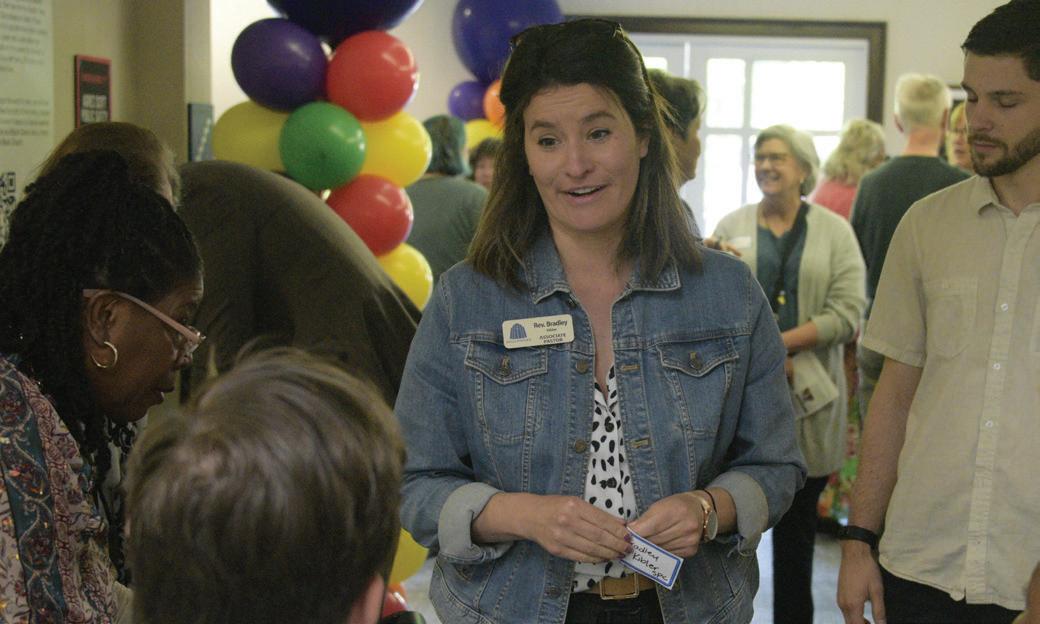
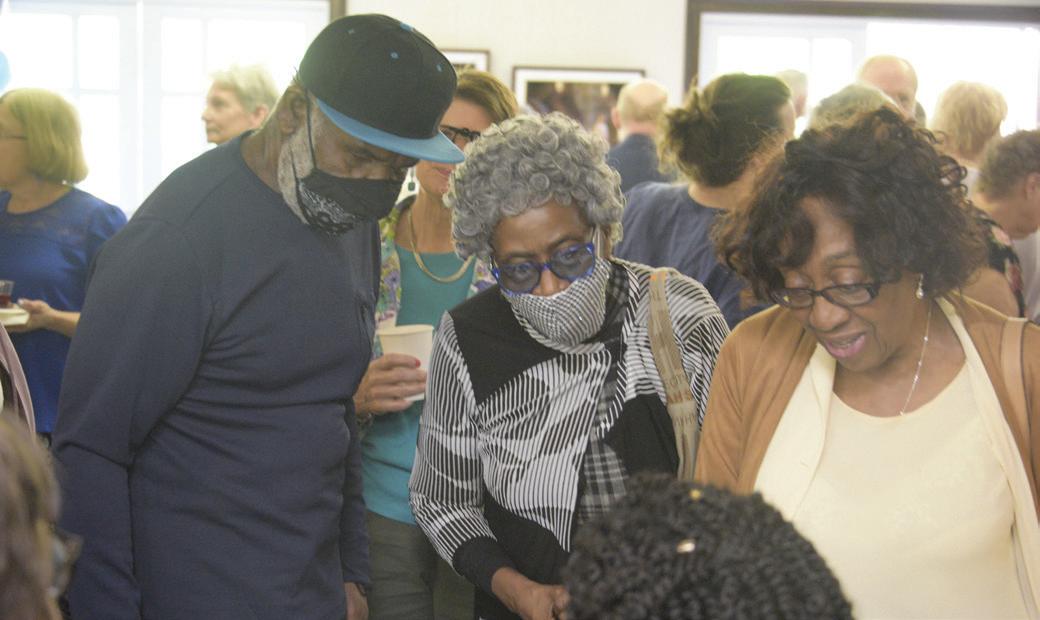
Summer 2023 19
@ the Center for Lifelong Learning
Fall 2023–Spring 2024
August 7–9
Sacred Encounters: The Power and Presence of Jesus in Luke-Acts (2023-24 PW/Horizons Bible Study Leader Seminar)
With: Olive Mahabir
September 9–December 2
Contemplative Living
ONLINE
With: Julie Saad
September 11–October 13
Soul Tending: An Exploration of Practices for Nourishment and Growth
ONLINE
With: Liz Forney
September 11–October 20
Pastor as Poet or Poetry and Pastoral Imagination
With: Anna Carter Florence
Fall–23
Leadership in Ministry
ONLINE
With: Bill Pyle, Meg Hess, Julie Josund and Margaret Marcuson
September 18–20
Leadership In Ministry Lynchburg
With: Israel Galindo, Elaine Boomer, Andrew Archie, Carla Toenniessen, Lance King, and Bill Pyle
October 2–4
Leadership In Ministry Boston
With: Israel Galindo, Margaret Marcuson, Elaine Boomer, Rebecca Maccini, and Meg Hess
October 4 – January 3
Mentor Coaching
With: Chip Low, PCC
October 12–15
Psalms, Anatomy of the Soul Location: Montreat Conference Center
With: Paul Lang
October 16–19
Wounded Ministers Retreat for Ministers and Spouses
With: Beverley Buston, Skip Irby, Skip Johnson, Elaine Boomer, Michael Cook, Robert Dibble, Clarise Dibble, and Bill Harkins
October 17–19
Family Systems and Youth Ministry
Leadership (Big Ideas in Youth Ministry)
With: Vanessa Ellison, Lance King, Michael Cook, Skip Johnson, James Lamkin and Michelle Thomas-Bush
November 1–2
THRIVE Seminar: Thinking Retirement, Identity, Vocation and Economics (BOP Seminar)
With: Board of Pensions Educators
November 13–15
Leadership In Ministry Atlanta
With: Israel Galindo, Michael Cook, James Lamkin, Skip Johnson, Dan Koger, and Vanessa Ellison
January 1
Rekindle applications open
January 2–June 30
TCI@CTS
With: Laurie Ferguson, Chip Low, Jihyun Oh, Shelley Stanley Smith, Janice Fitzgerald, Princeton E. Abaraoha, and others
January 16–February 12
Seeking God: An Invitation to a Deeper Spiritual Life ONLINE
With: Bill Brown, Carl McColman, Deedra Rich, and Mitzi Smith
January 29–February 1
Process of Aging and Implications for Ministry ONLINE
With: Zeena Reegis
February 5–March 8
Stand Up Preaching ONLINE
With: Jake Myers
February 12–March 22
Doing Justice in Israel/Palestine
With: Katie Archibald-Woodward
February 12 – March 22
Theological Reflection in Older Adulthood
With: Skip Johnson
February 17–May 11
Contemplative Living II: Contemplative Practices in Daily Life ONLINE
With: Julie Saad
March 4–6
Leadership in Ministry Atlanta
With: Michael Cook, Vanessa Ellison, Skip Johnson, Dan Koger, James Lamkin, and Israel Galindo
March 18–20
Leadership in Ministry Richmond
With: Andrew Archie, Lance King, Elaine Boomer, Israel Galindo Bill Pyle and Carla Toenniessen
20 VANTAGE
On May 16, Decatur Presbyterian Church hosted a screening of the film, “At The River,” which chronicles the work of white Presbyterian ministers who were fighting racism and discrimination, many times at odds of their congregations and communities, during the 1950s and 60s. The documentary featured a number of Columbia Theological Seminary graduates who told their stories. After the screening, a few of those interviewed answered questions from the audience and told some of their personal stories.
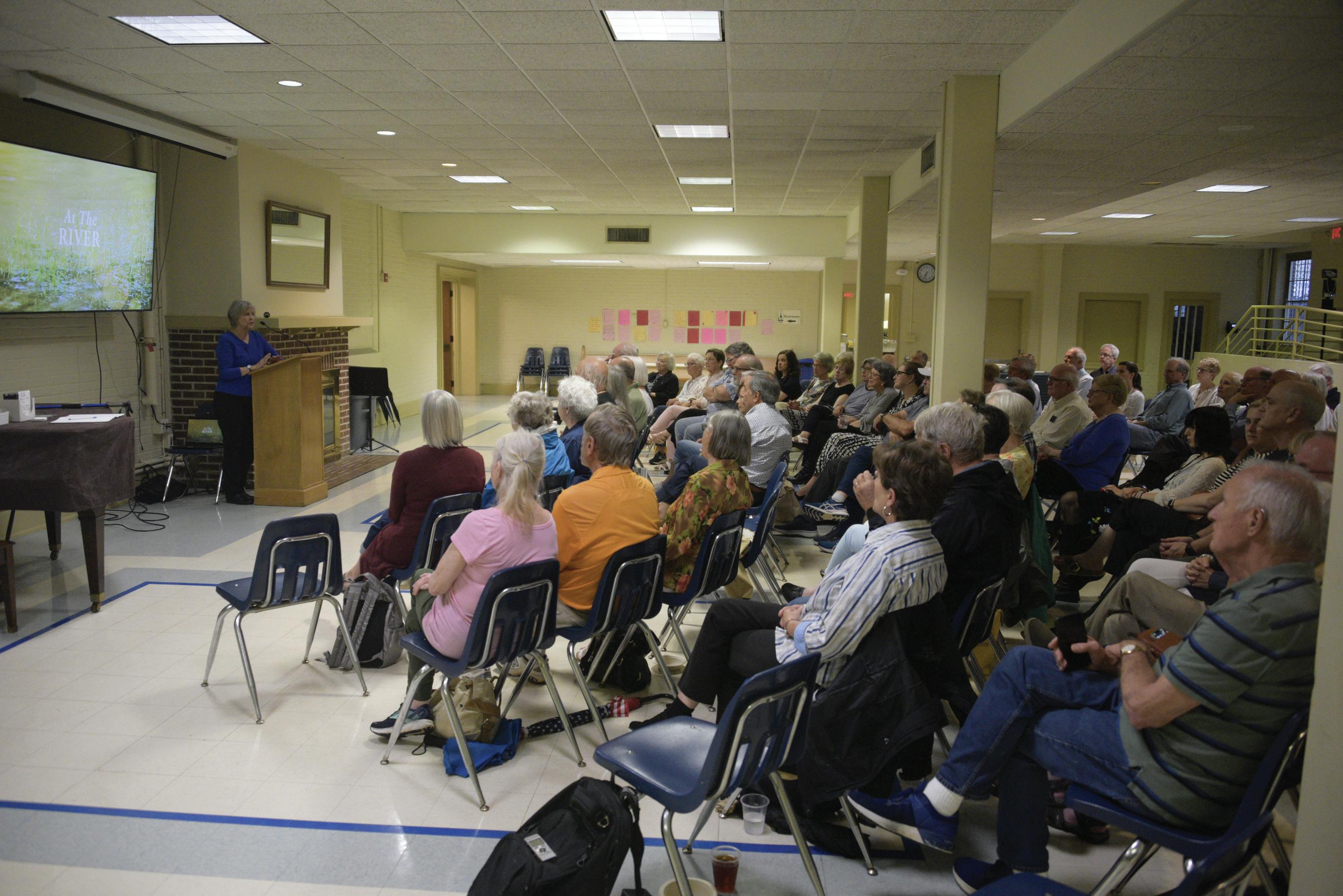
REFRESH, RESEARCH, AND REDISCOVER
re:source is a unique gift for all CTS Alumni
•The 24/7 online access to a collection of religious and theological books and articles specially designed for theological alumni
•Lifetime checkout privileges for the main library collections
Contact Bob Craigmile at CraigmileB@ctsnet.edu for login credentials or help!
Summer 2023 21
Seminary News
Columbia Receives $1.24 Million Grant from Lilly Endowment for “Wonder of Worship” Program
Columbia Theological Seminary has received a grant of $1.24 million from Lilly Endowment Inc. to help establish the institution’s “Wonder of Worship.”
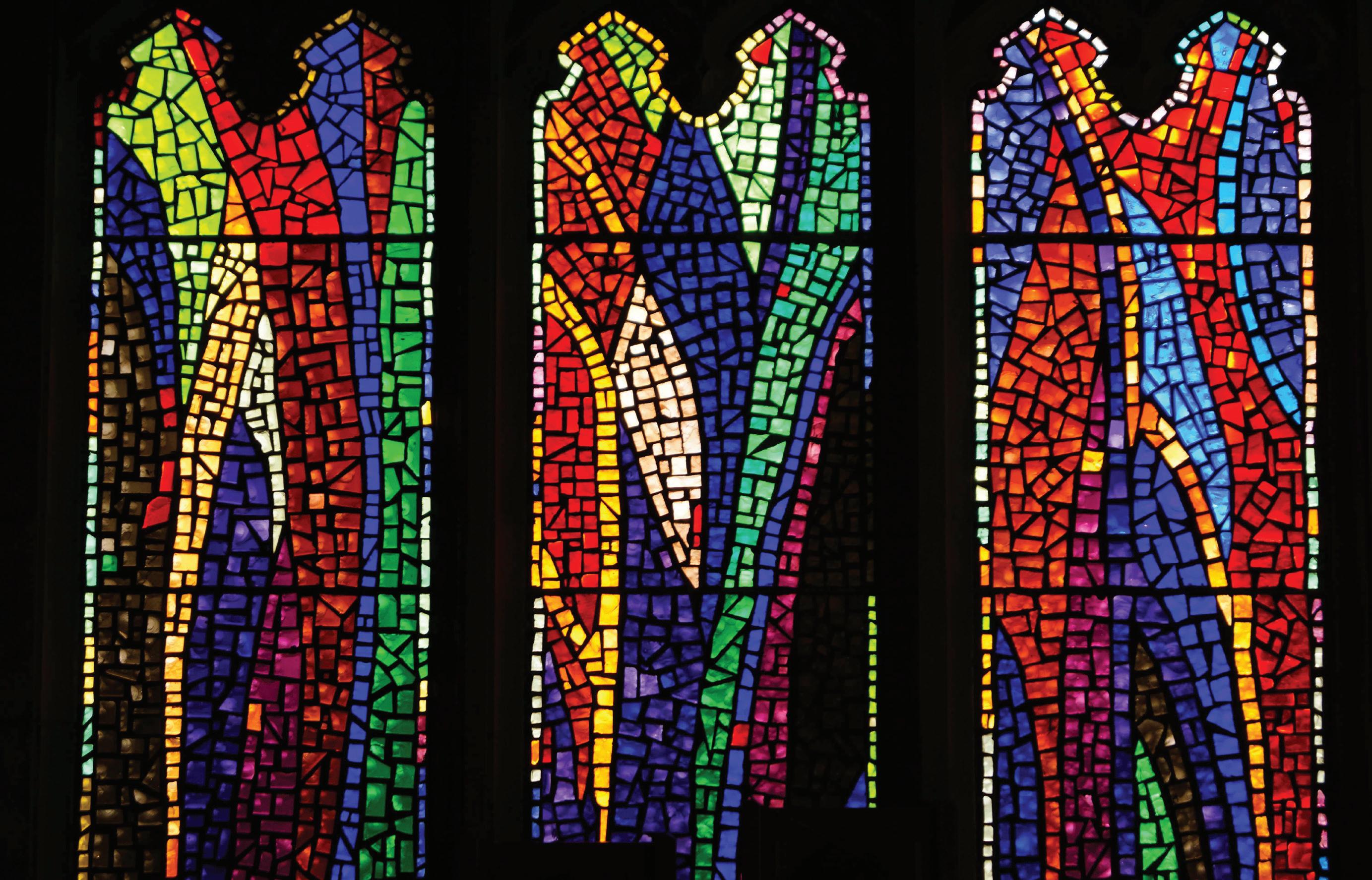
The program is funded through Lilly Endowment’s Nurturing Children Through Worship and Prayer Initiative. The aim of the national initiative is to support faith-based organizations as they help children grow in faith and deepen their relationships with God.
Wonder of Worship will create spaces for worship practice at Columbia and convening partner churches in regional gatherings twice a year. The program also will research best practices and ideas for nurturing children’s faith, as well as develop resources in a variety of media platforms to inspire and equip congregations to make changes in their corporate worship practices to make it more inclusive of children. The initiative will also guide and support congregations as they craft their own worship elements specific to church culture.
“This grant positions Columbia to move in bold, creative, and relevant ways to form Christian leaders who are committed to nurturing the faith of children, and to resource and support pastors and congregations who long for more inclusive and intergenerational worship,” said Dr. Christine Roy Yoder, Columbia Theological Seminary’s Vice President for Academic Affairs and Dean of Faculty.
Symmonds Appointed Assistant Professor Of Christian Ethics
The Board of Trustees has appointed Dr. Nicole Symmonds as Assistant Professor of Christian Ethics, effective July 1, 2023.
Dr. Symmonds most recently was the Visiting Assistant Professor of Christian Ethics at Mercer University’s McAfee School of Theology. Her research explores the racializing effects of evangelical anti-trafficking work and constructs a womanist ethic of encounter for urban mission outreach. Dr. Symmonds also contributes writings on religion and culture to the National Catholic Reporter.
22 VANTAGE
“I am eager to help shape the religious and moral imagination of clergy persons and lay ministers going into diverse contexts by expanding their vision of ethical resources beyond the norm and sharpening their socio-cultural analysis to be interculturally and transnationally sensitive,” she said.
Dr. Symmonds earned her bachelor’s degree from Florida A&M University, a Master of Divinity from Emory University’s Candler School of Theology, and a doctorate in Ethics and Society from Emory.
Patterson Named Associate Dean For Student Formation
Columbia has appointed Rev. Dr. Natasha Patterson as the new Associate Dean for Student Formation, effective March 6, 2023.
Dr. Patterson served as staff chaplain at Emory University Midtown Hospital in Atlanta where she offered spiritual health care and emotional support to patients, residents, and families. Her educational background includes Atlanta’s Interdenominational Theological Seminary where she worked with as a facilitator and adjunct professor. Dr. Patterson has also been an associate pastor at Rize Community Church and served as a youth leader and youth pastor in other churches.
“Having traversed through theological education myself, I know both the joys and challenges one might experience as a seminarian. It is my hope that students will find my office to be a sacred space where they can find respite, encouragement, or solace,” said Dr. Patterson.
Dr. Patterson earned her bachelor’s degree from the University of Maryland-Eastern Shore, a Master of Divinity from the Johnson C. Smith Theological Seminary at Interdenominational Theological Seminary (ITC), and a Doctor of Ministry at ITC.
A Blueprint to Make Our Vision a Reality
In 2022, Columbia Theological Seminary adopted A Prayer for Vision in Columbia’s Bicentennial Season, a vision statement for the school’s future which affirmed:
• Columbia’s students will be educated, equipped, and nurtured to become a new generation of pastoral leaders for the Church and the world.
• Columbia’s community will embody the welcome, hospitality, justice, and belonging of the reign of God.
• Columbia’s partnerships will bring vibrant spiritual, cultural, and academic exchange, with opportunities to generate new ideas and knowledge, create connections, and engage in experiential learning.
• Columbia will join boldly in the new thing God is already doing among us and in the world, enabling us to learn, teach, serve, and live joyfully in God’s holy house of prayer and in God’s good creation.
We are building on this foundational vision with a new Strategic Blueprint: Abundance & Grace: A Blueprint for Flourishing in Faith & Hope. This Blueprint will provide the substance for the Seminary’s annual plans and assessments for the next three to
four academic years leading up to the celebration of 100 years since the seminary’s move to Decatur in 1927. It will also lead the way into Columbia’s third century.
“In joyful anticipation of the Seminary’s two-hundredth anniversary in 2028, we aspire, through our strategic directions, to become an educational institution of theological inquiry and innovation,” says Columbia’s President, Rev. Dr. Victor Aloyo. “Unprecedented, lasting changes converged in the last 36 months, reshaping the context of the church, leadership development, ministry formation, and theological education. Columbia approaches its mission of theological education as an enterprise in the formation of the whole person, both within and outside the classroom, and this Blueprint will guide the way we accomplish this.”
Students, faculty, staff, alumni, and members of the Board of Trustees came together to provide ideas and inspiration for this Blueprint that shapes the future of Columbia Theological Seminary. At its May meeting, the Board of Trustees voted unanimously to approve the Blueprint. Now the Seminary will get to work implementing its strategic goals.
Leading the way is a set of Core Values that we seek to live into and to form future pastoral leaders to lead into. The core values identified in our Strategic Blueprint include Gratitude, Mutual Respect, Excellence, Compassion, Innovation, Hospitality, Inclusive Community, Belonging & Becoming, and Communal Engagement. More information about the Blueprint is available on our website at www.CTSnet.edu/ presidents-page/
Summer 2023 23
African Heritage Student Association graduate celebration
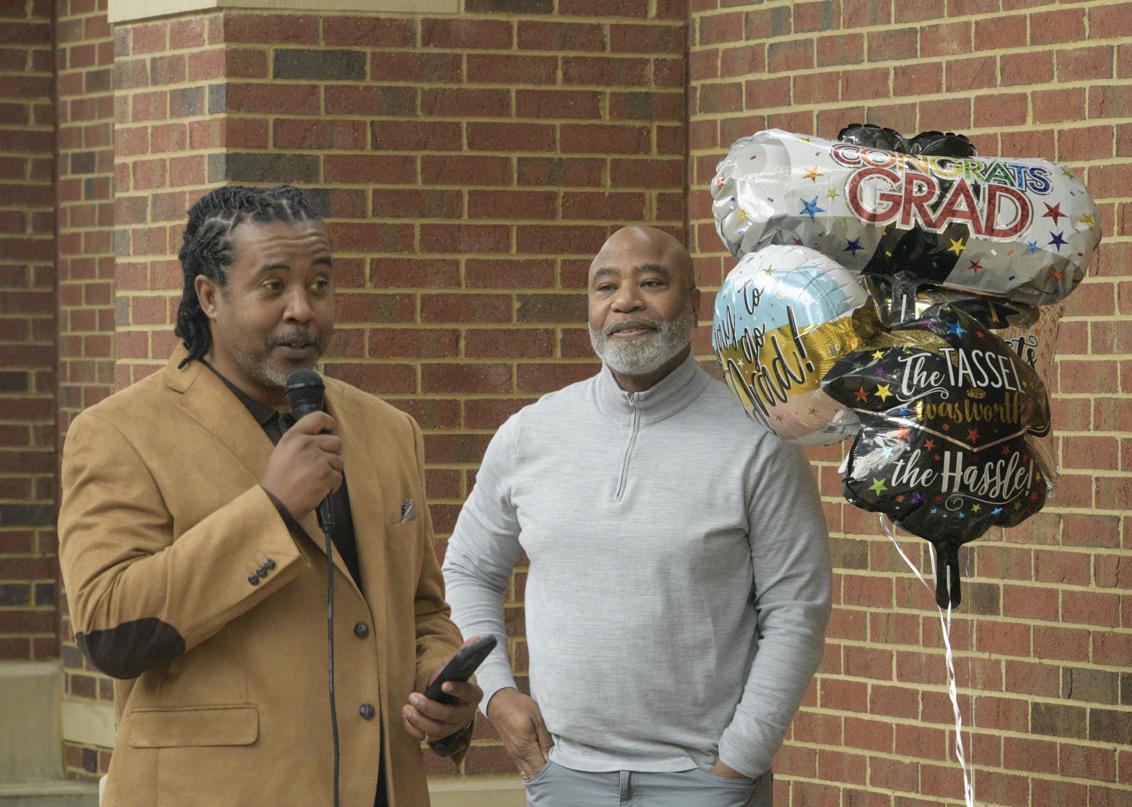
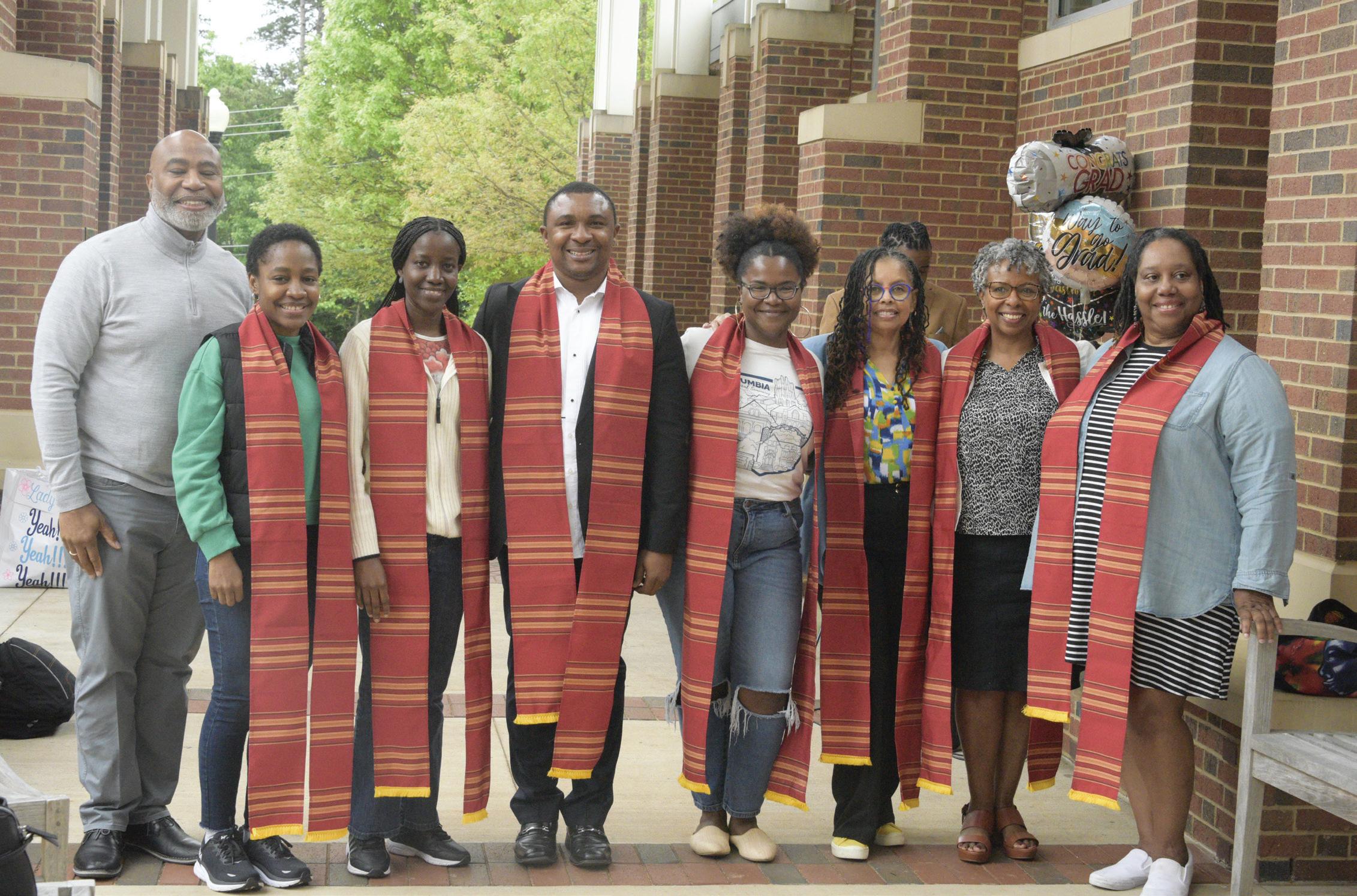
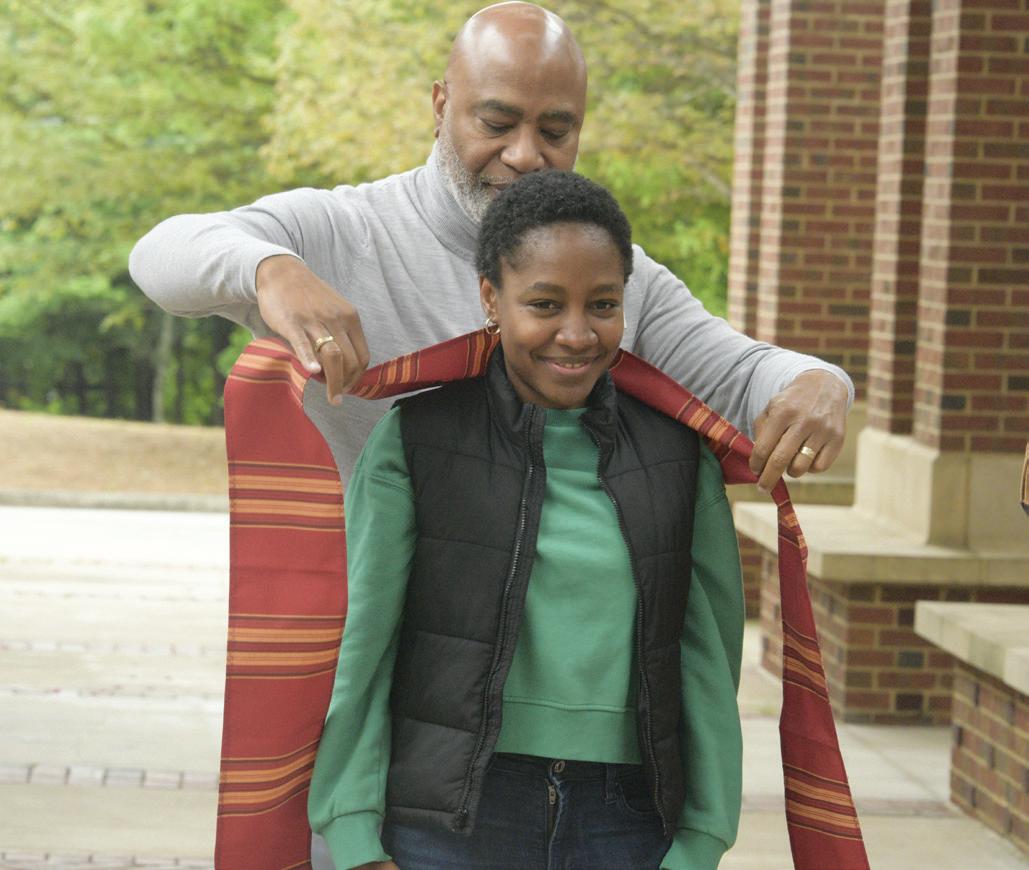
24 VANTAGE
African American graduates. Each of the graduates was given a kente’ stole to wear over their gowns at Commencement.
2023 Student Awards and Prizes
Harvard A. Anderson Georgina Kwanima Boateng
Columbia Graduate Fellowship ........................................................ Dana Alex Abu Ghazaleh
Emma Gaillard Boyce Graduate Fellowship DeNoire Dalevun Henderson
Fannie Jordan Bryan Fellowship Oladotun Joseph Akinnubi & Joon Sang Ko
Anna Church Whitner Fellowship ................................................................. Ba Wool Kim
James T. and Celeste M. Boyd Book Fund Matthew Avery Cowell, Angela Camille Johnson, tsharre rahel sanders, & Rachael Megan Ward
The Robert Ramey, Jr. Christian Leadership Award Erin Marie Tolar
Wilds Book Prize Gray Cain & Brian Eugene Cromer
William Dudley Fund Awards .......................................... Gina N. Brown & Courtney Brown Pittman
Buechner Award in Writing Paul Burgess
Abdullah Award: Moral & Spiritual Values .................................................. Brian Eugene Cromer
Julia Abdullah Award LaVerne Byas-Smith
Samuel A. Cartledge New Testament Studies Award ...................................... Dana Alex Abu Ghazaleh
Paul T. Fuhrmann Book Prize in Church History LaVerne Byas-Smith
The John Nelsen Award
.
Rachel Claire Thompson Orfield
George and Sally Telford Award Salathiel Coleman
Harold J. Riddle Memorial Book Award Matthew Avery Cowell
Florie S. Johnson Award ................................................................. Brian Eugene Cromer
Indiantown Country Church Award Ubong Kingsley Jack
William Rivers Waddey Award .......................................................... Laura Grace MacNorlin
Dabney & Tom Dixon Creation Care Sermon Award
DeNoire Dalevun Henderson
Buechner Award in Preaching ..................................................... DeNoire Dalevun Henderson
Summer 2023 25
. . . . . . . . . . . . . . . . . . . . . . . . . . . . . . . . . . . . . . . . . . . .
.
. . . . . . . . . . .
Beyond the Classroom: Faculty News and Updates
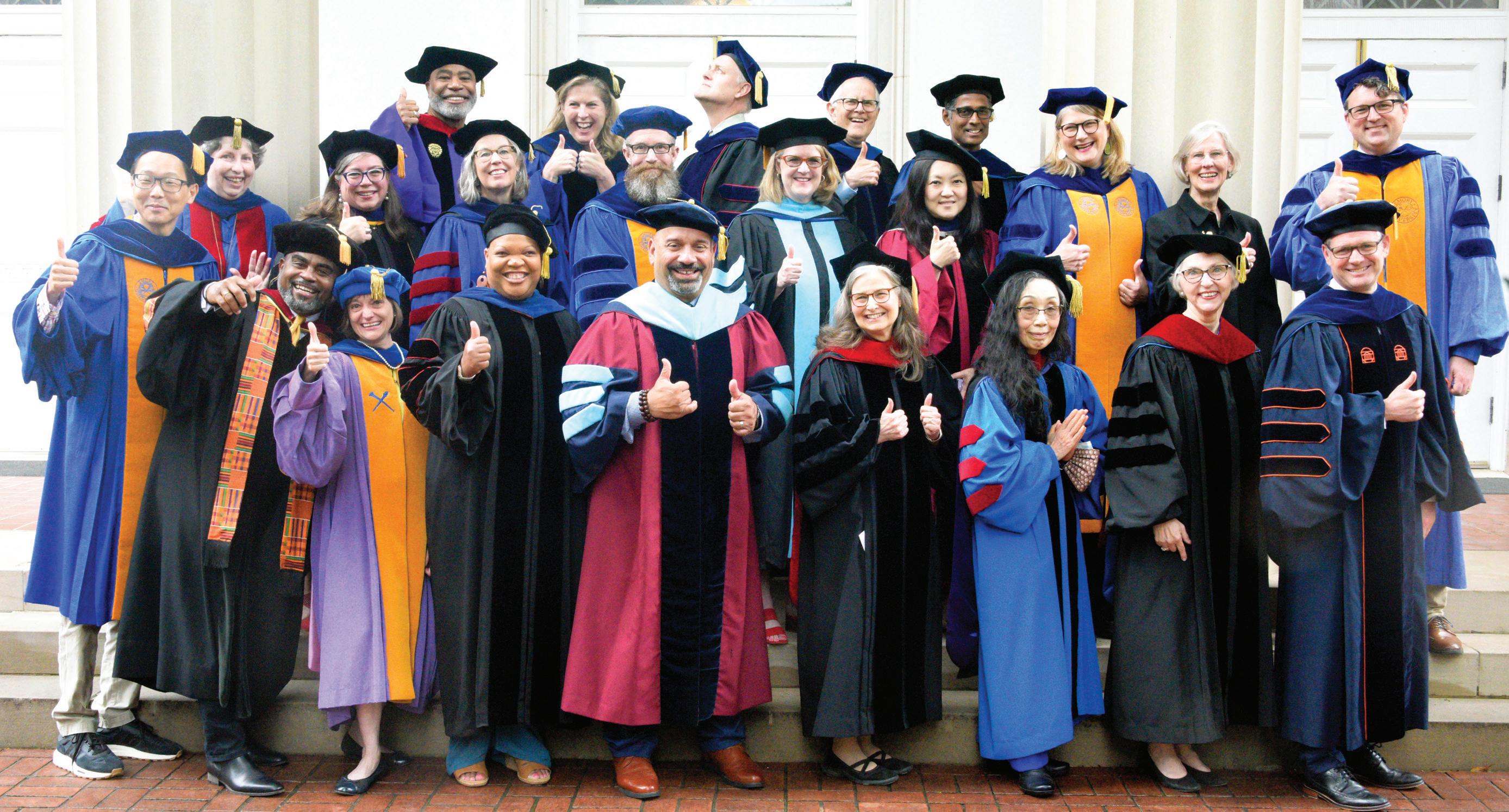
Dr. Kathy Dawson
• Received the $1.24 million 5-year implementation grant through the Lilly Endowment’s Nurturing Children through Worship and Prayer for the project “Wonder of Worship”
• Invited to present (with Khalia Williams) on “Children and Worship” at the Religious • Education Association Meeting, July 10-14 (online)
Dr. Martha Moore-Keish
• Participated in the ordination of Drew Wilmesherr, Decatur Presbyterian Church, in March
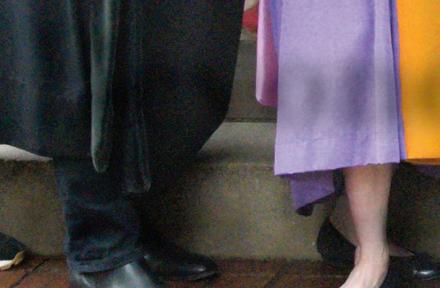
• Taught Sunday school at First Presbyterian Atlanta in April
• Her blog “Hell in the Classroom” for Wabash, published April 17
• Taught Sunday school at First Presbyterian on “Supper with the Lord: Sharing Food with Deities in
Christianity and Hinduism,” April 23
• Spoke as part of the retirement symposium for Dr. Paul Galbreath at Union Presbyterian Seminary in Charlotte, May 6
• Invited to participate in an Ecclesial Discernment Event hosted by the Office of the General Assembly (OGA) at Westminster Presbyterian Church in Minneapolis, August 18-19
Dr. Chanequa Walker-Barnes
• Panelist in the “Health and Medical Disparities” workshop at the Samuel Dewitt Proctor Conference
• Preached at Gray’s Chapel AME Church for Women’s Day, March 12


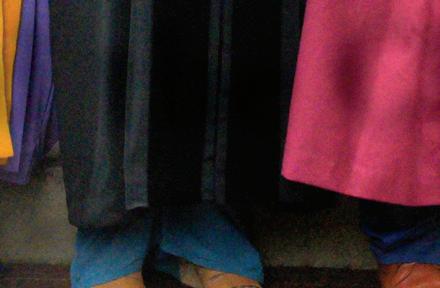
• Guest speaker for the Evangelical Covenant Church BIWoC Clergy Connection, April 11
• Guest speaker for the Baptist Women in Ministry Mentoring Program, May 10
Dr. Brennan Breed
CHURCH PRESENTATIONS
• Scholar-in-Residence for The Moveable Feast, Austin Presbyterian Theological Seminary, January 2–5
• “Wilderness in the Bible and Beyond,” six-week Lenten Series at Decatur First United Methodist Church, February–April
• “Daniel and the Sovereignty of God,” three plenary sessions for First Presbyterian Church of Marietta’s retreat weekend, Montreat Conference Center, March 24–27
• “The Book of Job: Chaos and Order,” three plenary sessions and sermon for the annual Wall Lecture Series, Kingston Presbyterian Church, Conway, South Carolina, April 21–23
• “In the Presence of God,” three plenary sessions and sermon for Sequoya Hills Presbyterian Church’s retreat weekend at Montreat Conference Center, April 28–30
26 VANTAGE
• Taught an Adult Education series, “Between the Old Testament and the New,” at Decatur First United Methodist Church, May 14 and 21
• Taught an Adult Education series, “Miracles and Signs in the Bible and Beyond,” at First Presbyterian Church of Marietta, June 4, 11, 18, and 25
• Taught an Adult Education series, “Hospitality in the Bible,” for Covenant Presbyterian Church in Charlotte, NC, July 30 and August 6
ACADEMIC PRESENTATIONS
• “Delighting in an Argument with God: Job’s Speeches and the ‘Great Complaint.’” Paper presented at Inwards, Outwards, Upwards: Self-Reflection, Dispute and Lament in Job’s Speeches, conference held at the University of Leipzig, Germany, Jan 27–29
• “Reception History as the Deleuzian ‘Ideal Game’,” Paper presented at the Biblical Reception Workshop held at Lund University, Sweden, May 9–10
• “Indigenous and Foreign Experiences with Ptolemaic Legal Structures in the Southern Levant,” presented in the Impact of Hellenistic Empires section at the EABS Annual Conference held at the University of Syracuse, Italy, July 10–13
PUBLICATIONS
• “Major Review: John Collins, What Are Biblical Values? What the Bible Says on Key Ethical Issues,” Interpretation: A Journal of Bible and Theology 77 (2023): 83–92.
Dr. Kelly Campbell
• Invited to participate in a 2023-24 $30,000 Intergenerational Mentoring Cluster Grant for Particular Consistency Groups from the
Wabash Center. Her consistency group is theological librarians. Other recipients include Boyung Lee (Iliff), Edwin Aponte (Drew), Roger Nam (Candler/Emory), Evelyn Parker (Garrett), and Angela Sims (Colgate Rochester Crozer Divinity School)
Dr. Mindy McGarrah Sharp
• With MAPT student tsharre sanders, and MAPT/MDiv dual degree student Lugenia Sanders, presented on intersections of psychology and theology in pastoral care training and formation to a social psychology course at Spelman, March 6
• Facilitated conversations on Grief and Loss at Trinity Presbyterian (December), Embry Hills UMC (February), the Georgia Psychological Association Senior Psychologist’s Network (March), and a Center for Lifelong Learning course on “Grieving Well when the List of Losses is so Long” (April-May)
• Wabash featured teacher of the month, May 2023
• Dissertation Committee for PhD student at Union Theological Seminary (NYC)
Dr. Mitzi Smith
• Selected as a participant in the 2023 writing workshop titled “Breaking the Academic Mold: Liberating the Powerful, Personal Voice Inside You,” co-sponsored by the Wabash Center and Collegeville Institute
• Published Chloe and Her People: A Womanist Critical Dialogue with First Corinthians (Cascade Books, 2023)
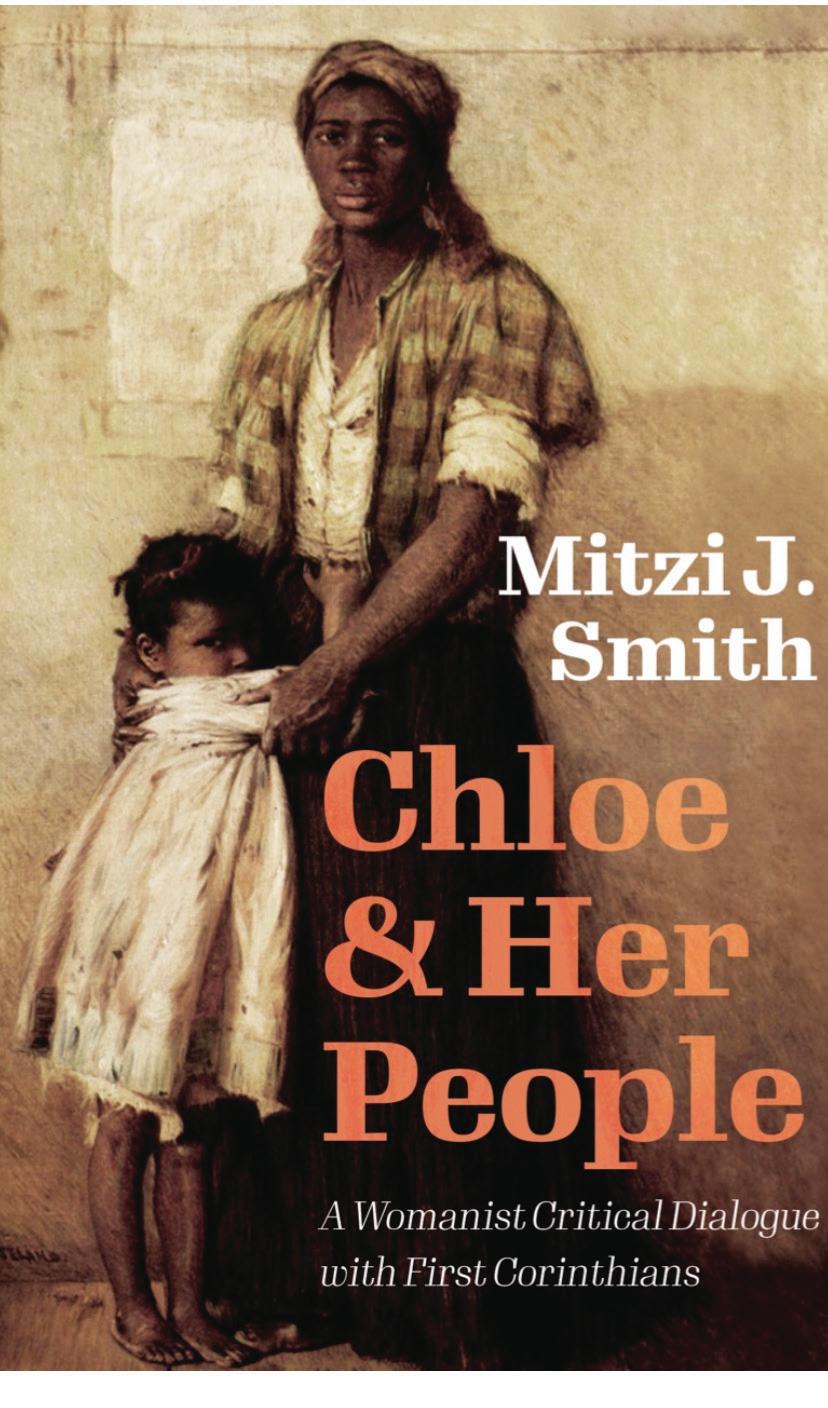
Dr. William Yoo
• Published an article, “Teaching a History that I Never Learned,” in The Wabash Center Journal on Teaching 4:1 (March 2023)
• Published a reflection, “Theological Education is Due for a Reckoning,” on the Social Justice and Civic Engagement series for the Wabash Center blog in March
• Guest on four podcasts in March: Leading Theologically with Rev. Dr. Lee Hinson-Hasty; Dangerous Dogma with Rev. Dr. Brian Kaylor; This is Crucial with Rev. Dr. Charlene Han Powell and Rev. Dr. Amos Disasa; A Matter of Faith: A Presby Podcast with the Presbyterian Peacemaking Program
• Presbyterian News Service wrote a story about his conversation on Leading Theologically
• Attended the Montreat Conference Center board of directors meeting
• Attended the Cherokee Presbytery Pastors Convocation at Cherokee Retreat Center
• Preached at Bethany Korean Presbyterian Church (Marietta)
Summer 2023 27
• Gave a virtual presentation on racism and Christianity in the U.S. for Highlands United Presbyterian Church of Cheyenne and the University of Wyoming Black Studies Center in April
• Preached at Western Presbyterian Church in Washington, D.C.
• Gave a public lecture, “African Americans, Asian Americans, and the Histories of Slavery and Racism within the Presbyterian Church and Princeton Theological Seminary,” for the Center of Asian American Christianity at Princeton Seminary
• Lead a virtual DEI Workshop for the Presbyterian Mission Agency
• His book, What Kind of Christianity, received the 2023 Award of Excellence from the Religion Communicators Council.
• Taught at Grace Covenant Presbyterian Church in Asheville, NC, May 14
• Preached at Old Presbyterian Meeting house in Alexandria, VA and taught at Fairlington Presbyterian Church in Alexandria, VA for events co-hosted by First Presbyterian Arlington, Fairlington Presbyterian, Old Presbyterian Meeting House, National Capital Presbytery’s Dismantling Racism Task Force, and Reformed Institute of Metropolitan Washington, May 21
Dr. Israel Galindo
• Presented at Leadership in Ministry Atlanta, “Assessing Congregation from a Systems Theory Framework,” March 6-9
• Leadership in Ministry monthly webinar, March 10
• Presented at Leadership in Ministry Lynchburg, “Assessing Congregation from a Systems Theory Framework,” March 20-22
• Leadership in Ministry monthly webinar, April 14
• Lilly Thriving in Ministry gathering, Indianapolis, April 22-24
• Presented at Leadership in Ministry Boston, “Assessing Congregation from a Systems Theory Framework,” May 8-10
• ALLLM/ATS webinar presentation, May 12
• Wabash Large Grant Gathering, Indianapolis, May 16-17
• Present at the Wabash Consultant’s Gathering, Indianapolis, May 22-24
Dr. Jeffery Tribble
• Completed his capstone Executive Education course at Northwestern University’s Kellogg School of Management and received an Executive Scholar Certificate with a specialization in nonprofit management
• Invited to serve as an External Evaluator for proposed Doctor of Ministry Program at Union Theological Seminary
• Appointed by the President of the Board of Bishops of the A.M.E. Zion to serve on the Advisory Council for a Historic Faith and Practice Commission exploring the historic, orthodox, and contemporary practices on the topic of Sacramental Theology
• Contributed an article, “The Sacrament of Baptism in the A.M.E. Zion Church” for the Spring edition of the A.M.E. Zion Quarterly Review
• Contributed a video sermon for Lenten Series of John Wesley A.M.E. Zion Church in Southfield, MI
• Served as Preacher for Easter Service, New Life A.M.E. Zion Church, College Park, GA
Dr. Tim Hartman
• His book, Theology After Colonization: Bediako, Barth and the Future of Theological Reflection was reviewed by Elizabeth Palmer in The Christian Century. She said, “Hartman’s new monograph…has been a gift to me.”
Dr. Anna Carter
Florence
• Was the opening preacher for the Festival of Homiletics in Minneapolis, on May 15, and gave a lecture, “Alabaster, Olive Leaves, Shipwrecks, and Talking Donkeys: An Alphabet of Stories for Tired Preachers,” the next day. It was her 21st time at the Festival.
Dr. Raj Nadella
• Began a three-year term on the editorial board of SBL’s Review of Biblical Literature
• Joined the editorial board of Currents in Biblical Research
• Preached a sermon on Day1 Radio
• Preached and gave a talk on Bible Translations and Empire at the Trinity Presbytery in South Carolina
• Served as a panelist for a review of Sugirtharajah’s new book—The Brahmin and His Bible—at the SBL’s global virtual meeting
• Preached and gave a talk at the Princeton University Chapel in April
Dr. Marcia Riggs
• Published (with Suzanne Yoder) Virtues, Practices, & Skills of Religious Ethical Mediation: A Workbook
28 VANTAGE
Dr. Ralph Watkins
• Silhouette Interview Podcast with the Wabash Center on The Art of Art in Teaching
• Served on the Ordination Council for Deacons Ordination for Providence Baptist Church
• Keynote Speaker for Historically Black Colleges and University Data Science for Social Impact. The lecture title is “Dr. W E B Du Bois The First Visual Scholar: Data You Can See,” April 1
• Premier of Documentary and Photo Exhibition “Seeing the Future of the African American Church in the Rainbow” to a packed house. The film has been accepted and will be shown at the American Academy of Religion conference next year. (project website: www. futureofblackchurch.org)
• Led the workshops for 22 Thompson Scholars, from around the country, led by Bishop Yvette A. Flunder, Rev. Dr. Horace Griffin, and Bishop-Elect Sonya Williams. There was also a student luncheon in which Bishop Flunder spoke.
Dr. Bill Brown
• Preached at Oakhurst Presbyterian Church on “Just Creation,” April 23
• Led the “Urban Suburban Clergy Conference” of Episcopalian priests on “Terra Sapiens: Theological Intersections of Creation, Justice, and Wisdom in the Bible,” in Memphis, April 17-19
• First Reading Podcast on Psalm 31 with Paul Essah and Rosy Kandathil, April 2
Drs. Mindy McGarrah Sharp, William Yoo, and Brennan Breed attended the ATS Vocational Retreat for Midcareer Faculty in Denver, CO, May 26-28, 2023
Drs. Mindy McGarrah Sharp, Christine Hong, Ralph Watkins and Israel Galindo attended the Wabash consultants workshop and annual meeting, May 2023
Dr. Ralph Basui Watkins, Columbia’s Peachtree Professor of Evangelism and Church Growth, was part of the 2023 class that was inducted into the 37th Martin Luther King Jr. International Chapel’s Board of Preachers, Sponsors, and Collegium of Scholars at Morehouse College on Thursday, April 13. Clergy, faith leaders, and educators from around the world and a variety of global spiritual and ethical traditions are honored annually for their work and added to the prestigious group. They are also lauded for their combination of personal piety, religious civility, keen intellect and a commitment to faith bearing witness in various forms of social justice, equality and human rights.
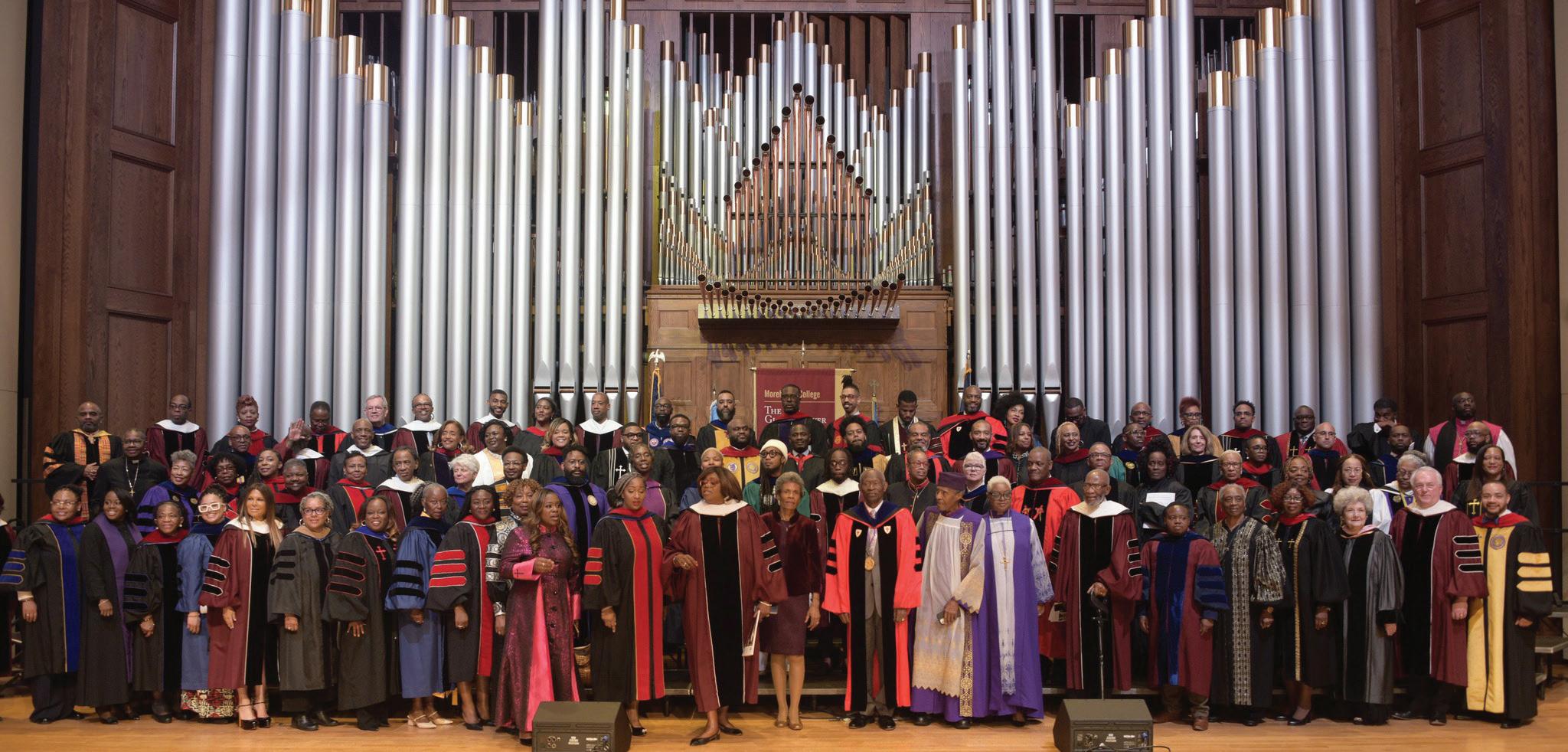
Summer 2023 29
Alum Updates
Welcome New Alums!
Doctoral-level Degrees
Not
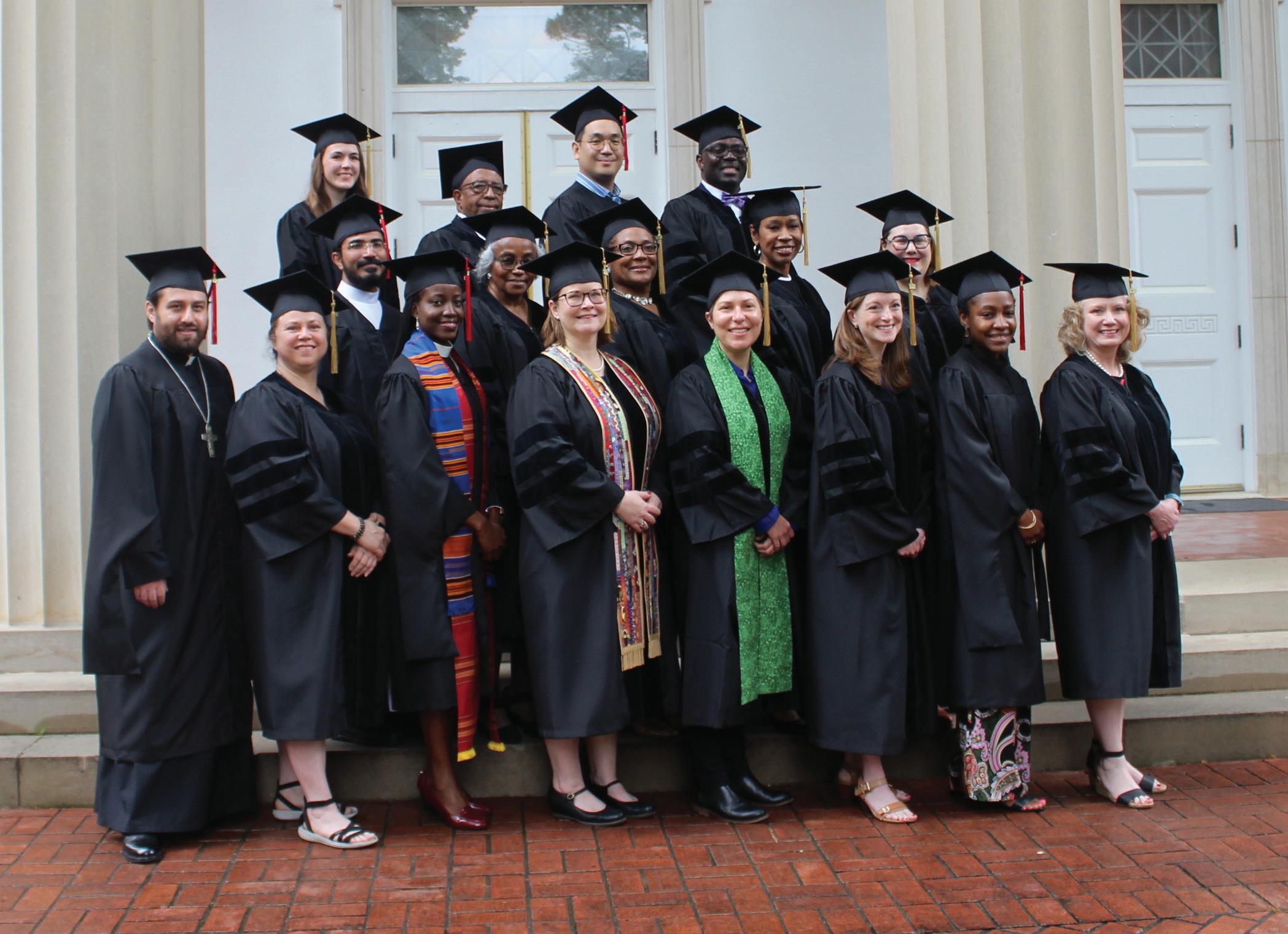
30 VANTAGE
Top row left to right: Rachel Thompson Orfield (DMin), Mesfin Taddesse (DMin), Ba Wool Kim (ThM), Alton Williams, (DMin)
Second Row left to right: Abraham Oommen (ThM), Salathiel Coleman DMin), Garland Higgins (DMin), Amantha Barbee (DMin), Sarah Leer (DEdMin)
Front row left to right: Giogi Saria (ThM), Aimee Frye Appell (DMin) , Georgina Boateng (ThM), Camille Powell (DMin), Lacy Brown (DMin), Kathryn Wolf Reed (DMin), Afesha Millette (ThM), Christy McMillin-Goodwin (DMin)
Pictured: Beverly Chapman Markham
Masters-level Degrees
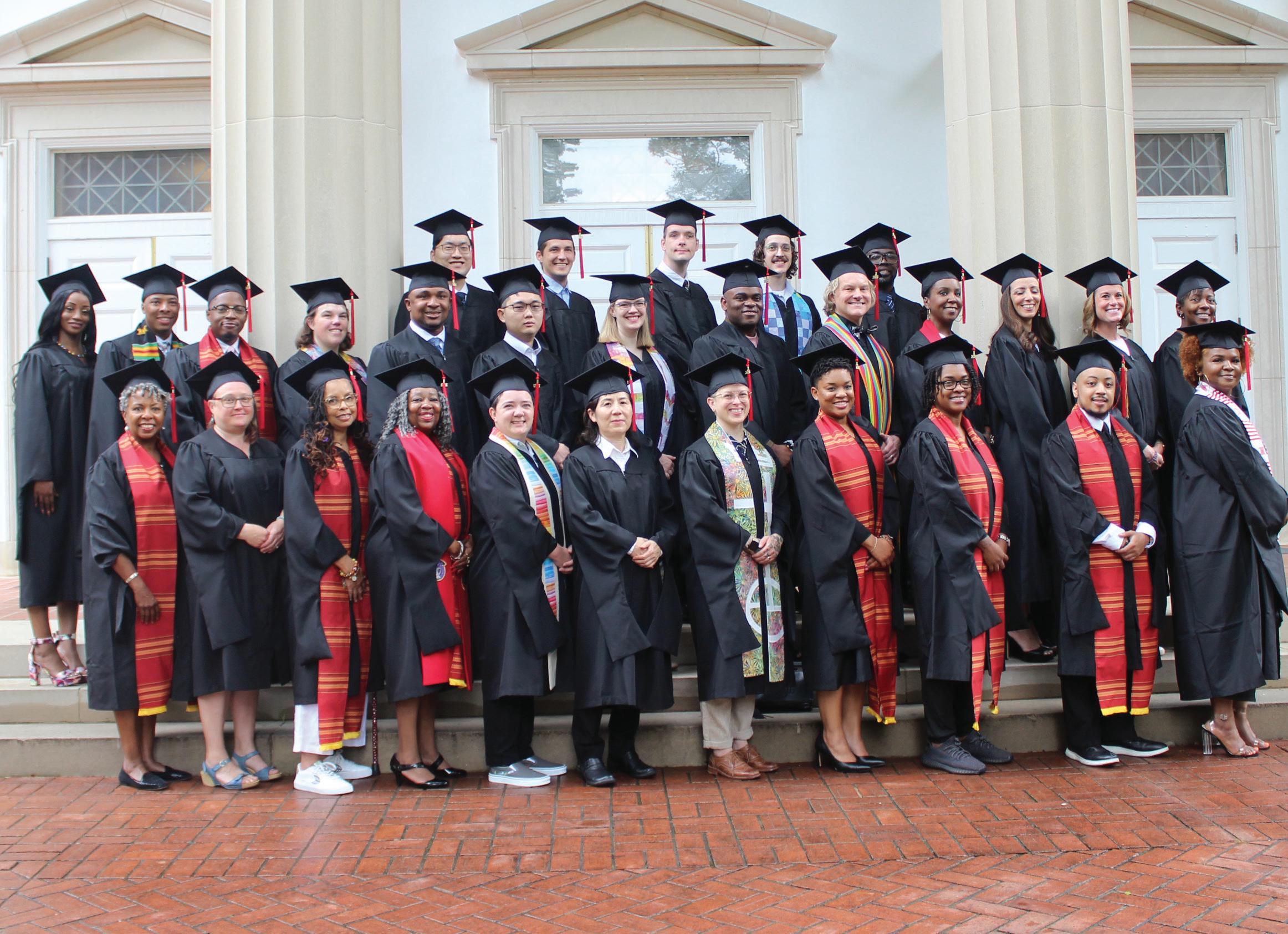
Middle
Bryanna Greg, Darnell Lee, Preston Brown, Bonnie Bakewell, Oladotun Akinnubi, Ki-Min Noah Kim, Erin Tolar, Ubong Jack, Brian Cromer, Jeanine Fulton, Dana Abu Ghazaleh, Courtney Pittman, Doris Smith
Front
left to right: LaVerne Byas-Smith, Laura MacNorlin, Angela Johnson, Evelyn Ingram, Gray Cain, Mi Ae Kim, Rachael Ward, DeNoire Henderson, Roshonda Boone, Kenneth Rucker, tsharre sanders
Summer 2023 31
Top Row: Joon Sang Ko, Paul Burgess, Matthew Cowell, Van Herring, Frederick Yamson
Row:
Row
New Alum Picnic























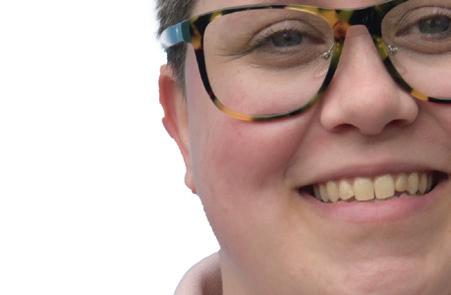





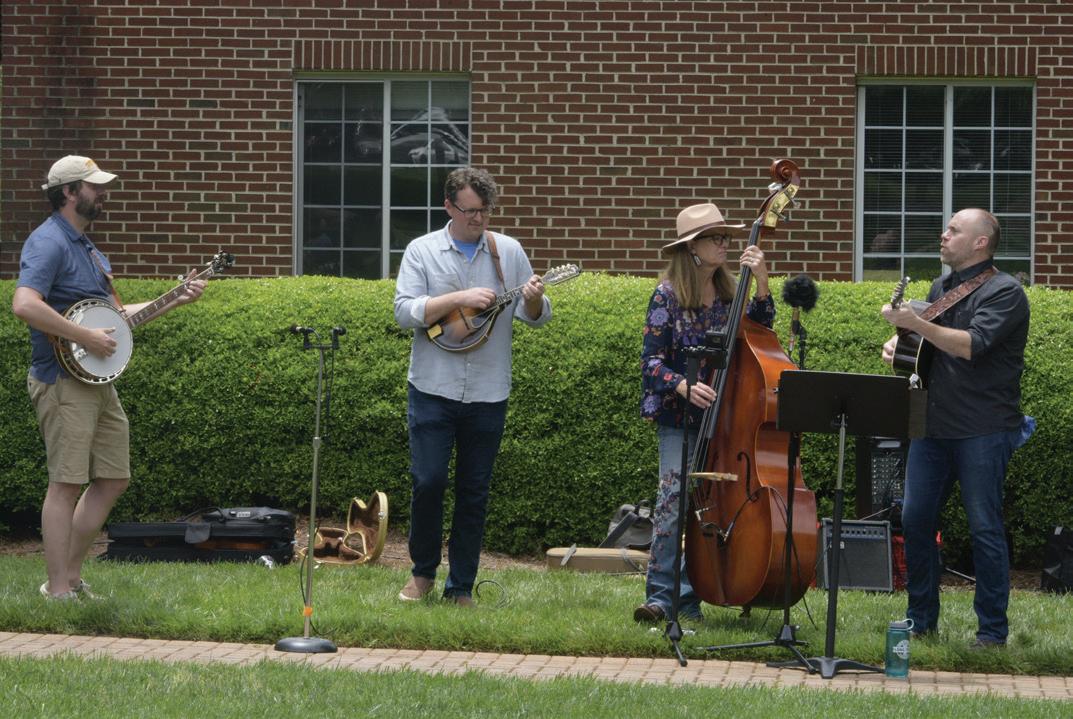
On Friday, May 19, the graduating class of 2023 gathered with their families and friends, faculty, and staff to mark the end of their time as students at Columbia with a picnic on the quad. We also welcomed alumni from the classes of 2020 and 2021 who, because of the pandemic, were not able to have in-person events when they graduated. It was a day of BBQ, good music from the Hot Dill Pickers, a and fun celebrating with the Columbia community.



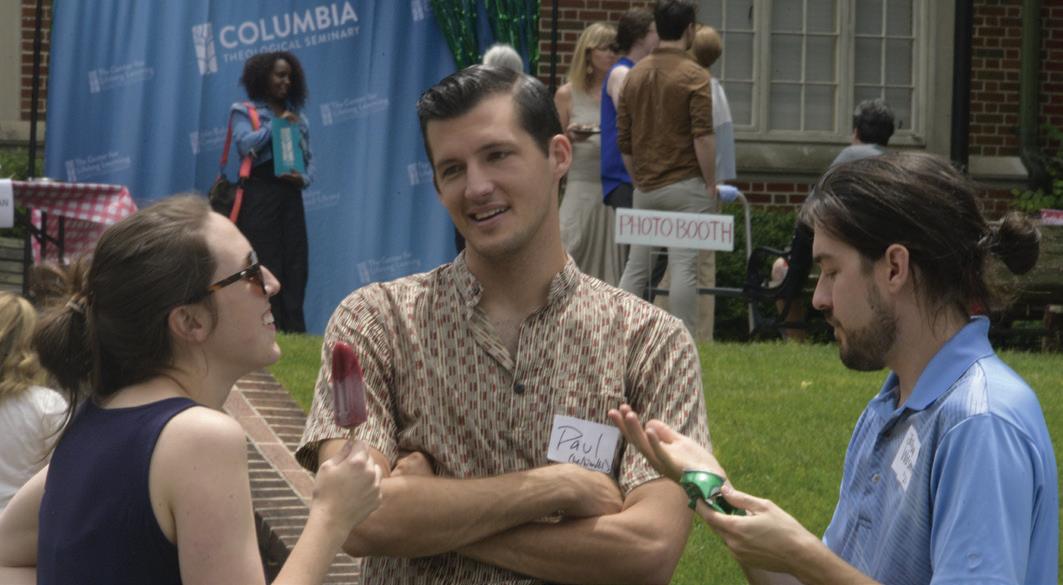
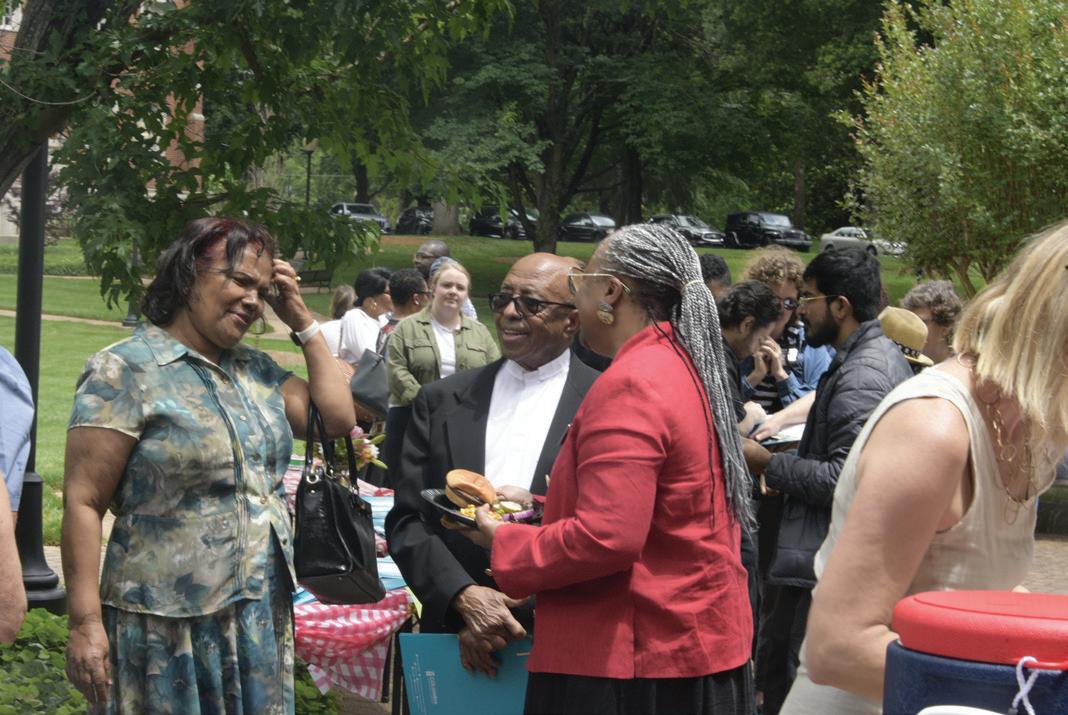
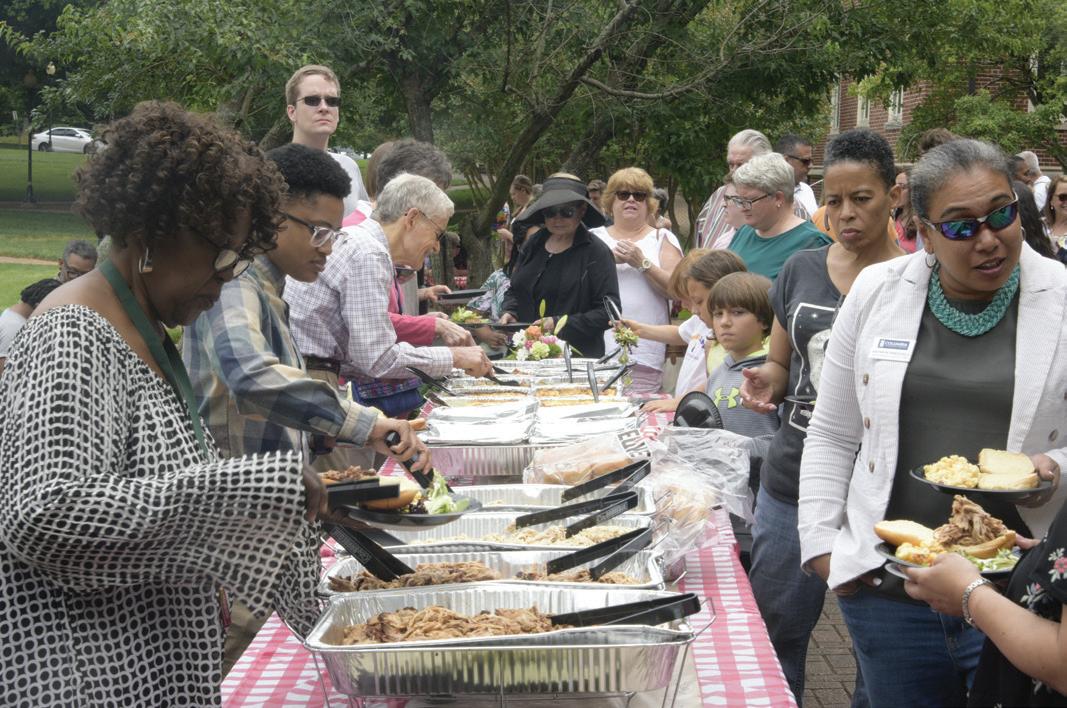
VANTAGE
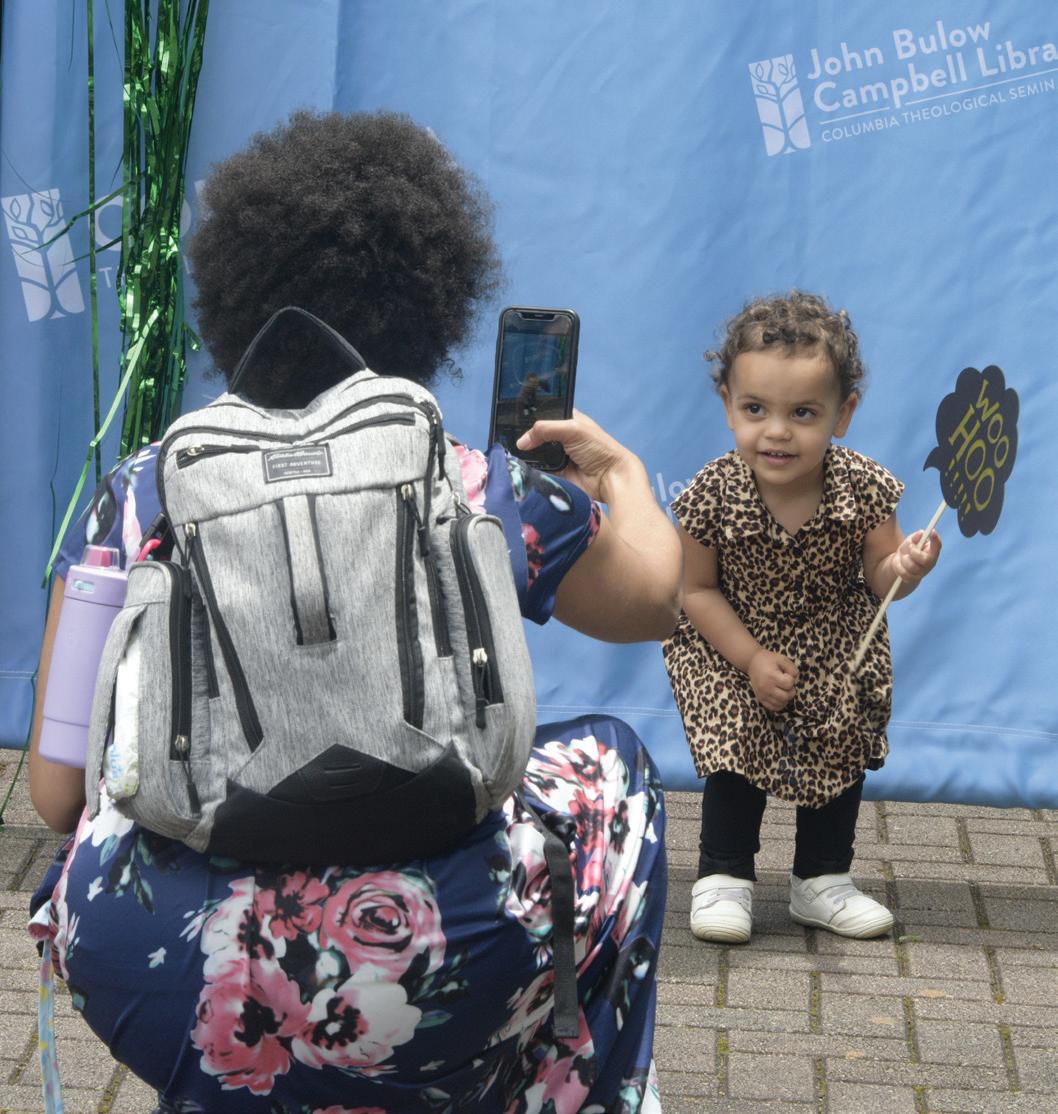

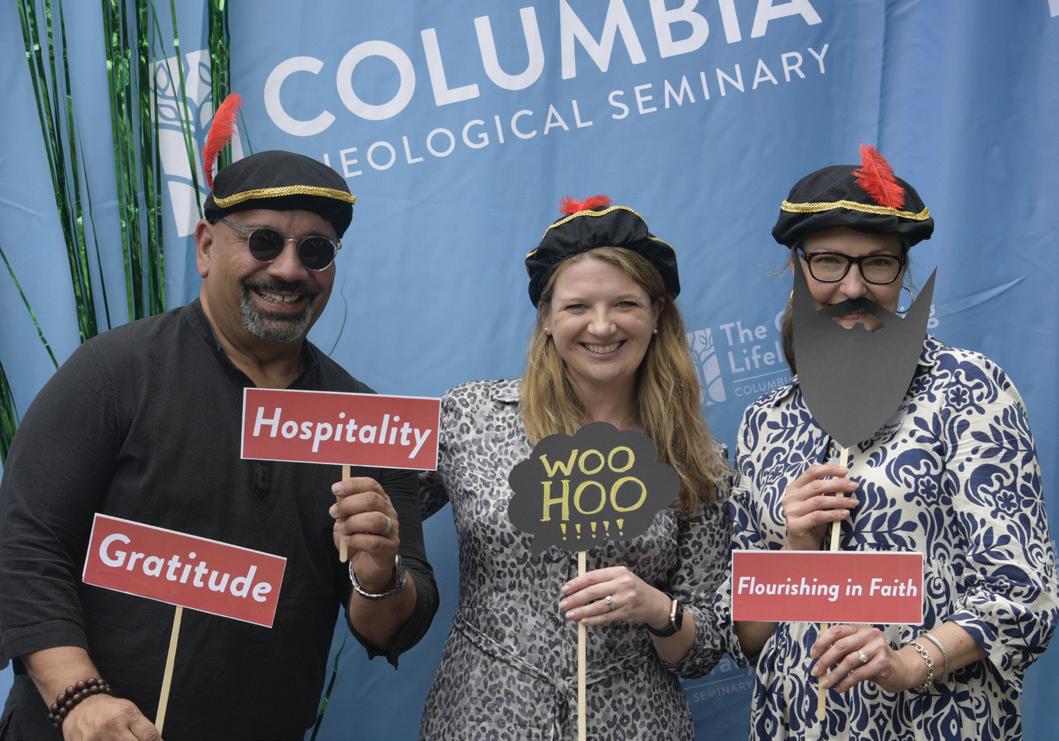


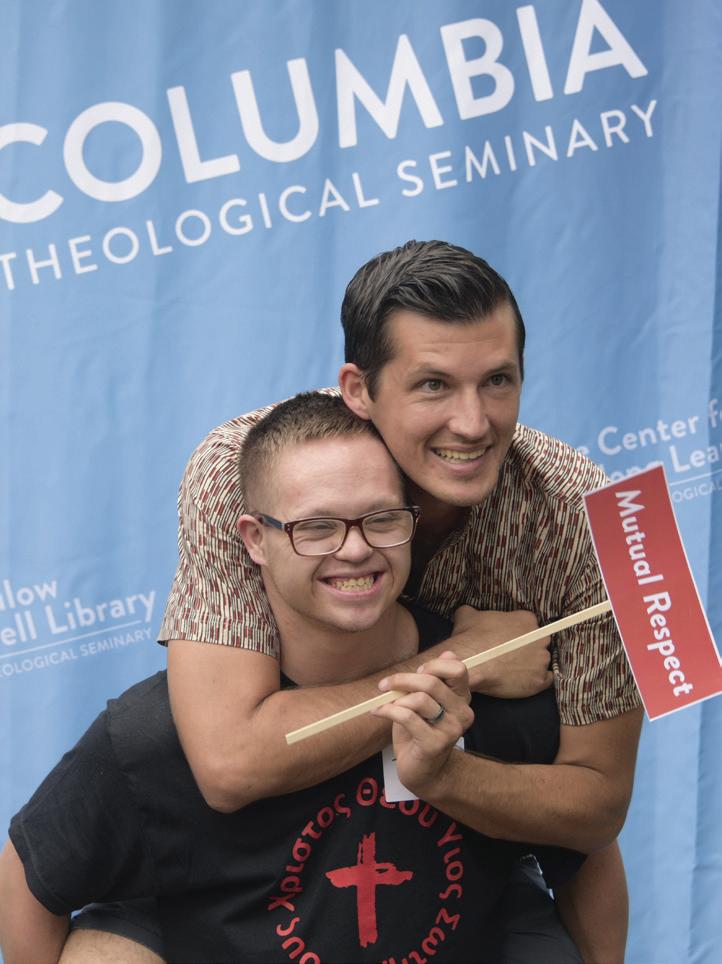
Summer 2023 33
Baccalaureate and Commencement
Columbia’s Baccalaureate and Commencement services were held on May 19 and May 20. The Baccalaureate service at Decatur Presbyterian Church was a time for reflection for the class of 2023 alongside the classes of 2020 and 2021 who had the opportunity to mark the completion of their degrees in person. Retiring professor, Dr. Marcia Riggs was the featured speaker. The Commencement service at Trinity Presbyterian Church was a joyful service full of celebration and hope.
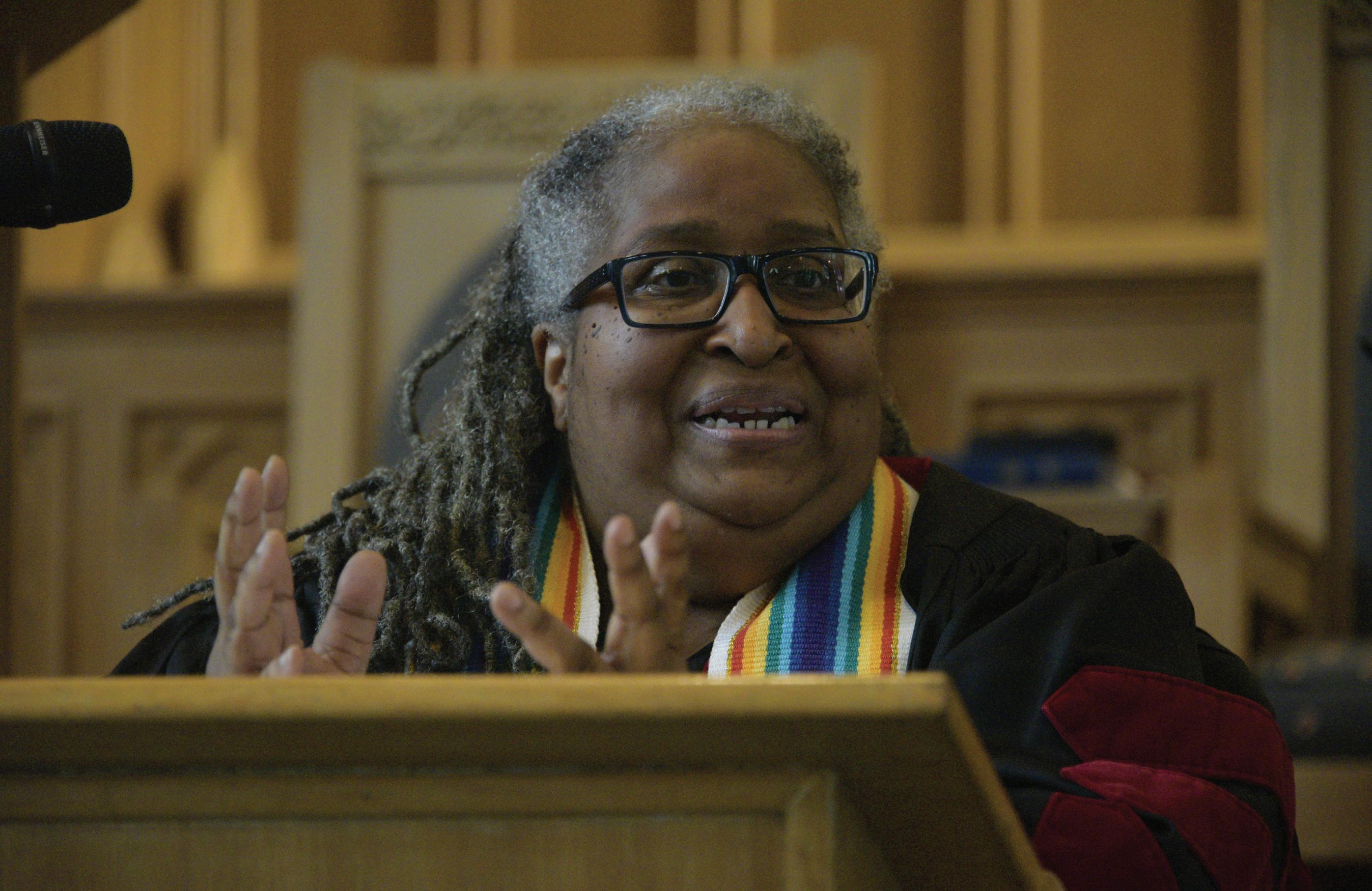

34 VANTAGE
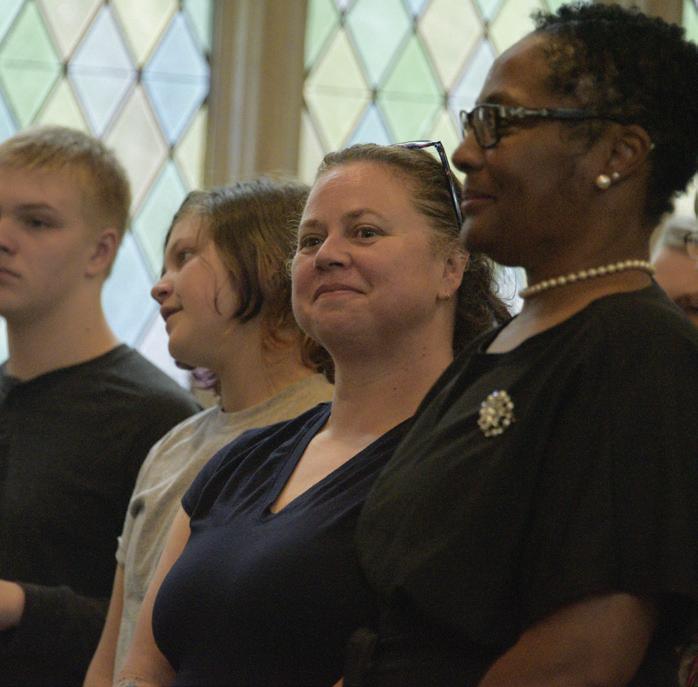
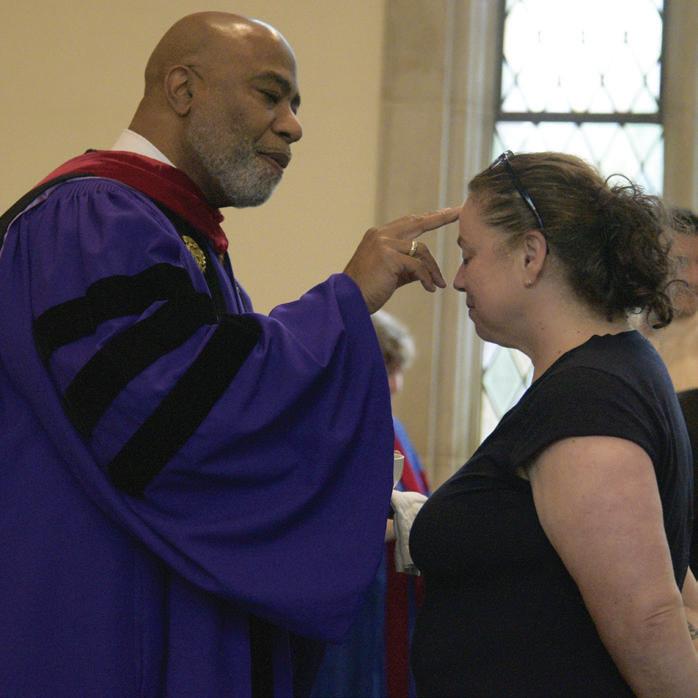
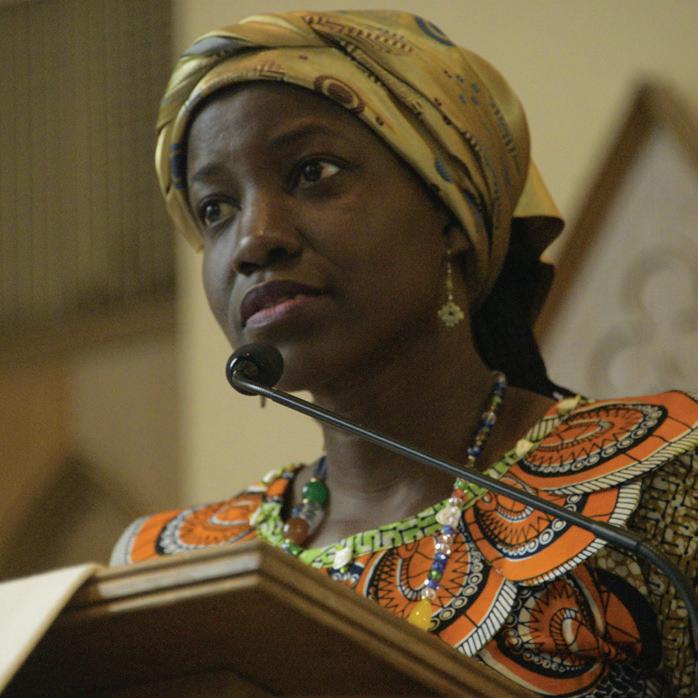
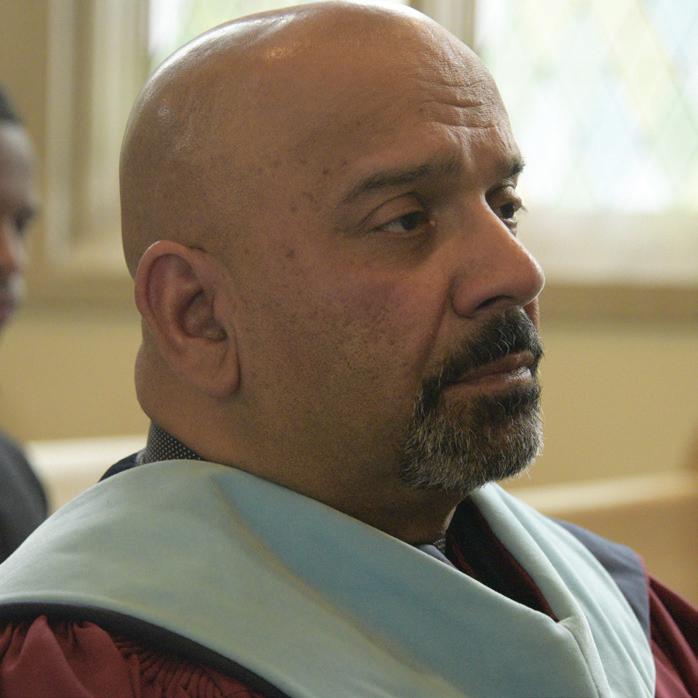
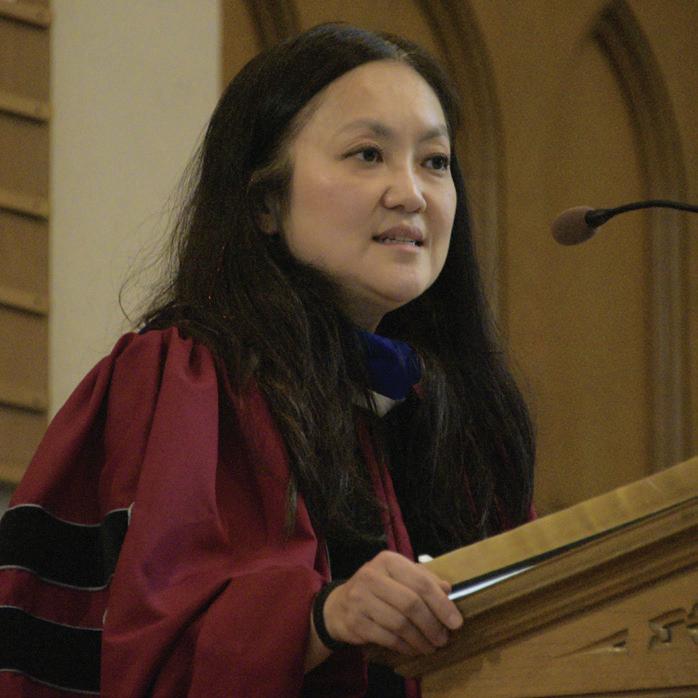
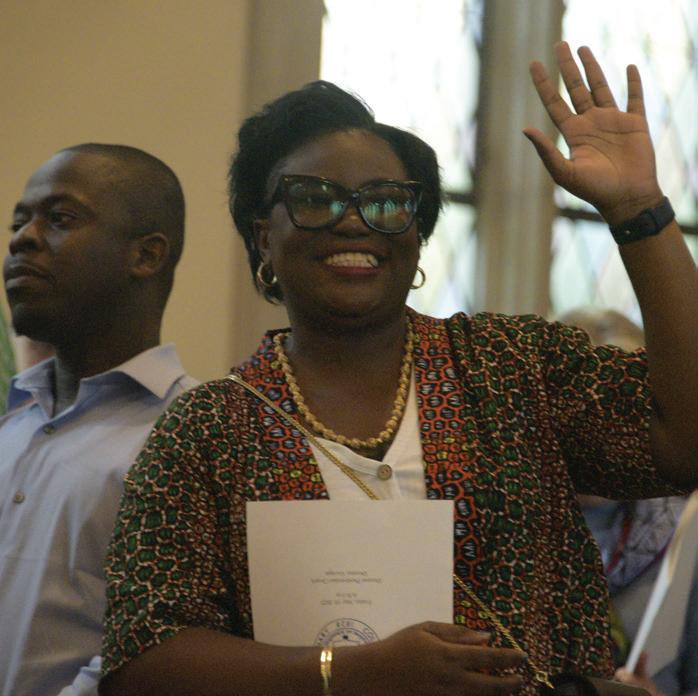
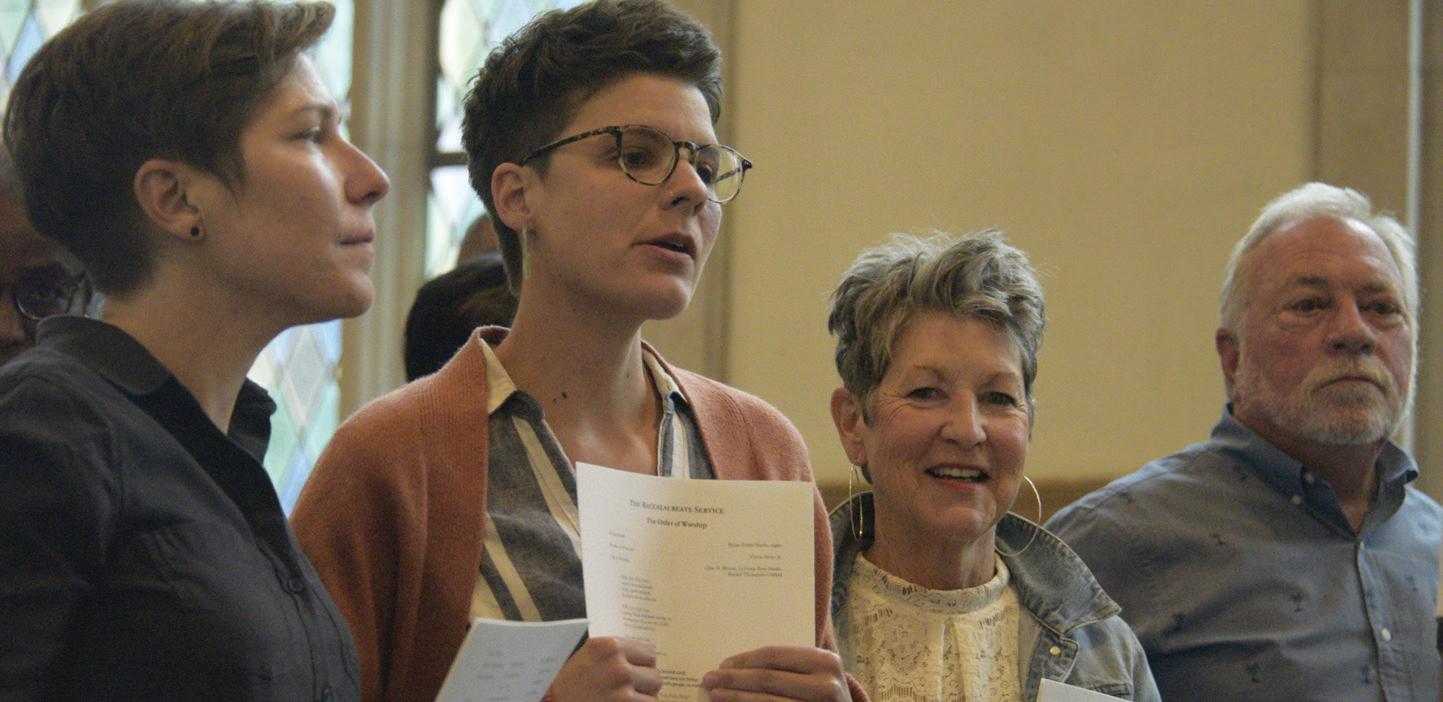
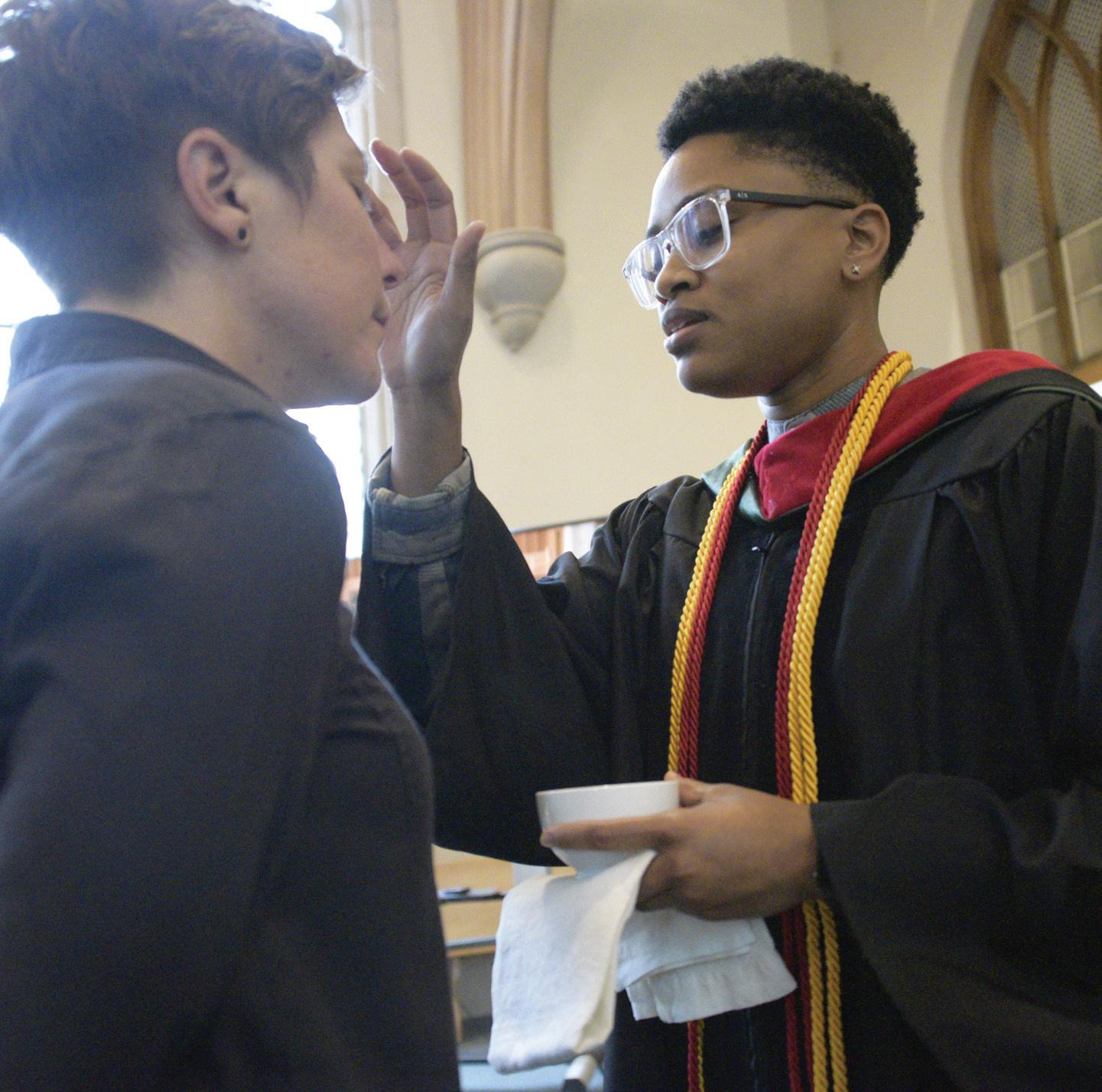
Summer 2023 35



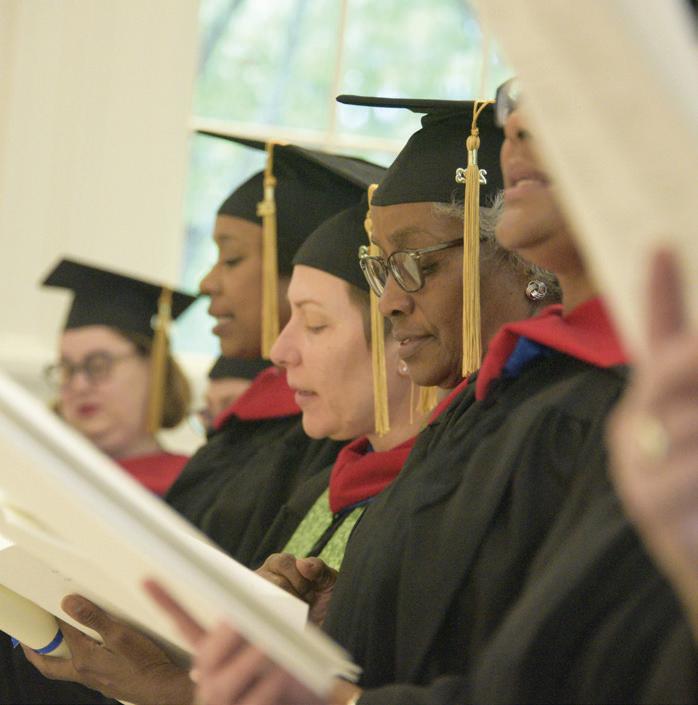
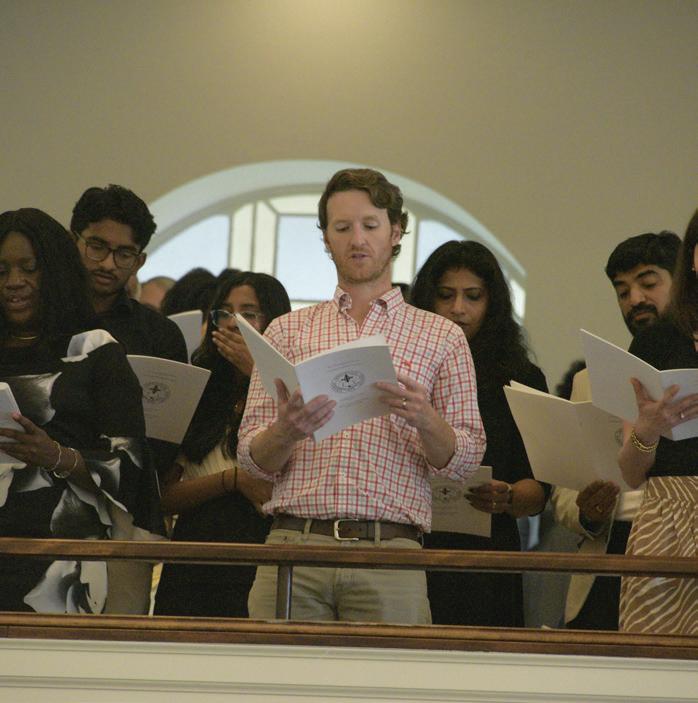

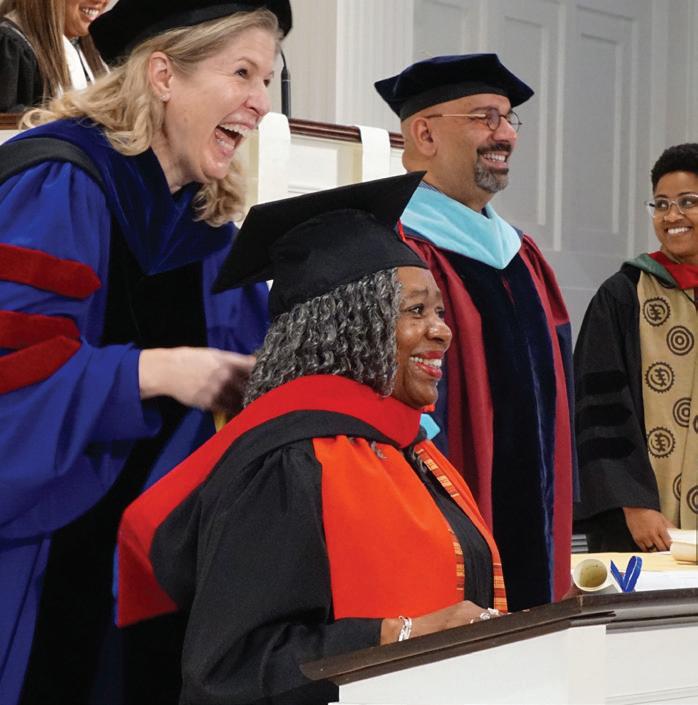
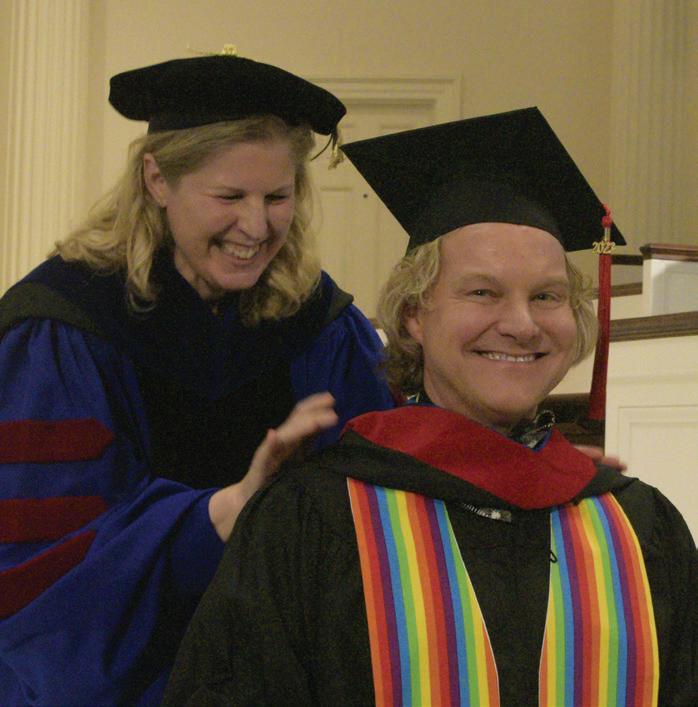
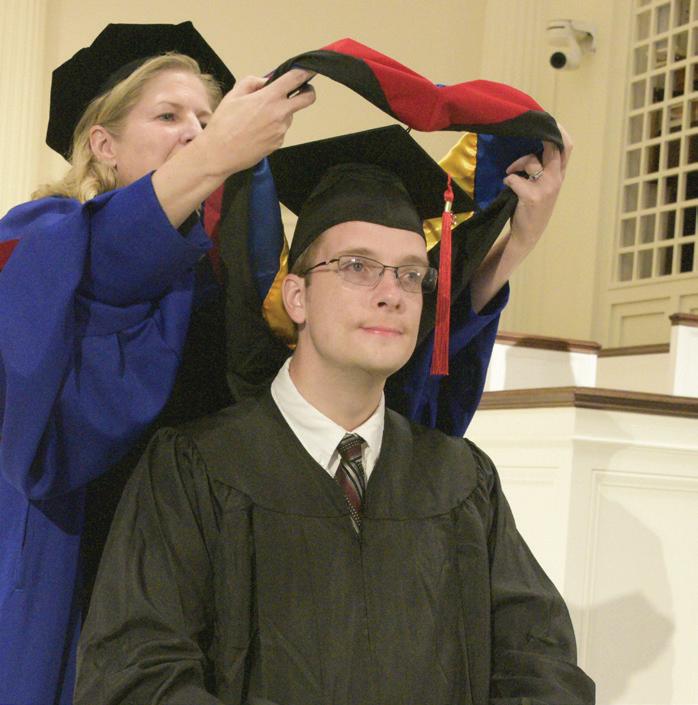
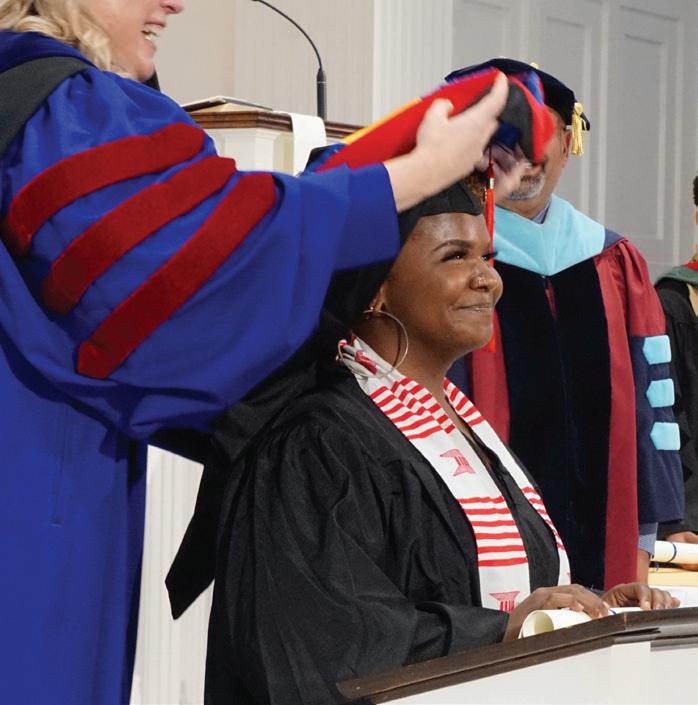
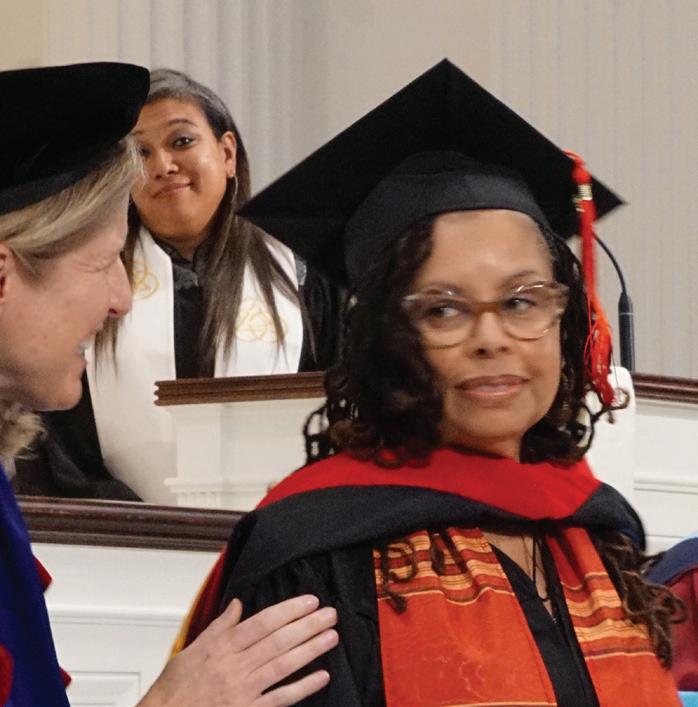
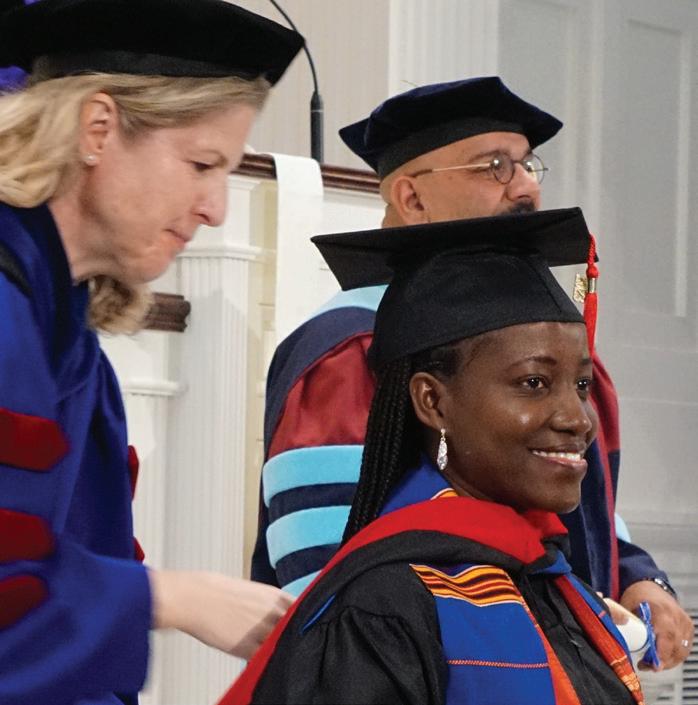
36 VANTAGE
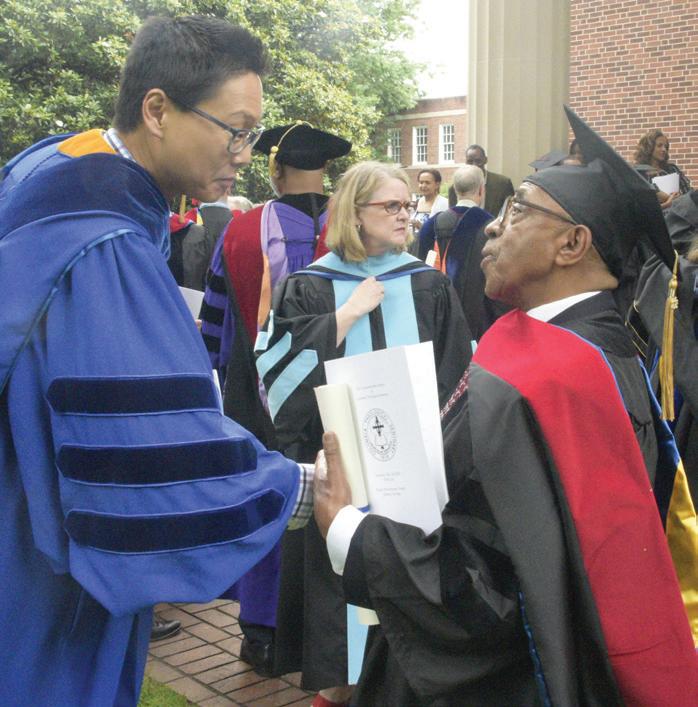
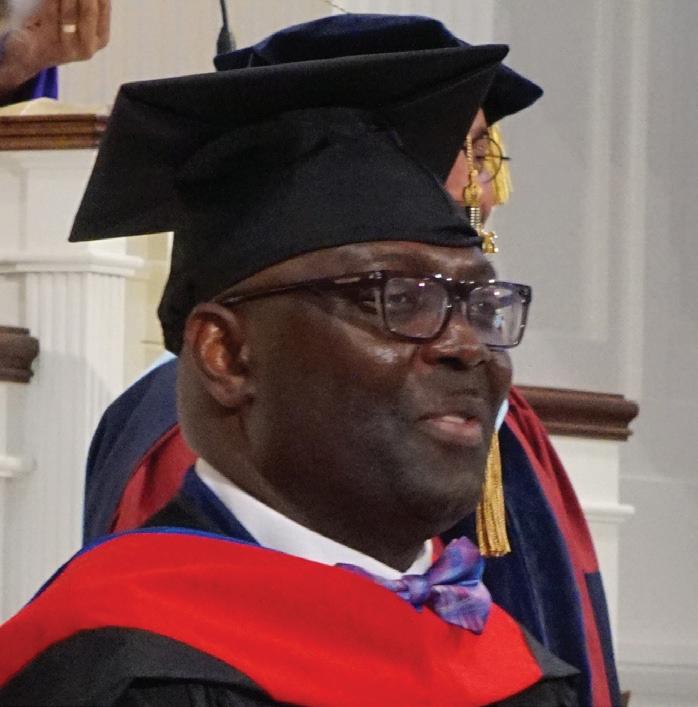
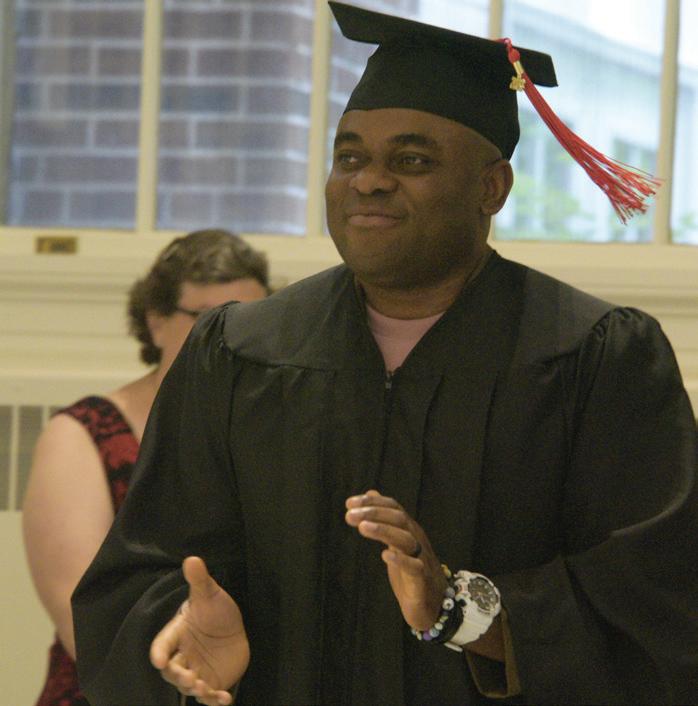
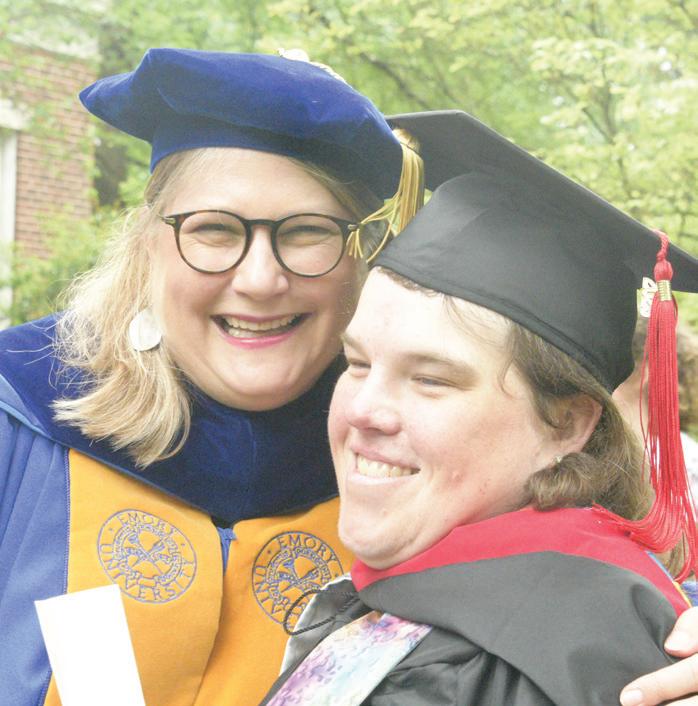
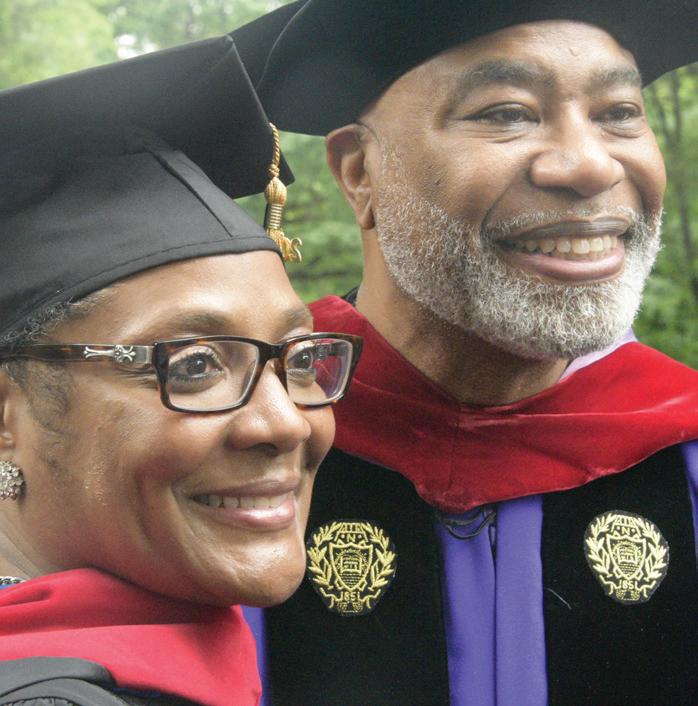
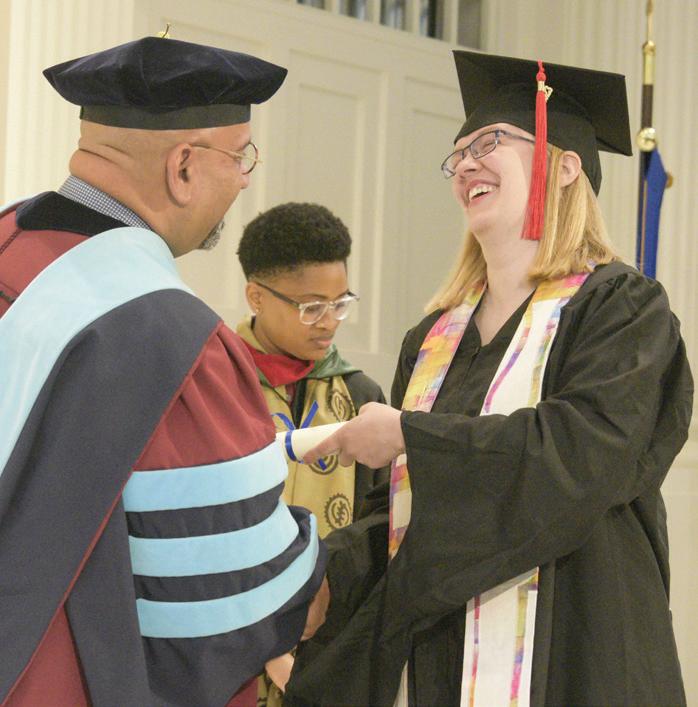
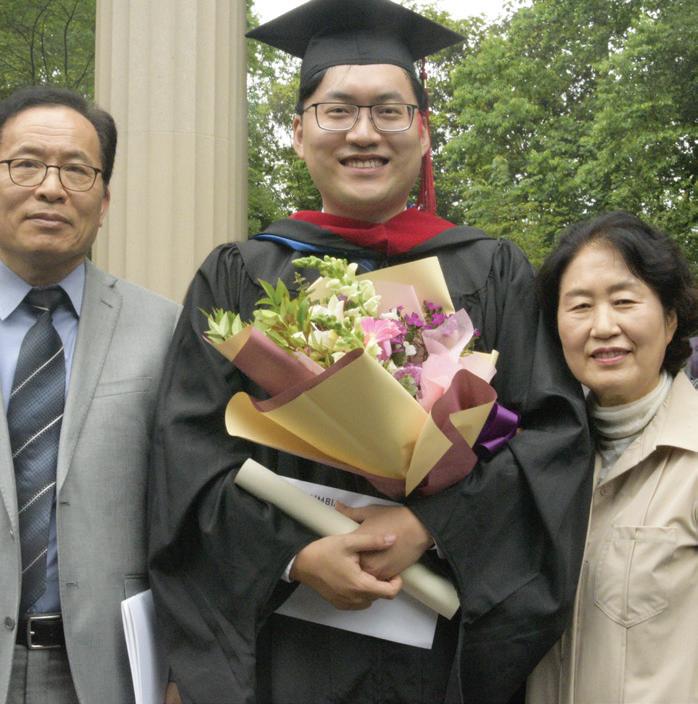
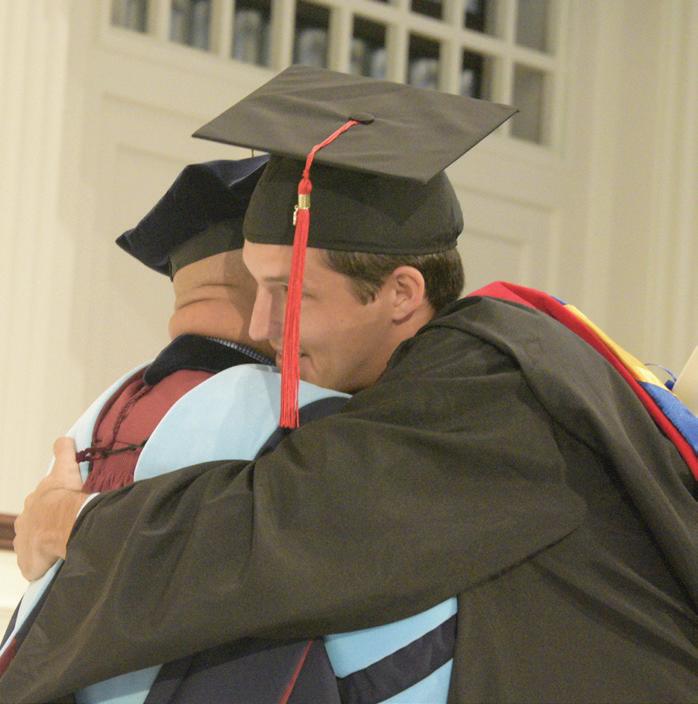
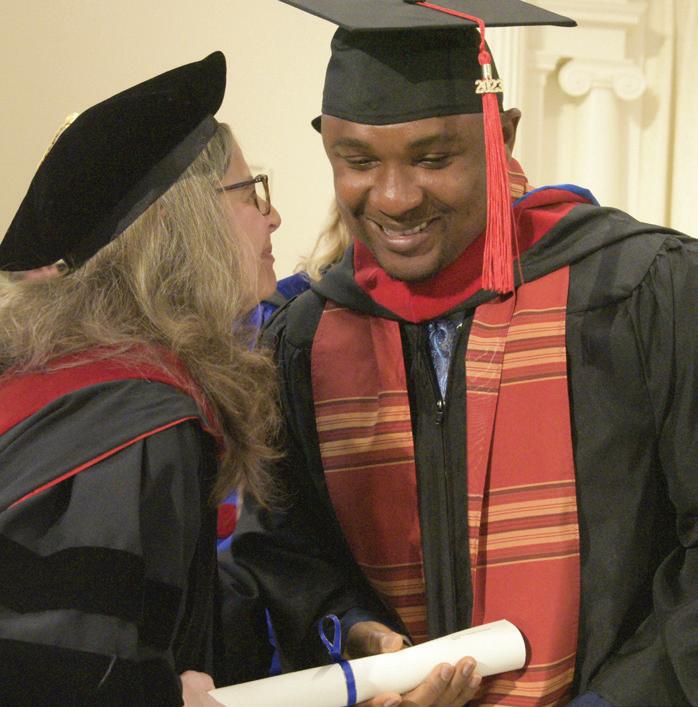
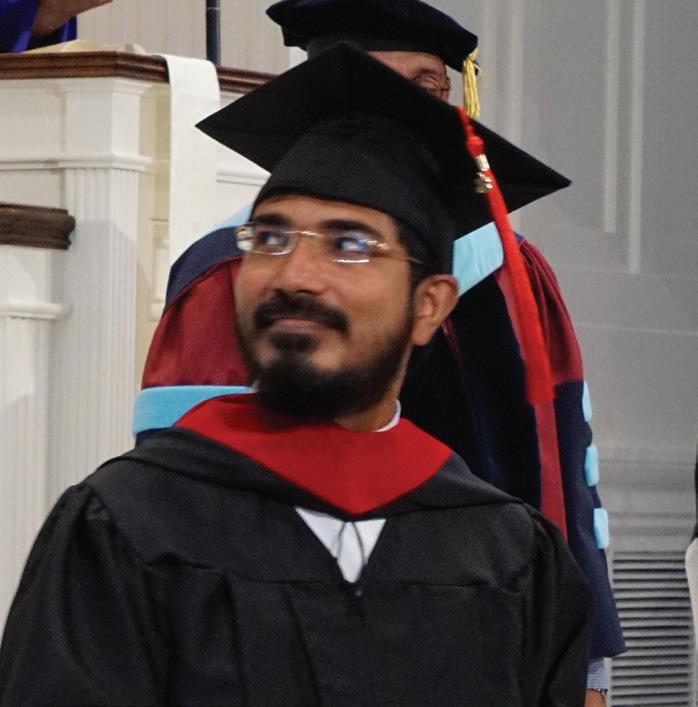

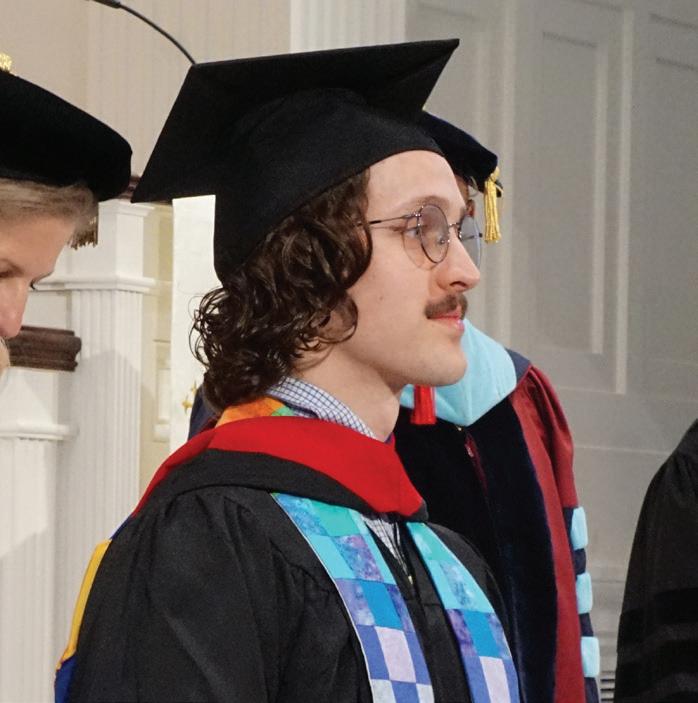
Summer 2023 37
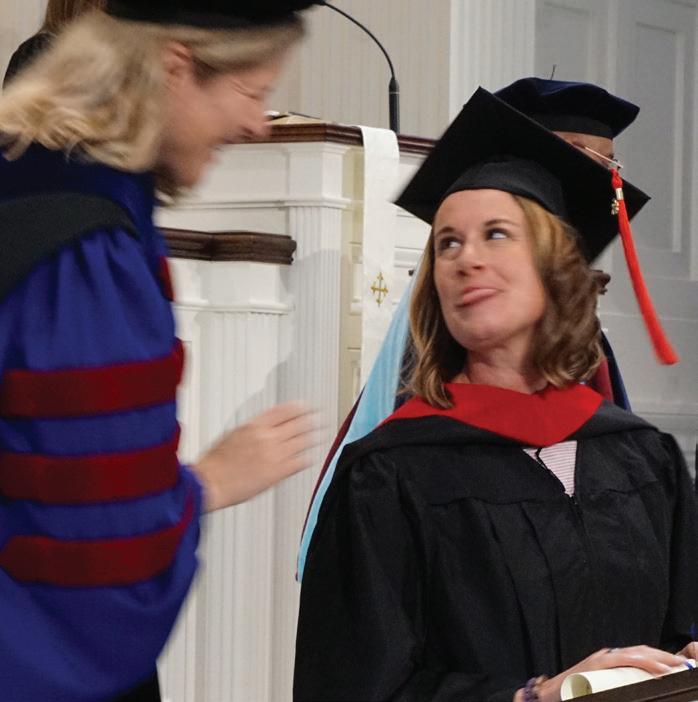
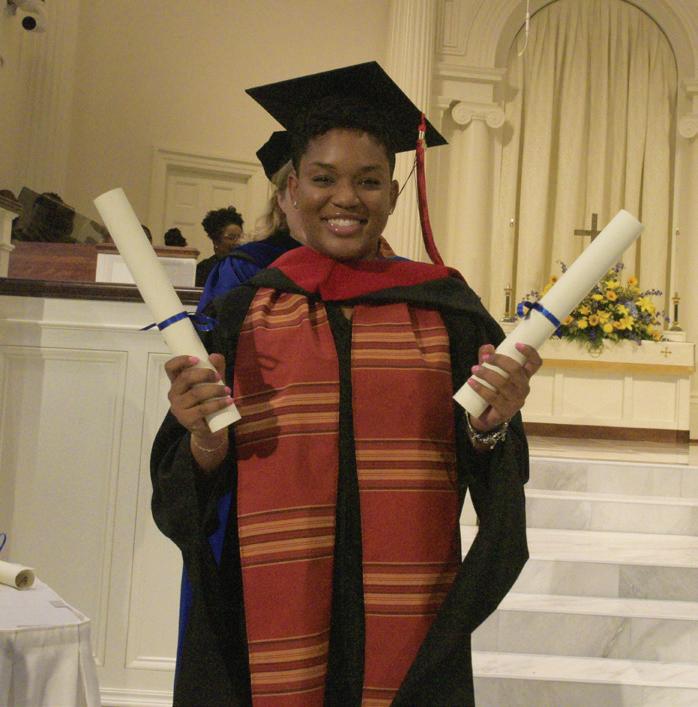
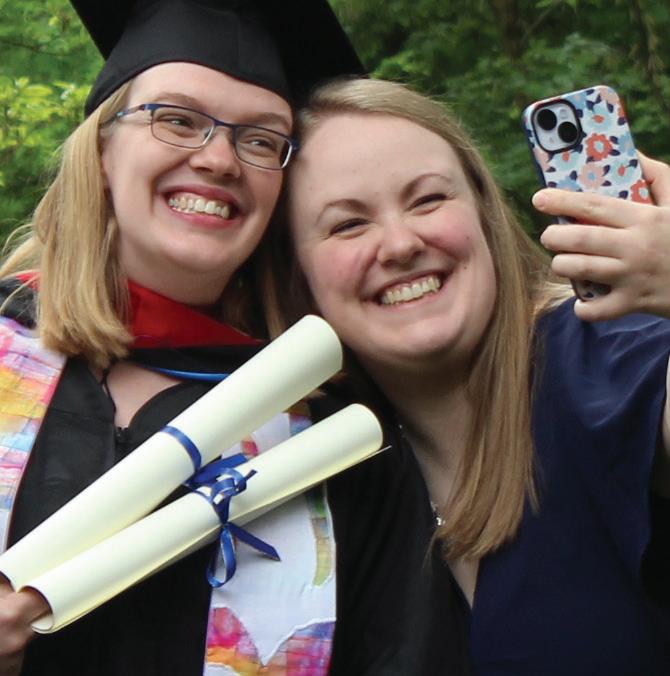
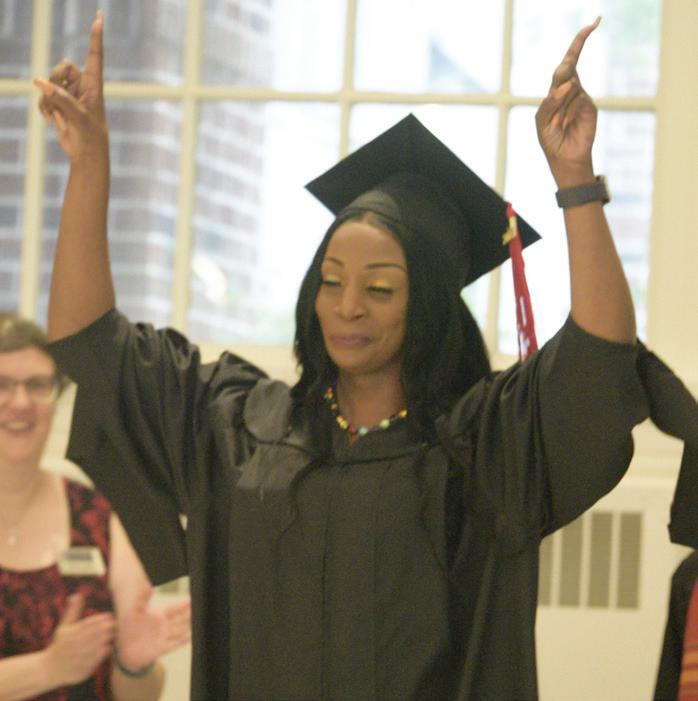
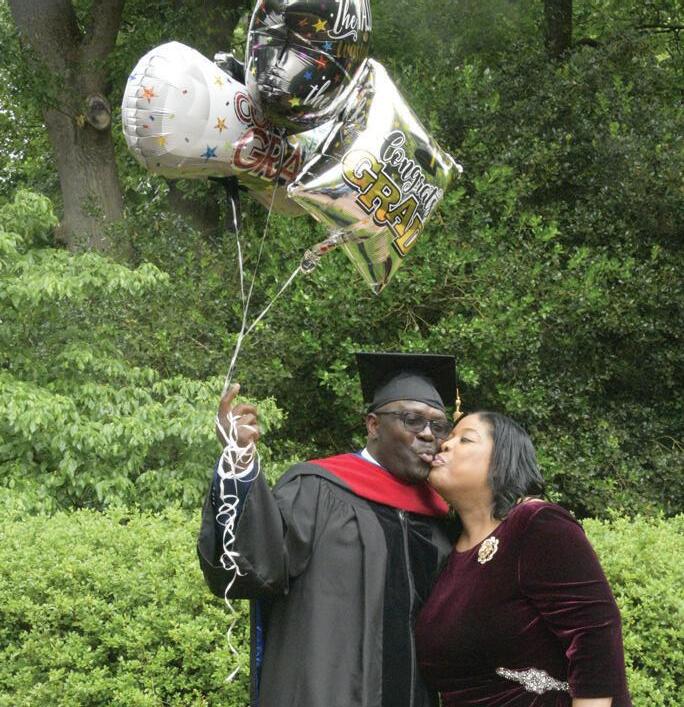
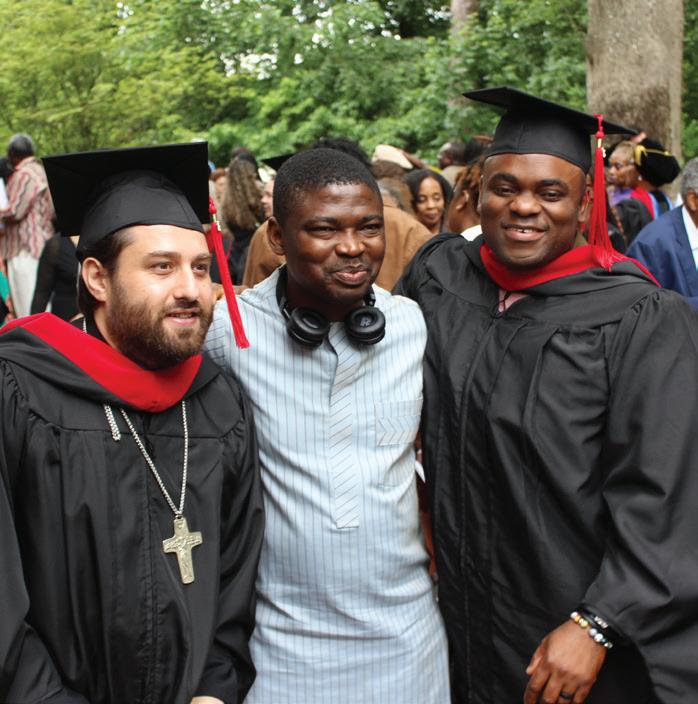
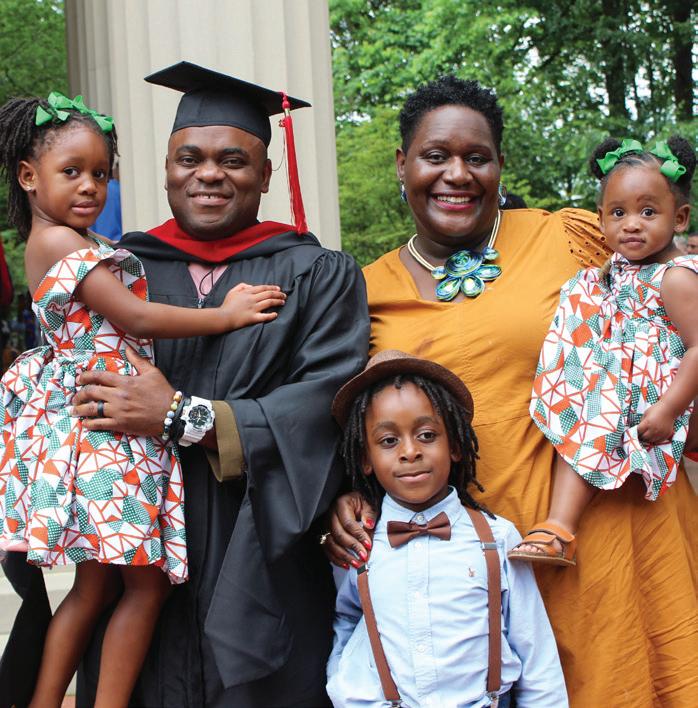
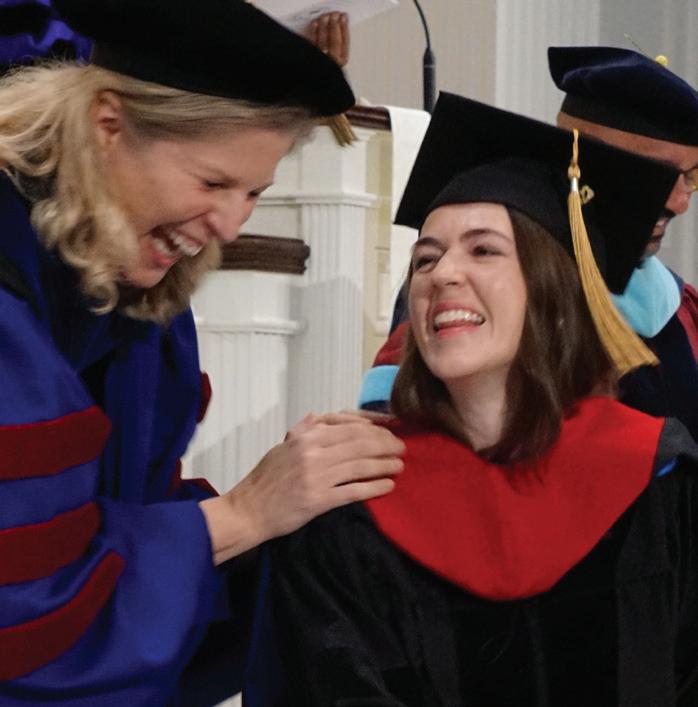

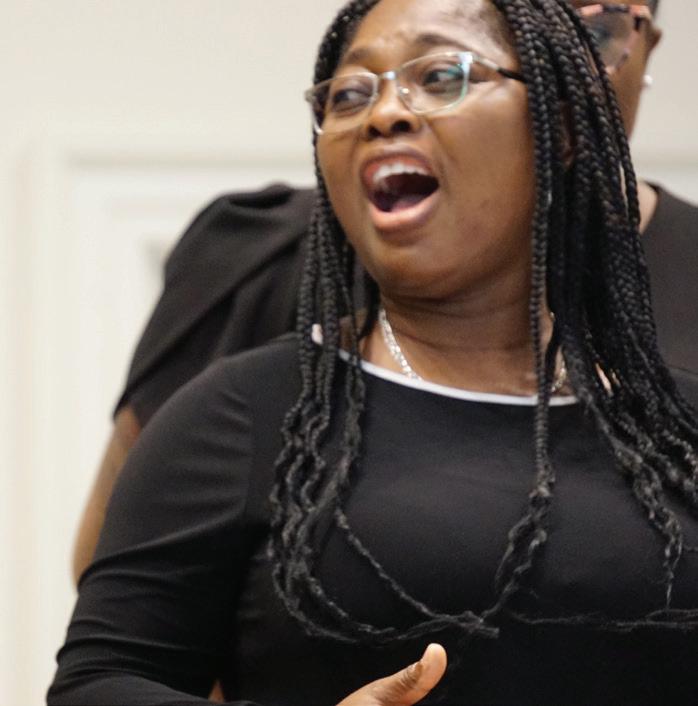
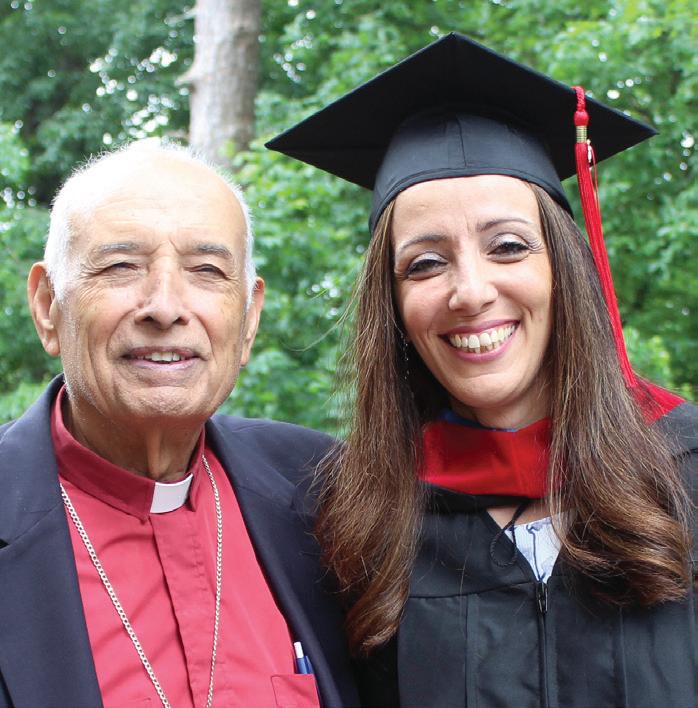
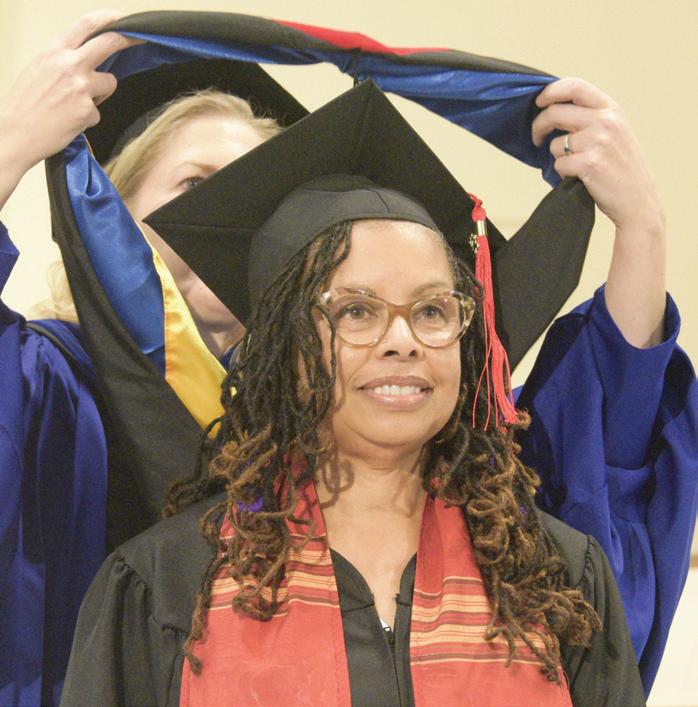
38 VANTAGE
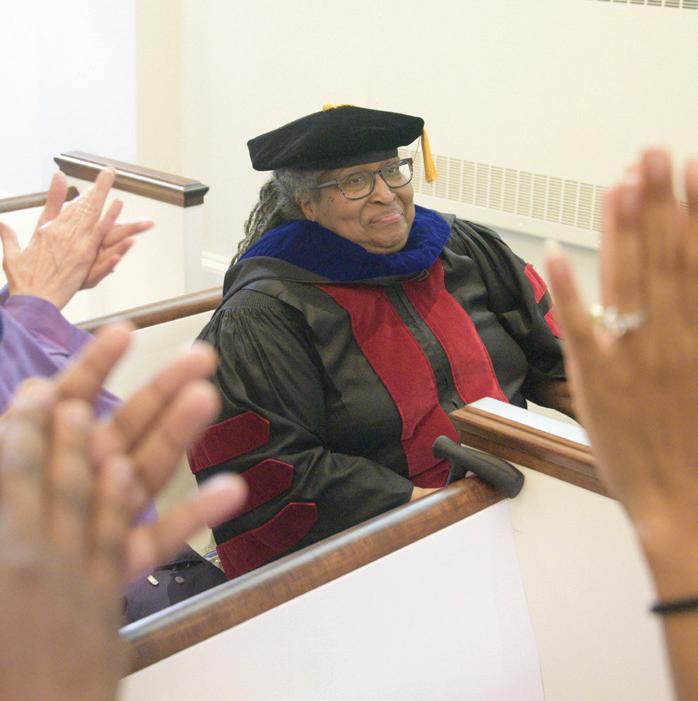
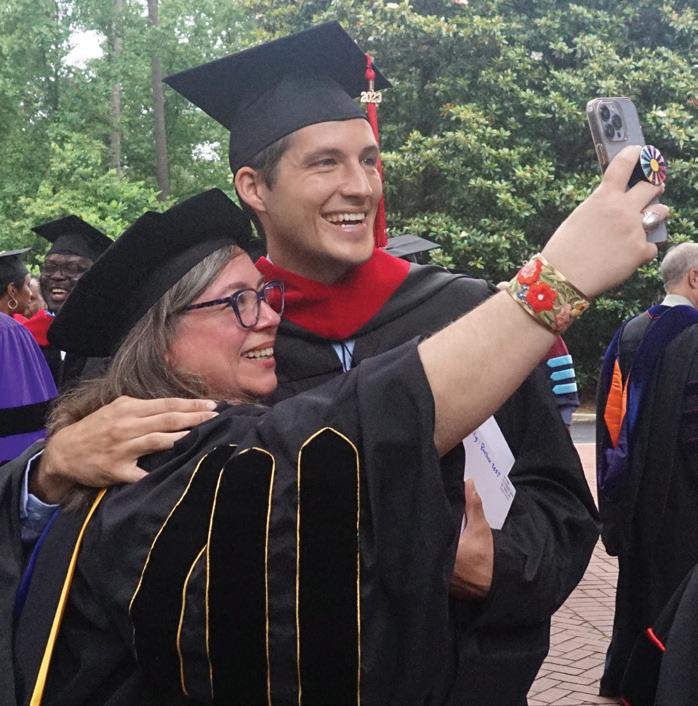
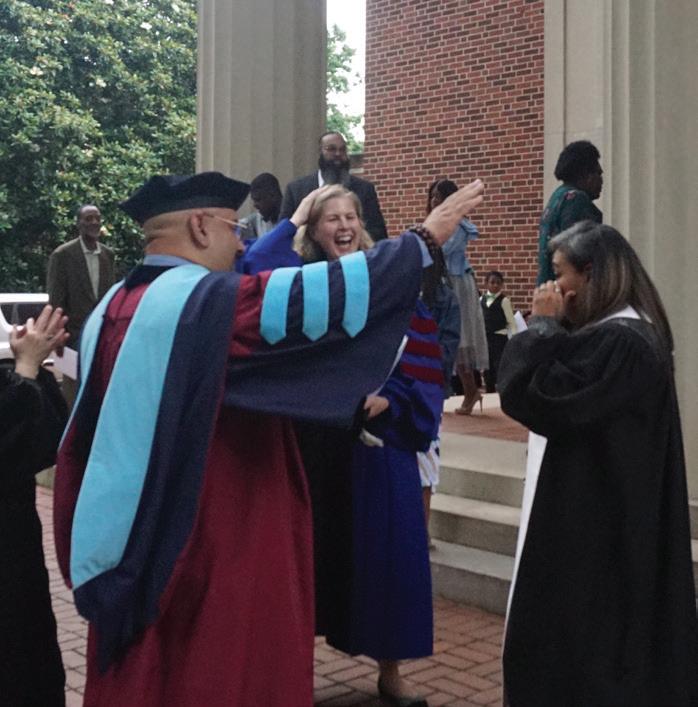
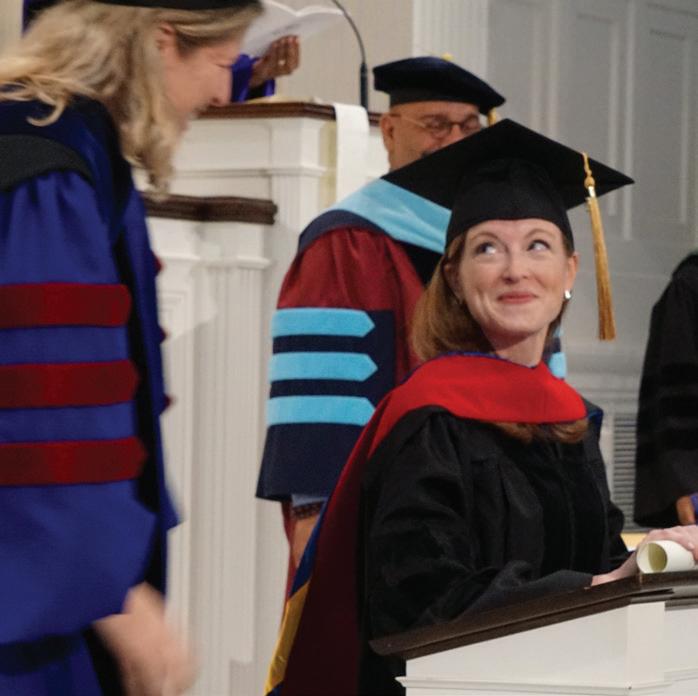

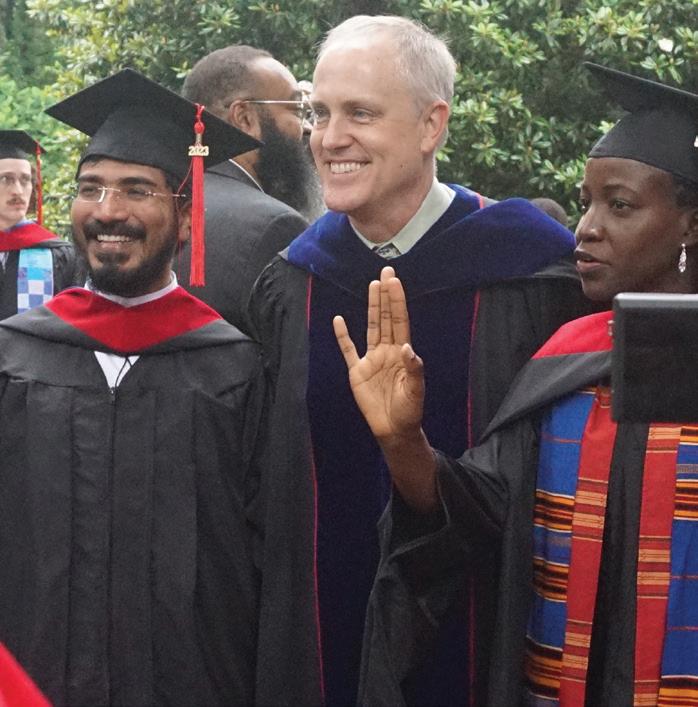
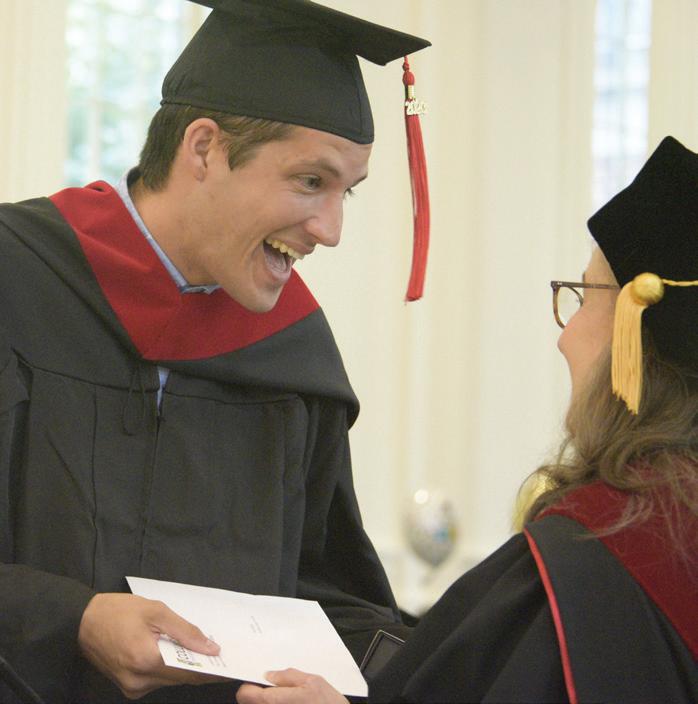

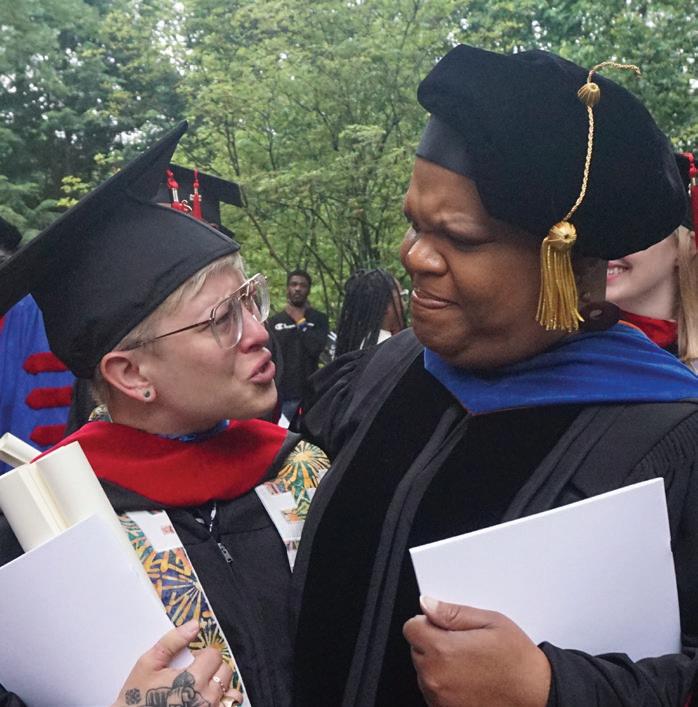
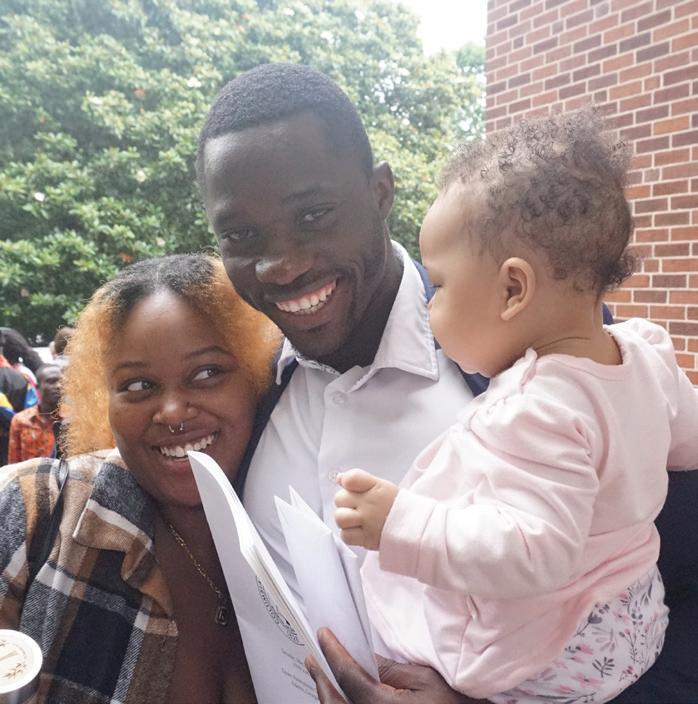

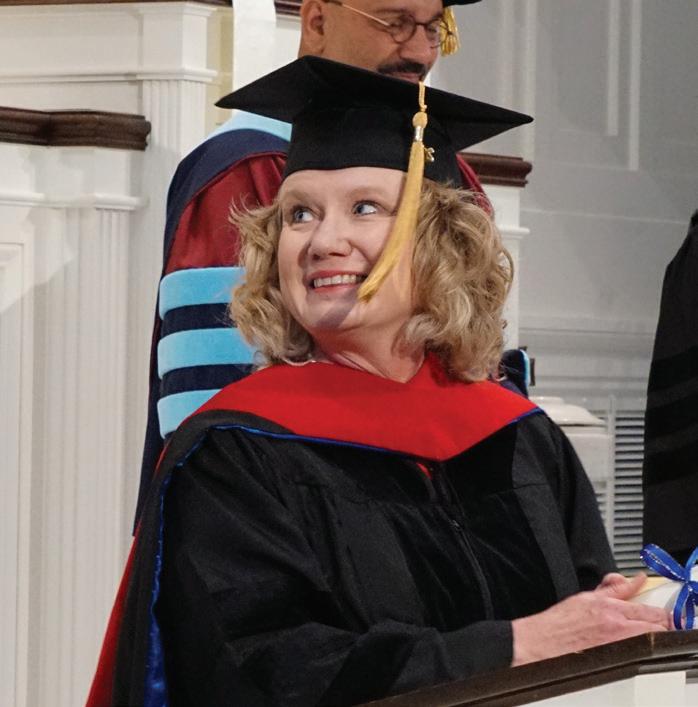
Summer 2023 39
Alum Updates by Decade
1980s
C. Gray Norsworthy MDiv ’85 retired in January 2023 after serving twelve years as the Senior Pastor of Johns Creek Presbyterian Church in Johns Creek, GA, and Gray is now Interim Pastor at Northwest Presbyterian Church, Atlanta, GA.
1990s
Greg McMinn MDiv ’93 has been called as Pastor at Presbyterian Church of the Resurrection, Conyers, GA. His first Sunday will be September 2024.
Karen Estes M.Div ’93 has been serving as Pastor at Woodforest Presbyterian Church, Houston, TX, since April 1, 2021.
Steve Lindsley MDiv ’97 released his first full-length album in over a decade. To listen to “Back Again” on Spotify, Apple Music, and other streaming services, go to linktr.ee/ stevelindsley.
Jenn McGee M.Div ’98 is Case Manager Social Worker/Chaplain at Genesis House, Melbourne, FL, (where she grew up) which is a temporary homeless shelter for women and children.
Shannon Johnson Kershner MDiv ’99 has been called as Senior Pastor/ Head of Staff at Central Presbyterian Church of Atlanta. Her previous call was Senior Pastor/Head of Staff at Fourth Presbyterian Church in Chicago, IL.
2000s
Sarah Erickson MDiv ’03 is retiring August 31, 2023 from her position as Director of Lifelong Learning at Columbia Seminary’s Center for
Lifelong Learning. That date will be the 20th anniversary of her ordination to Ministry of Word and Sacrament and 23 years after arriving as an MDiv student. Under her leadership CTS Center for Lifelong Learning has become a recognized leader in continuing education for clergy, religious leaders, and laypersons. She looks forward to “freedom of choice time,” during which she will spend with her family, traveling, coaching, and doing the things she currently enjoys.
Clayton Rascoe MDiv ’03 is Executive Director, at Massanetta Springs Camp and Conference Center in Harrisonburg, VA. Previously Clayton served the Presbytery of Coastal Carolina as their Associate for Outdoor Ministries (2003-2007). Clayton has also been an active member of the Presbyterian Church Camp and Conference Association since 2003, and served on its board from 2013-2015.
Matthew Schlageter MDiv ’05 has served as Staff Chaplain at Children’s National Hospital, Washington DC, since 2016.
Jim Simpson DMin ’05 has been called as Bridge Pastor for Johns Creek Presbyterian Church, in Johns Creek, GA.
Christopher Erde M.Div ’07 now serves at First Presbyterian Church, Aiken, SC as Pastor/Head of Staff since March 2023. He previously served as Pastor of First Presbyterian Church in Quincy, FL, for 16 years.
Andy King MDiv ’08 graduated from Emory University with a Master of Science in Human Genetics and Genetic Counseling, May 2023.
Matt Bussell M.Div ’09 graduated with a PhD from Claremont Graduate University in May 2022, after completing his dissertation entitled “Still Reforming: The Need for a New Confession in the PC(USA)”. On June 11, Matt begins a new call as the Associate Pastor for Mission and Outreach at First Presbyterian Church, Greensboro, NC. He previously served as Pastor of First Presbyterian Church, Jonesboro, AR.
2010s
Cheryl Barnes MDiv ’10 has been named PCUSA’s World Missions Africa Area Coordinator, in Mala wi, Zambia, and Zimbabwe. Cheryl will serve as the education facilitator for the Church of Central Africa Presbyterian Church (CCAP). In this role Barnes will collaborate with the CCAP Education Department and the education departments of the five CCAP Synods to improve the quality of primary school education in the many schools under the CCAP umbrella.
Tyler Brock MDiv ’10 has been called as Pastor of Lloyd Presbyterian Church in LaGrange, GA. His previous call was Associate Pastor for Youth and Digital Evangelism at Newnan Presbyterian Church in Newnan, GA.
Katie Archibald-Woodward MDiv ’12 was ordained in May, and has been called to serve as Resident Assistant at Villa International, Atlanta, GA.
Jeanne Simpson MDiv ’14 has been called to serve as Pastor of Philadelphia Presbyterian Church in Forest Park, GA. She previously served as Associate Pastor at Eastminster Presbyterian Church, Stone Mountain, GA.
40 VANTAGE
Anna Owens MDiv ’16 is serving as Site Pastor of Village Presbyterian Church, Overland Park, Antioch, since April 2023. Anna most recently served as the Associate Pastor for Spiritual Growth at Westminster Presbyterian Church in Dayton, OH.
George Tatro MDiv ’16 is Interim Pastor at Kelley Presbyterian Church in McDonough, GA. His previous call was as Bridge Pastor for McDonough Presbyterian Church in McDonough, GA.
Jeff Brown DMin ’17 is the Lead Minister at Woodmont Hills Church, Jackson, TN, since August 2017.
Michael Sanchez MDiv ’18 has been called as Associate Pastor for Youth at St. Luke’s Presbyterian Church, Dunwoody, GA. Previously, Michael served as Associate Pastor at Fort Hill Presbyterian Church in Clemson, SC.
Michael Sarvis MDiv ’18 has been called as Pastor at Graham Presbyterian Church, Graham NC. He previously served as Director of Congregational Life at Good Shepherd Presbyterian Church in Lilburn, GA, for 8 years.
AJ Shortley MDiv ’18 is Director of Youth, Young Adult & Community Outreach Northwest Presbyterian Church in Atlanta, GA. Previously, he served churches in the Atlanta area, as well as served as chaplain for Northside Hospital, Grady Memorial Hospital, and Capstone LLC.
Rachel Breyer MDiv ’19 has received a fellowship as Assistant Chief Missions Officer for Holy Cross Hospital, Silver Spring, MD. Previously, Rachel served as Chaplain for the Presbyterian Homes of Georgia, in Decatur, GA.
2020s
Lucas Jones MDiv ’20 is Program Director at Camp Illahee in Brevard, NC, where his wife, Gardner serves as Associate Director. Lucas and Gardner have two sons, Jasper and Brooks. Lucas previously served as Associate Pastor of Downtown Church, Columbia, SC.
Alice Whitson MDiv ’21 has been called as Director of Media Ministry at Village Presbyterian Church, Prairie Village, KS.
John McCrosky MDiv ’22 has been called as Interim Minister at Monticello Presbyterian Church, in Monticello, GA.
Candace Rowell MDiv ’22 is Pastor of Faith Formation at Virginia Highland Church, Atlanta, GA.
In Memoriam
Summer 2023 41
John Nottingham Somerville • 5/2023 MDiv 1965 Thomas D. Walker • 10/2022 ...................................... BD 1953 Stephen A. Bacon • 11/2022 ...................................... BD 1961 George C. Kaulbach • 1/2023 BD 1964 Janice L. Blissit • 9/2022 ....................................... MDiv 1986 Mattie E. Hart • 4/2023 ........................................ MDiv 1970 Franklin G. Colladay • 10/2022 MDiv 1978 Robert T. Henderson • 12/2022 .................................... BD 1954 Glenn W. Small • 10/2022 ........................................ BD 1967 James T. Richardson • 12/2022 BD 1965 Allison F. Moody • 2/2023 ...................................... MDiv 1992 John D. Wells • 2/2023 ......................................... MDiv 1996 Karen S. Miller • 12/2022 MDiv 2006
President Aloyo’s Year in Review
In his first year as President, Dr. Victor Aloyo has made getting to know Columbia and its people his first priority. Besides getting acquainted with the on-campus community at Columbia, President Aloyo spent time on the road visiting alumni and friends of Columbia across the Southeast.
“Columbia is blessed to have so many friends and supporters. I have thoroughly enjoyed meeting with, praying with, and breaking bread with them over these last 12 months,” said President Aloyo.
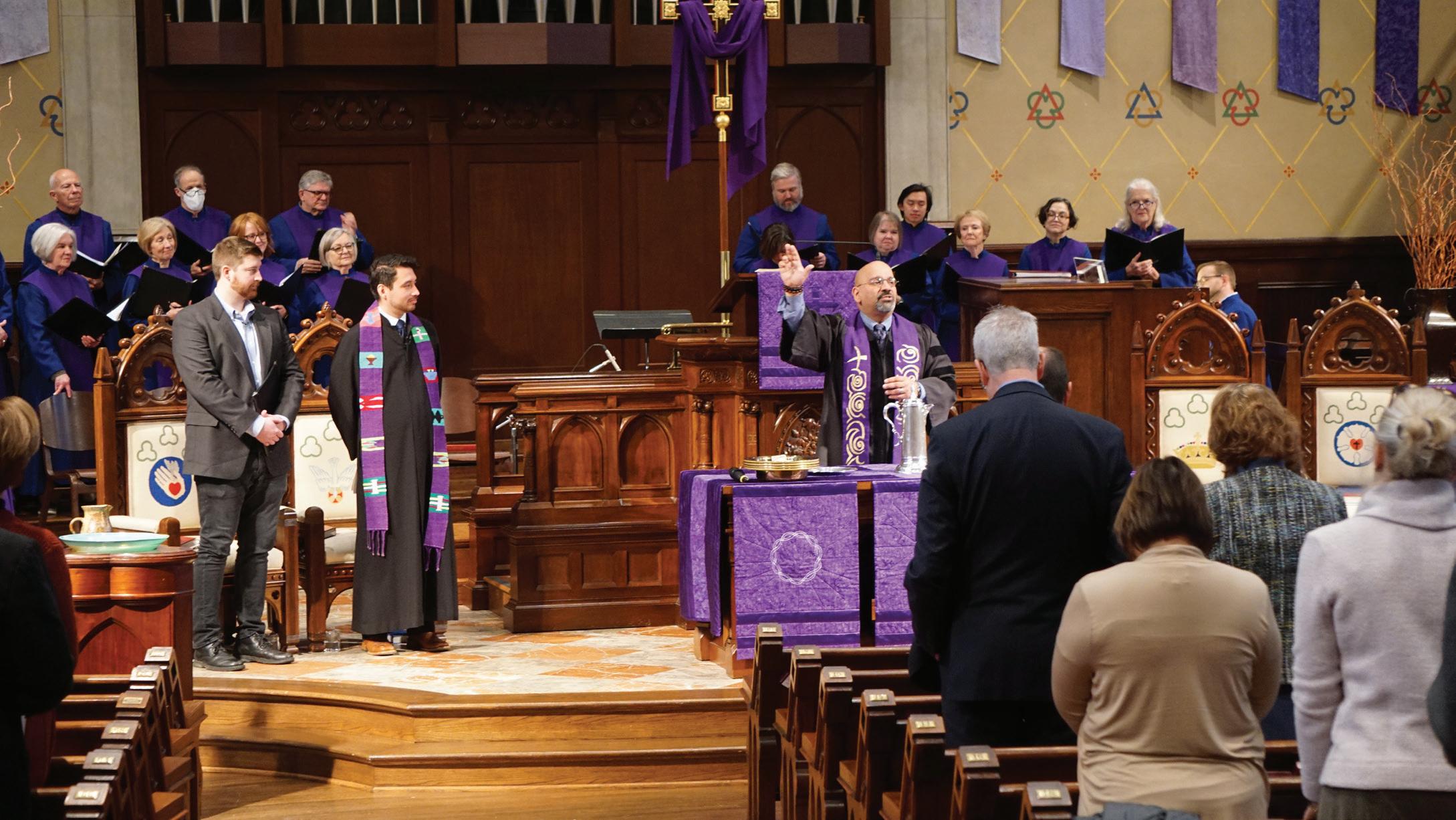
More road trips are planned, beginning in the fall of 2023. Look for President Aloyo in a location near you.
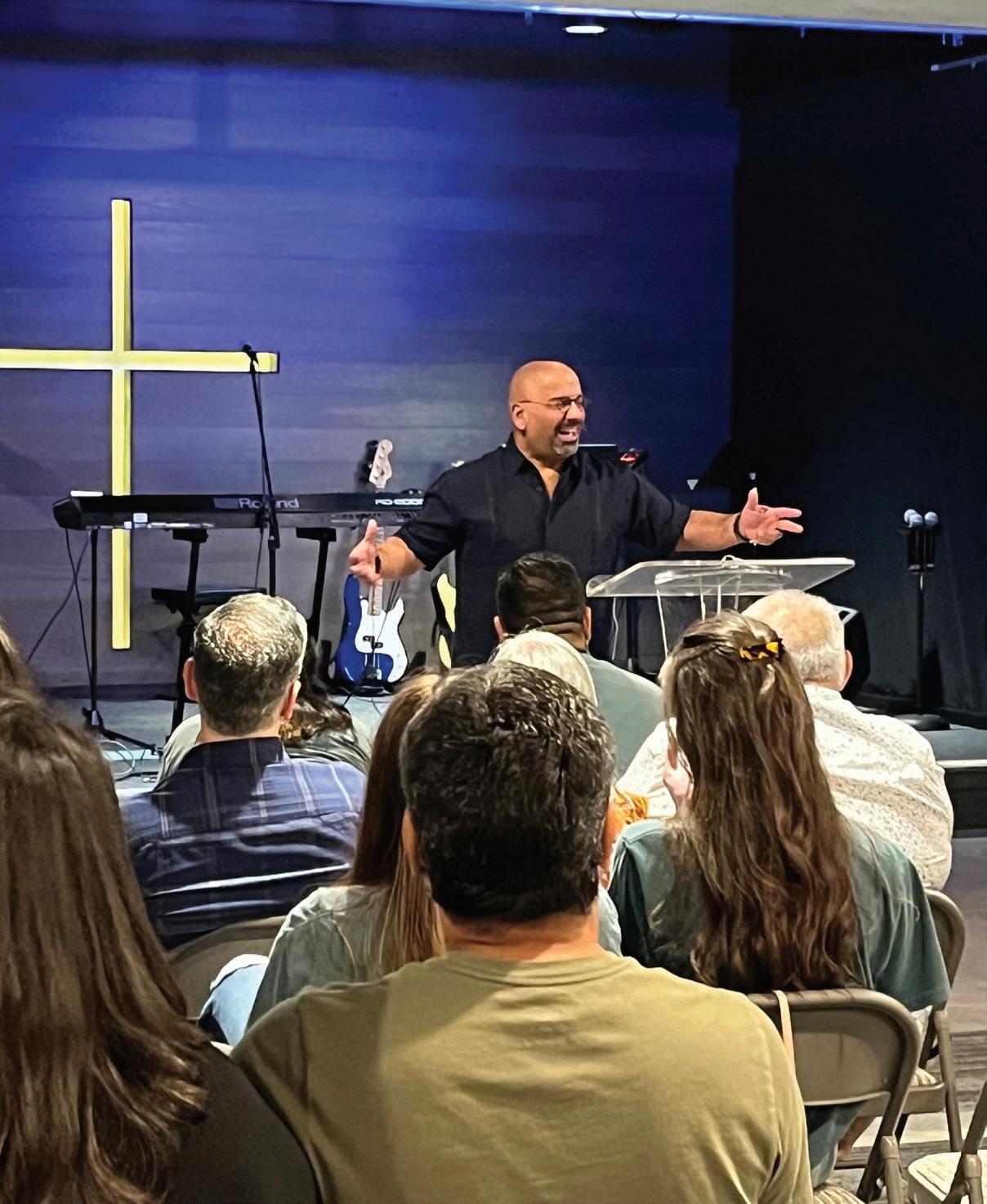
42 VANTAGE
Top: Dr. Aloyo at Church on the Way & Casa Brasil at John’s Creek Presbyterian Church, Georgia
Bottom: Dr. Aloyo at Central Presbyterian Church, Atlanta, Georgia
Final Word with Jake Myers
Accomplished scholar, gifted teacher and all-around stand-up guy (see what we did there?), Dr, Jake Myers, Wade P. Huie Chair of Homiletics, gets the light-hearted questions this issue.

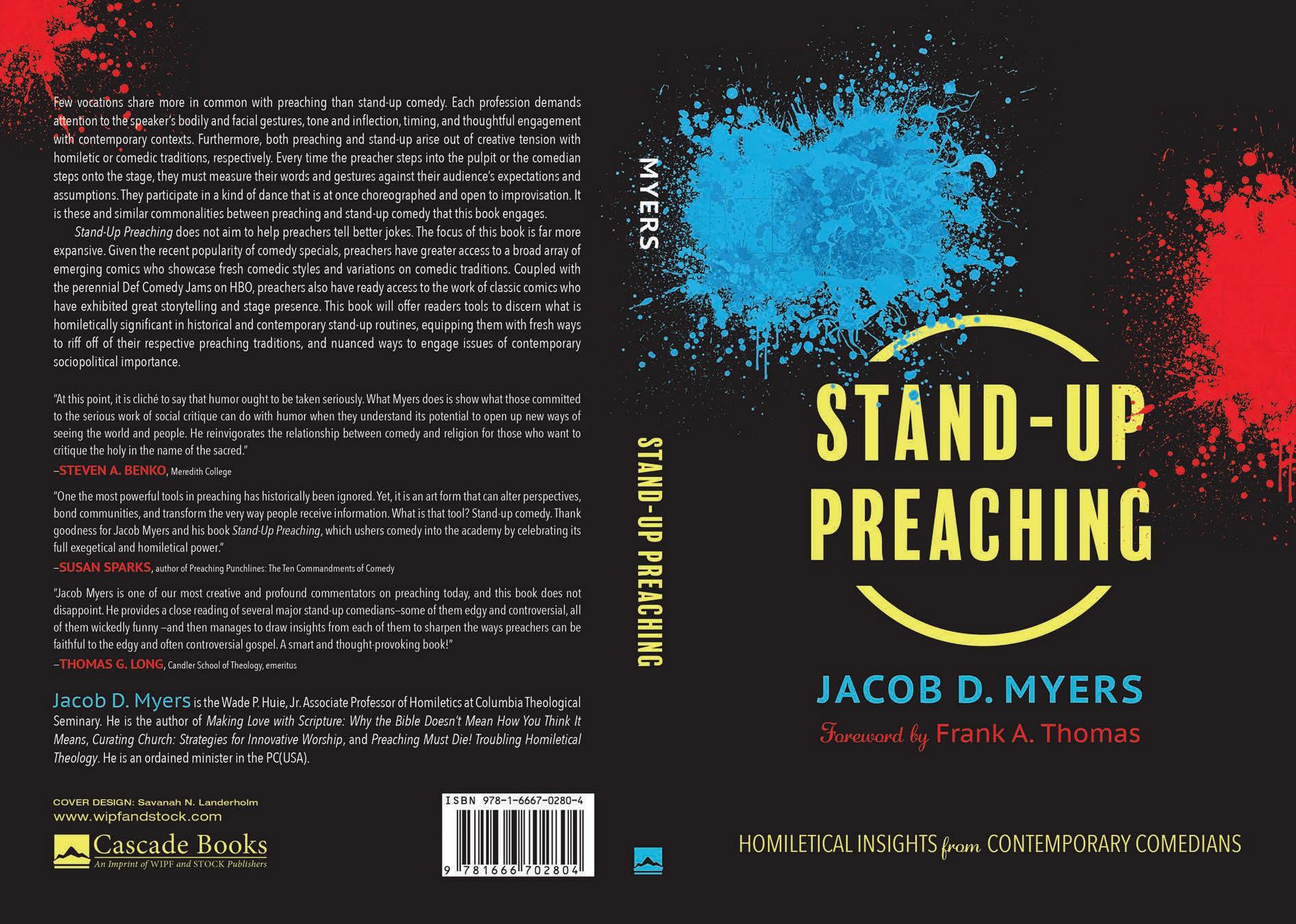
If you had to choose another job, what would your dream job be?
White water rafting or scuba guide
What are you reading these days?
Hermeneutics: Facts and Interpretation in the Age of Information by John D. Caputo, Networked Theology: Negotiating Faith in Digital Culture by Heidi Campbell and Stephen Garner, Preaching the Word: Contemporary Approaches to the Bible for the Pulpit by Karoline Lewis, and Embracing Hopelessness by Miguel De La Torre
What is a dream destination for your next vacation?
Thingvellir National Park, Iceland (Diving between tectonic plates in Silfra)
If you could take a class on anything, what would you want to learn?
Apple Motion
What is your personal mantra, best self-advice, or motto?
“Inspiration is for amateurs; the rest of us just show up and get to work.”
When you were a child what did you want to be when you grew up?
FBI Agent
Can you share your “guilty pleasure”?
Revolution Doughnuts
You can read more about Dr. Myers on his website, The Preaching Doctor (preachingdr.com)
Both preaching and standup arise out of creative tension with homiletic or comedic traditions, respectively. Every time the preacher steps into the pulpit, or the comedian steps onto the stage, they must measure their words and gestures against their audience’s expectations and assumptions. They participate in a kind of dance that is at once choreographed and open to improvisation. It is these similar commonalities between preaching and stand-up comedy that this book engages.
Summer 2023 43
Class of 2023, my charge for you today is to Lead with Love, based on 1 Corinthians 13.
You have left an indelible mark for whatever drew you to Columbia Seminary, be it a clear sense of call or theological curiosity.
You have made Columbia Theological Seminary better. And now you will help make a better world, a more just, peaceful, and sustainable world.
You came here with exceptional gifts of your own. And now you leave having acquired a rare set of skills for pastoral care, biblical exegesis, preaching and worship, social transformation, and ethical leadership. In these years of study, you have been formed— spiritually, intellectually, interpersonally, and theologically.
You have become more firmly rooted in your own tradition and have engaged the traditions of others.
You have considered the correlations between religion and culture, including the intersections between theology, the arts, and culture. You have probed profound existential questions, pondered the meaning of life, and changed your theology —at least three times.
You have juggled school, work, and family, pulled all-nighters, made financial sacrifices, written papers and maybe even a thesis, sat through countless hours of classes, completed contextual education, CPE, served a church, and probably endured the difficult process of deconstructing some deeply held but deeply problematic beliefs.
You have found your voice and have had some revelations along the way.
Look around: remember that you have not done this alone.
You are called and charged not to enter the practice of ministry alone or with the false sense of assurance that because you have earned a degree, your charge is to lord it over those whom you will serve – you are called to Lead with Love
PO BOX 520 DECATUR, GA 30031 Non-Profit Org. U.S. Postage PAID Permit No. 40 Decatur, GA VANTAGE MAGAZINE • summer 2023 • www.CTSnet.edu

























































































 BY REV. SARA A. HAYDEN ’08; DIRECTOR OF APPRENTICESHIPS, RESIDENCIES AND LEADERSHIP COHORTS FOR THE 1001 NEW WORSHIPING COMMUNITIES MOVEMENT AND THE HOST OF 1001’S PODCAST, NEW WAY
BY REV. SARA A. HAYDEN ’08; DIRECTOR OF APPRENTICESHIPS, RESIDENCIES AND LEADERSHIP COHORTS FOR THE 1001 NEW WORSHIPING COMMUNITIES MOVEMENT AND THE HOST OF 1001’S PODCAST, NEW WAY





























































































































































































































































